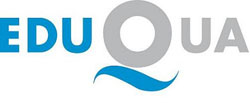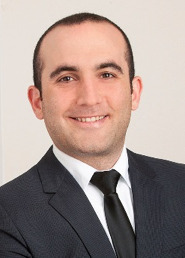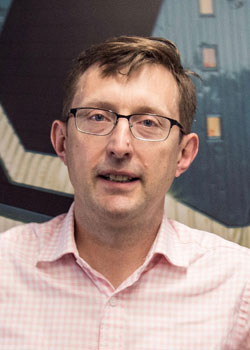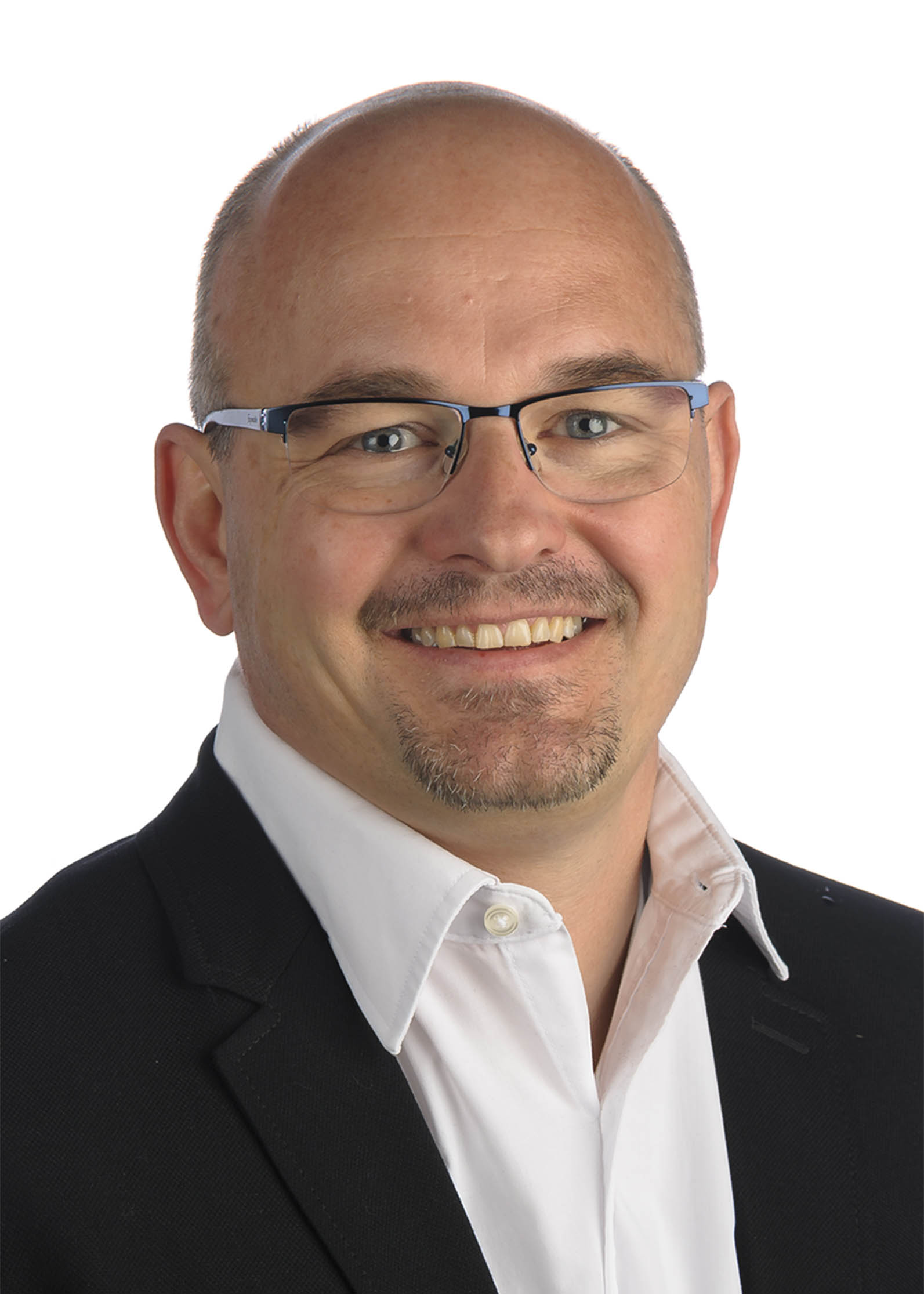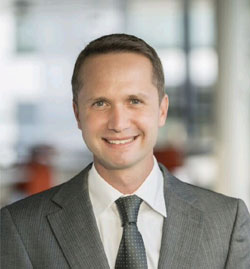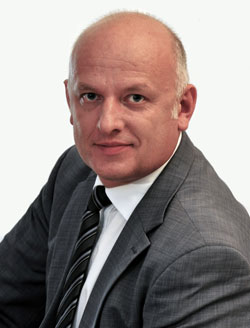SE-Training
Corsi
Il corso di fondamenti di Systems Engineering (SE) fornisce una solida base della disciplina stessa. Sono compresi l'apprendimento e la pratica dell'applicazione di metodologie di SE, l'incremento delle competenze attraverso…

FONDAMENTI DI SE
Prossime Date
18.06.2024 - 20.06.2024, Grenoble
25.06.2024 - 27.06.2024, Toulouse
02.10.2024 - 04.10.2024, Ankara
02.10.2024 - 04.10.2024, Munich
21.10.2024 - 23.10.2024, Zurich
Descrizione del Corso
Il corso di fondamenti di Systems Engineering (SE) fornisce una solida base della disciplina stessa. Sono compresi l'apprendimento e la pratica dell'applicazione di metodologie di SE, l'incremento delle competenze attraverso esercizi interattivi ed il trattamento di casi pratici dettagliati.
La frequenza dei corsi è strettamente limitata ad un numero non superiore a 8 partecipanti per presentatore, aumentando così l'efficacia della formazione. Dato che il Systems Engineering dovrebbe essere adattato alle esigenze uniche di ciascun partecipante, aumentando la disponibilità del presentatore per partecipante, è una misura di qualità chiave di questo corso di formazione.
Inoltre, un cena finale con i presentatori del corso è inclusa nelle spese di partecipazione.
Risultati di Apprendimento
• Conoscere le origini del SE e l'applicazione in questo ruolo
• Parlare con competenza della disciplina di SE
• Sapere come applicare le metodologie di SE nello sviluppo di progetti complessi
• Sapere come ottimizzare il SE nei propri progetti
• Valutare lo scopo di una certificazione professionale in SE, quale ASEP o CSEP.
Partecipanti
Questo corso è dedicato ad:
- ingegneri di requirements
• sistemisti
• responsabili di progetto
• ingegneri di verifica
• architetti di sistema
• ingegneri di sviluppo
• responsabili di prodotto.
Prezzi del Corso
Normal price 2,700 CHF / EUR; Early Bird discount 2,430 CHF / EUR
Durata
3 giorni
Istruttore
Seb Klabes 

Mike Johnson 
Marco Di Maio 


Il pubblico di riferimento del corso di Systems Engineering (SE) sono persone che lavorano in ruoli di management in ambito ingegneristico, come direttori di ricerca e sviluppo, manager di SE,…
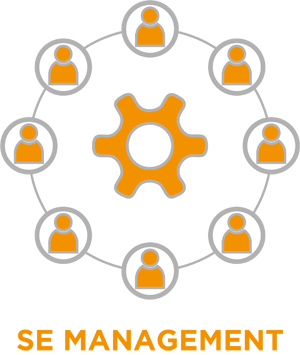
GESTIONE DI SE
Prossime Date
Descrizione del Corso
Il pubblico di riferimento del corso di Systems Engineering (SE) sono persone che lavorano in ruoli di management in ambito ingegneristico, come direttori di ricerca e sviluppo, manager di SE, responsabili di design e sviluppo o in qualsiasi ruolo che riguardi l’implementazione di strategie organizzative d’ingegneria e/o comporti forti interazioni con responsabili di SE.
La frequenza dei corsi è strettamente limitata ad un numero non superiore a 6 partecipanti per presentatore, aumentando così l'efficacia della formazione. Dato che il Systems Engineering dovrebbe essere adattato alle esigenze uniche di ciascun partecipante, aumentando la disponibilità del presentatore per partecipante, è una misura di qualità chiave di questo corso di formazione.
Inoltre, un cena finale con i presentatori del corso è inclusa nelle spese di partecipazione.
Risultati di Apprendimento
• Comprendere il valore del SE
• Come fondare un’organizzazione basata sul SE
• Implementare efficacemente i processi a supporto di un’organizzazione SE
• Implementare i ruoli e le responsabilità SE ed una strategia di sviluppo
professionale SE
• Integrare il SE come disciplina di base per l'organizzazione, sapere come SE
interagisca da un punto di vista interdisciplinare.
Partecipanti
• Responsabili di Team e Dipartimento
• Ingegneri capo
• Responsabili di processi d’ingegneria
• Responsabili Qualità
Prezzi del Corso
Prenotazione Anticipata: 1,350 CHF. Standard: 1,500 CHF
Durata
2 giorni
Istruttore
Mike Johnson
Studieremo ed eserciteremo le tecniche per migliorare continuamente la
nostra efficacia ed efficienza, per come prevedere quello che faremo e
quando prenderne atto, risolvendo il problema della disciplina, sfruttando il…

Qualità del tempo
Prossime Date
Descrizione del Corso
Studieremo ed eserciteremo le tecniche per migliorare continuamente la
nostra efficacia ed efficienza, per come prevedere quello che faremo e
quando prenderne atto, risolvendo il problema della disciplina, sfruttando il nostro meccanismo di intuizione, bilanciando continuamente le priorità,
focalizzando, facendo fronte alle differenze di discipline e culture, adottando
un atteggiamento di zero errori e prevenendo possibili reclami degli
stakeholders. Pensi di star già lavorando così e di essere già molto efficace ed
efficiente? Questo è ciò che altre persone come te pensavano prima di averne
scoperto il contrario.
Risultati di Apprendimento
• Come definire i requisiti reali
• Come selezionare le giuste soluzioni
• Come sapere che cosa si può promettere e poi consegnare come promesso
• Come ottimizzare la comunicazione efficace tra le persone nei progetti
• In breve: come consegnare le cose giuste al momento giusto
Partecipanti
Questo workshop è destinato a:
- Systems Engineer
• Manager (di progetto)
• architetti
• sviluppatori
• responsabili di prodotto
• Scrum Master
• ingegnere di qualità
Prezzi del Corso
Prenotazione Anticipata: 1,350 CHF. Standard: 1,500 CHF
Durata
2 giorni
Istruttore
Niels Malotaux
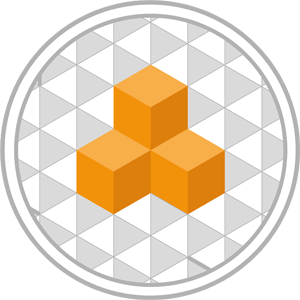
SVILUPPO DI PRODOTTO
Prossime Date
Descrizione del Corso
Una buona definizione e design concettuale, che si svolgono nelle primissime
fasi dello sviluppo di prodotto, sono conosciuti come le principali chiavi del
successo di nuovi prodotti. Nel corso viene proposto un metodo sistematico,
passo a passo, di progettazione. Il nostro metodo integra, modifica e
personalizza una selezione di tecniche e strumenti per fornire processi
innovativi, veloci, efficienti ed economici nella definizione di nuovi prodotti e
per la progettazione concettuale di nuovi prodotti. Si tratta di un processo
flessibile ed integrato, che è orientato al cliente e può essere adattato alle
esigenze specifiche e standard di ogni organizzazione e ogni team di progetto.
Risultati di Apprendimento
• I partecipanti avranno appreso e praticato i principi e gli strumenti del nuovo
metodo di sviluppo di prodotto.
• I partecipanti saranno in grado di migliorare la loro capacità di iniziare e definire nuove esigenze, avranno imparato metodie strumenti per la progettazione di prodotti nuovi, altamente qualitativi ecompetitivi ed avranno compreso come avviare e gestire lo sviluppo di nuovi prodotti che soddisfino una reale necessità del cliente.
Partecipanti
• Membri di team di definizione di nuovi prodotti e di design concettuale,
coloro che sono coinvolti in ruoli di supporto in questi ambiti.
• Coloro che sono coinvolti nello sviluppo di nuovi prodotti come manager di
progetto, ingegneri di sistema, progettisti, responsabili di qualità e di
marketing.
• I manager che desiderano comprendere i benefici della definizione di nuovi
prodotti e delle metodologie di design concettuale prima della loro
implementazione.
Prezzi del Corso
Prenotazione Anticipata: 2,700 CHF. Standard: 3,000 CHF
Durata
5 giorni
Istruttore
Amihud Hari

UNA METODOLOGIA SISTEMICA E SISTEMATICA PER RISOLVERE PROBLEMI COMPLESSI
Prossime Date
Descrizione del Corso
Il corso si focalizza sul Systems Engineering come metodologia sistemica e
sistematica per la soluzione di problemi complessi. Il corso discute il modo di
pensare in senso sistemico come mezzo per comprendere una situazione nella
sua complessità e dei benefici di andare oltre il sistema per determinare
meglio problema e soluzione. Il corso applica il ragionamento sistemico al
Systems Engineering, offre ai partecipanti una serie di strumenti concettuali,
guarda ai sistemi e alle loro proprietà e quindi ripercorre ogni fase del ciclo di
vita del sistema discutendo il modus operandi degli ingegneri di sistemi;
inoltre identificando i tipi di problemi affrontati dal Systems Engineering in
ogni fase, e gli strumenti e le metodologie a disposizione degli ingegneri di
sistemi nelle diverse fasi.
Risultati di Apprendimento
• Comprendere i motivi delle diverse definizioni del termine "sistema", ed i
diversi punti di vista sul Systems Engineering.
• Essere in grado di identificare i vari tipi di problemi affrontati dagli ingegneri
di sistemi in diverse fasi del processo di sviluppo di sistema (SDP).
• Essere in grado di individuare strumento o metodologia appropriate per la
risoluzione di un problema.
• Essere in grado di risolvere un problema.
• Comprendere la necessità da parte di ingegneri di sistemi di possedere
diverse competenze, abilità e conoscenze nelle diverse fasi del SDP.
• Capire che non c'è sempre una sola soluzione "giusta" ad un problema.
• Sviluppare abilità di sistema e capacità di pensiero critico. Essere migliori di
altri ingegneri di sistemi a parità di livello d’esperienza.
Partecipanti
• Chi deve risolvere problemi complessi.
• Ingegneri e manager di ingegneria.
• Ingegneri di sistemi che vogliono migliorare le loro capacità in Systems
Engineering.
Prezzi del Corso
Prenotazione Anticipata: 2,160 CHF. Standard: 2,400 CHF
Durata
4 giorni
Istruttore
Joe Kasser

APPROCCIO SISTEMICO ALLA GESTIONE DI PROGETTO
Prossime Date
Descrizione del Corso
Il corso definisce un approccio olistico alla gestione di progetto per lo sviluppo
di nuovi sistemi tecnicamente complessi. L'enfasi è sulle relazioni e le
interconnessioni tra i processi di gestione di progetto e dei processi di
Systems Engineering per nuovi sistemi complessi. Argomenti specifici
comprendono: gestione del cambiamento, strategia, organizzazione di
progetto, sviluppo di team, stili di leadership, priorità, sviluppo di attività,
programmazione, stima dei costi, monitoraggio delle prestazioni, gestione di
limitazioni e controllo di progetto. I partecipanti applicheranno questi
concetti in un progetto durante un lavoro in team. La padronanza di questi
strumenti chiave è importante per lo sviluppo della propria carriera, visto che
i progetti sono un approccio sempre più frequente per raggiungere obiettivi
strategici aziendali.
Risultati di Apprendimento
• Comprendere ed essere in grado di applicare l'approccio sistemico alla
gestione di progetto.
• Conoscere la metodologia di pianificazione, monitoraggio e controllo di
progetto.
• Sapere come viene applicata la metodologia.
• Essere in grado di pianificare e validare piani per sistemi altamente tecnici.
• Essere in grado di anticipare, pianificare e gestire il cambiamento in progetti
di sviluppo di sistemi.
Partecipanti
• Manager ed Ingegneri che desiderano affinare le proprie competenze di
gestione di progetto e la gestione dello sviluppo di sistemi tecnicamente
sempre più complessi.
• Manager alla ricerca di un modo migliore di gestione.
• Manager di fronte a problemi complicati e complessi.
• Manager che desiderano migliorare le proprie capacità di pensiero e di comunicazione
Prezzi del Corso
Prenotazione Anticipata: 2,160 CHF. Standard: 2,400 CHF
Durata
4 giorni
Istruttore
Joe Kasser

PENSIERO SISTEMICO E OLTRE
Prossime Date
Descrizione del Corso
STAB è l’acronimo di Systems Thinking and Beyond, in cui il pensiero olistico è
una combinazione di analisi, ragionamento sistemico e pensiero critico. Dopo
una introduzione al ragionamento sistemico e pensiero critico, i partecipanti
impareranno come applicare il pensiero olistico in maniera sistemica e
sistematica per affrontare problemi strutturati e non.
Risultati di Apprendimento
• Capacità di affrontare problemi indeterminati e senza unica soluzione.
• Migliori capacità di risoluzione di problemi, ragionamento sistemico e
pensiero critico.
• Capacità di andare oltre il ragionamento sistemico nell'analisi di un
problema e la determinazione di una soluzione.
Partecipanti
• Manager ed Ingegneri capo che affrontano problemi complicati e complessi.
• Manager che desiderano migliorare le proprie capacità di pensiero e di
comunicazione.
• Ingegneri alla ricerca di una promozione a posizioni dirigenziali.
• Ingegneri di sistemi che desiderano imparare a utilizzare e poi andare oltre il
ragionamento sistemico.
Prezzi del Corso
Prenotazione Anticipata: 2,160 CHF. Standard: 2,400 CHF
Durata
4 giorni
Istruttore
Joe Kasser

MBSE & SYSML: INTRODUZIONE
Prossime Date
Descrizione del Corso
Il corso fornisce ai partecipanti una combinazione di fondamenti e aspetti
pratici di MBSE (Model Based Systems Engineering) e linguaggio di
modellazione SysML. Il corso si occupa innanzitutto di spiegare i concetti
fondamentali di MBSE. Successivamente, diverse esercitazioni pratiche
vengono eseguite per dimostrare le basi della messa in opera del MBSE
utilizzando SysML senza utilizzare alcuno strumento specifico. Infine, il corso
si conclude con una discussione delle sfide affrontate durante lo sviluppo e l’esecuzione del MBSE in applicazioni reali e come gestirle. Pre-requisiti del
corso: conoscenze ingegneristiche di sistema o software. Non è richiesta
alcuna formazione precedente.
Risultati di Apprendimento
• Cosa è MBSE, linguaggio di modellazione, metodo di modellazione e
strumento di modellazione
• Concetti di base di linguaggio di modellazione SysML
• Perché usare MBSE e come esso gestisce le sfide di progettazione di sistemi
• Come iniziare con MBSE, cosa fare e cosa non fare
Partecipanti
• Tutti gli Ingegneri, in particolare ingegneri/architetti di sistemi e software o
coloro che lavorano con requisiti, descrizione di concetto, tracciabilità e
mirano a migliorare il modo in cui analizzare, progettare e gestire i propri
sistemi.
• Tutti i Manager, in particolare quelli che mirano ad applicare MBSE per
ridurre i tempi di progettazione, migliorare la qualità di prodotto, gestire
prodotti complessi, risparmiare costi e garantire la riutilizzabilità.
Prezzi del Corso
Prenotazione Anticipata: 1,350 CHF. Standard: 1,500 CHF
Durata
2 giorni
Istruttore
Mohammad Chami
The Practical MBSE and SysML course provides a combination of the fundamentals of MBSE and the practical aspects of the adoption of MBSE with its concepts and key
enablers…

Practical MBSE & SysML
Prossime Date
Descrizione del Corso
The Practical MBSE and SysML course provides a combination of the fundamentals of MBSE and the practical aspects of the adoption of MBSE with its concepts and key
enablers for successful MBSE adoption.
The course first deals with explaining the why of MBSE based on the participants challenges with actual practices. Next, the elements of the MBSE adoption, i.e., process, method, language, and tool are explained and demonstrated with several practical exercises. Particularly, the how, i.e., the method element and its development is trained based on the participants objectives without promoting any specific modelling tool.
Finally, the course wraps up with a discussion of the human-factors of MBSE adoption and the business factors for defining, developing and deploying MBSE in real-world applications. Including what comes after MBSE is deployed to ensure a long-term strategical MBSE adoption.
The course includes individual exercises, as well as group exercises with a daily interactive workshop covering detailed MBSE use cases.
The course can be attended exclusively at a Customer's site or in one of our regular external course venues, where there's a healthy mixture of engineers from different backgrounds.
No prior training is required.
Risultati di Apprendimento
• What is MBSE, modelling language, modelling method and modelling tool?
• SysML basic concepts, elements, relations, and diagrams
• Why should we use MBSE and how it manages system engineering challenges
• How to start with MBSE, what to do and what not to do
• How to develop or customize the aimed MBSE method
• The human-factor aspects related to MBSE adoption
• How to ensure the delivery of valuable and usable system models
Partecipanti
All engineers, particularly systems and software engineers/architects or those who work with requirements, concept description, traceability and aim at improving how they analyse, design, and manage their systems.
All managers, particularly those who aim at deploying MBSE to reduce design time, improve product quality, manage complex products, save cost and ensure reusability.
Prezzi del Corso
Prenotazione Anticipata: 1,890 CHF. Standard: 2,100 CHF
Durata
3 giorni
Istruttore
Mohammad Chami
Il controllo della documentazione è una delle tecniche più economiche e
necessarie per eliminare, e soprattutto prevenire errori. Le revisioni vengono
svolte di frequente ma scoprono solo una parte dei…

MIGLIORARE IL RISULTATO DI REVISIONI E CONTROLLI
Prossime Date
Descrizione del Corso
Il controllo della documentazione è una delle tecniche più economiche e
necessarie per eliminare, e soprattutto prevenire errori. Le revisioni vengono
svolte di frequente ma scoprono solo una parte dei difetti veramente
importanti che si dovrebbe rivelare. Con solo poche ore di formazione in
controllo, le persone possono trovare molti più errori in un documento, dove
precedentemente avevano trovato solo uno o due problemi minori. Questo
dovrebbe dare prova che, con una corretta istruzione, revisioni e controlli
sono infatti in grado di fornire i benefici richiesti. Questo corso mira a
discutere l'obiettivo dei progetti, definire qualità e difetti, spiegare il concetto
e l'effetto di zero difetti, fornire una panoramica delle tipologie di controlli
(Walkthroughs, Reviews, Fagan, Cleanroom, Gilb/Graham, Early Inspections),
quale tipo di controlli scegliere, e come calcolare il ritorno sugli investimenti
in controlli. I partecipanti potranno esercitare le nuove competenze su propri
documenti. In preparazione: portare tre copie di una o due pagine di un
documento che non è troppo confidenziale ed utilizzato nel proprio progetto
attuale, forse anche già esaminato nel modo usuale. Poi ci si potrà stupire del
risultato di un controllo appropriato. Attenzione: dopo la revisione si
potrebbe decidere di scartare il documento come inaccettabile!
Risultati di Apprendimento
− Quali sono i vari approcci alle revisioni e ispezioni.
− Perchè e quando usare i diversi approcci
− Come trovare molti più argomenti reali nei documenti di quanti potresti mai immaginare
− Come organizzare revisioni/ispezioni efficaci in modo molto efficiente
− Come prevenire l'insorgere delle emozioni che spesso insorgono nelle revisioni
− Come calcolare il ritorno dell' investimento in revisioni e ispezioni
− Come risolvere i problemi riscontrati nel modo più efficiente
Come prevenire nuovamente l'insorgere degli stessi problemi riscontrati
Partecipanti
Chiunque stia producendo documenti, debba produrre documenti o sia
preposto alla valutare di documenti, come contratti, casi aziendali, requisiti,
casi d'uso, schede di processo, progetti, disegni, codici, piani di test.
Prezzi del Corso
Standard: 800 CHF
Durata
1 giorno
Istruttore
Niels Malotaux
Il corso fornirà ai partecipanti una solida base delle motivazioni e tecniche
associate alla progettazione di sistemi e prodotti più sicuri. Si analizzeranno
una serie di incidenti della vita reale…

FONDAMENTI DI SICUREZZA DI SISTEMA E PRODOTTO
Prossime Date
Descrizione del Corso
Il corso fornirà ai partecipanti una solida base delle motivazioni e tecniche
associate alla progettazione di sistemi e prodotti più sicuri. Si analizzeranno
una serie di incidenti della vita reale per poi esplorare le loro cause di fondo,
in modo da evidenziare che le carenze organizzative, errori di progettazione e
problemi operativi hanno la capacità di creare eventi catastrofici. All'interno
di un approccio di Systems Engineering, verranno esplorati i metodi per
valutare i rischi di sicurezza e di fattori umani per una serie di sistemi
tecnologicamente diversi prima di considerare come definire i requisiti di
progettazione per controllare i rischi potenziali. Il corso fornirà anche una
panoramica dei sistemi di gestione della sicurezza, i registri di pericolo,
dimostrazioni di sicurezza, di indagine sugli incidenti, sicurezza elettronica complessa (compreso il software), marchio CE e materiali pericolosi.
Risultati di Apprendimento
• Acquisire una comprensione di cosa significa "sicuro", i benefici di business
e di progetto legati alla solida gestione della sicurezza e il costo degli incidenti.
• Per tutte le fasi del ciclo di vita del prodotto, essere in grado di delineare gli
elementi chiave associati con "la progettazione per la sicurezza".
• Avere una panoramica degli strumenti e delle tecniche impiegate dagli
specialisti di sicurezza nell’adottare un approccio alla sicurezza basato sul
rischio.
• Avere una valutazione dei problemi di sicurezza connessi con software,
interazioni umano/sistema, nuove tecnologie, sistema complesso di sistemi e
autonomia.
Partecipanti
• Progettisti che desiderano migliorare o aggiornare le proprie conoscenze di
sicurezza di sistema per aumentare la loro integrazione all'interno di un team
di Systems Engineering.
• Responsabili di progetto o programma che desiderano capire come una
debole ingegneria della sicurezza possa portare ad enormi rischi di progetto.
• Manager di ingegneria che desiderano migliorare le loro conoscenze
specialistiche al fine di ottenere il massimo dal loro team di sicurezza.
• Dirigenti di impresa che desiderano comprendere le loro responsabilità
legali e morali al fine di garantire che prodotti e sistemi siano progettati,
commissionati e gestiti in sicurezza.
Prezzi del Corso
Prenotazione Anticipata: 1,350 CHF. Standard: 1,500 CHF
Durata
2 giorni
Istruttore
Richard Maguire 
Jim Mateer 

Complessità nella gestione di progetti e programmi
Prossime Date
Descrizione del Corso
Il framework Cynefin viene usato nel mondo nei contesti più svariati come riunioni in case di moda internazionali, gruppi di sviluppo software e squadre SWAT nelle strade. I vertici l'hanno utilizzato a tutti I livelli di organizzazione e in ogni ambito industriale.
Dave Snowden, il fondatore di Cognitive Edge e creatore del framework Cynefin userà questa lezione master di una giornata per mostrare come nella disciplina del Project e Programme Management, la complessità possa essere ridotta, amministrata e controllata in modo efficiente.
L'uso originario nel Knowledge Management (Azioni complesse di conoscenza) è stato recentemente valutato come il terzo articolo più citato nel suo campo, e l'articolo di copertina dell'Harvard Business Review sulla sua applicazione alla Leadership ha ricevuto molteplici riconoscimenti. E' stato valutato come la prima applicazione pratica delle scienze della complessità ad argomenti aziendali.
E' stato usato di recente nella pubblicazione del Prince II Agile con applicazione diretta al Project Management.
Un nuovo programma multi-client sta per cominciare a sviluppare metodi e strumenti per il nuovo rilascio di Prince II guardando ad un più ampio corpo di conoscenza e pratica.
La complessità è un considerevole spostamento di paradigma dal pensiero sistemico che ha dominato le ultime decadi, e si sviluppa sulle basi in scienze naturali e su di una metafora ecologica e non ingegneristica della sua organizzazione e del suo mercato.
Risultati di Apprendimento
• Capire le basi del framework Cynefin e la sua applicazione in Project e Programme Management
• Sapere come applicare diverse metodologie per navigare nella complessità • Capire i legami complessi tra la complessità e la gestione del progetto
• Comprendere nuovi metodi di mappatura delle attitudini (indicatori principali) rispetto alla conformità (un indicatore di ritardo) ed il ruolo degli allarmi anticipatori nella gestione di programmi
• Apprezzare la rappresentazione "frattale" o stratificata in tempo reale della cultura organizzativa e di programma ed il suo impatto sulle prestazioni
Partecipanti
− Project managers
− Accademici interessati all'argomento
− Managers con responsabilità rilevanti
Prezzi del Corso
Standard: 800 CHF
Durata
1 giorno
Istruttore
Dave Snowden

Introduzione al Design Thinking e Lean Innovation (innovazione snella)
Prossime Date
Descrizione del Corso
Scopri come combinare il Systems Engineering con Design Thinking ed il Lean Start-up durante la fase iniziale di innovazione (fase di pre-sviluppo). Questo corso di Design Thinking offre una comprensione approfondita della mentalità di Design Thinking e del suo ciclo di soluzione dei problemi basato su iterazione veloce ed interazione con i clienti. L'importanza di un concetto ben definito, inclusa la concezione del prodotto / servizio, del design di business e della chiara determinazione delle esigenze dei clienti, è fondamentale prima che lo sviluppo inizi. Altrimenti si scoprono le idee sbagliate più tardi, quando più è costoso e c'è molto spreco di lavoro, denaro e tempo.
Design Thinking e Systems Engineering sono entrambi metodi di risoluzione di problemi che cercano di affrontare la crescente complessità. Entrambi gli approcci sono a prima vista completamente diversi, ma con uno sguardo più approfondito diventano sempre più complementari e condividono molti pensieri. Combinare entrambi gli approcci e commutare la modalità di pensiero è essenziale quando si tratta di ambiguità.
Il corso è molto pratico. I partecipanti spenderanno più della metà del tempo in attività pratiche, ad es. incontrare l'utente e praticare la ricerca delle necessità, creare nuove idee, costruire prototipi e testare con l'utente.
Risultati di Apprendimento
• Capire le basi del Design Thinking e di Lean Innovation
• Sapere come combinare Design Thinking e Systems Thinking e quando cambiare la modalità di pensiero
• Applicare strumenti per determinare le esigenze del cliente e per eseguire la ricerca delle necessità
• Costruire e testare diversi tipi di prototipi a bassa risoluzione (ad es. prototipi Critical Experience o Dark Horse) con l'utente e migliorare la comprensione della situazione
• Utilizzare il Lean Canvas per riassumere i risultati e migliorare iterativamente
• Far pratica di Design Thinking e Lean Innovation su temi applicativi durante i tre giorni
• Riflettere e trasferire gli apprendimenti nel tuo business quotidiano e nei propri progetti
Partecipanti
• Manager ed ingegneri che desiderano arricchire le proprie capacità di problem solving con approcci user-centric ed agili
• Manager che cercano modi per creare innovazioni radicali
• I manager che guideranno la trasformazione digitale nella loro area
• Chiunque sia responsabile della creazione di nuovi prodotti, servizi e modelli di business
Prezzi del Corso
Prenotazione Anticipata: 1,350 CHF. Standard: 1,500 CHF
Durata
2 giorni
Istruttore
Patrick Link
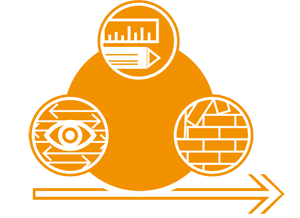
Design Thinking e Lean Innovation Avanzato
Prossime Date
Descrizione del Corso
Design Thinking e Lean Innovation sono concetti facilmente comprensibili, ma è con la pratica che sorgono le domande. In questo workshop avanzato andiamo più in profondità ed apprenderemo ulteriori strumenti e metodi (come la progettazione degli ecosistemi aziendali), rifletteremo sulle esperienze pratiche e le sfide dei partecipanti e come superarle.
Oltre a combinare Design Thinking e Systems Thinking, apprenderemo in maniera approfondita la progettazione di un ecosistema aziendale, creando mappe per le parti interessate ed analizzando il modello ibrido (che combina il pensiero progettuale e l'analisi di Big Data).
Il workshop si concentrerà anche sulla sfida nell’implementare il Design Thinking nella tua organizzazione.
Risultati di Apprendimento
• Combinare Big Data Analytics e Design Thinking con un modello di gestione ibrida
• Capire la sfida nel facilitare i progetti, in particolare come e quando passare da una fase divergente ad una fase convergente
• Discutere le sfide che avvengono nel facilitare i gruppi/team e gestire i progetti di Design Thinking / Lean Innovation
• Imparare a creare un team e un'organizzazione e come lavorare in modo efficace. Definire i ruoli e le responsabilità di un facilitatore o di un moderatore
• Qual è la mentalità appropriata? E come creare questa mentalità?
• Capire l'influenza della digitalizzazione e quali sono i criteri di progettazione digitale?
• Risolvere le sfide pratiche
• Riflettere e trasferire gli apprendimenti nel proprio business quotidiano e nei propri progetti
Partecipanti
I partecipanti dovrebbero avere una certa esperienza pratica con Design Thinking e/o Lean Start-up o Lean Innovation e portare le proprie sfide nel corso. Durante il corso rifletteremo sulle esperienze dell'utente ed elaboreremo insieme possibili soluzioni per risolvere tali sfide.
• Manager ed ingegneri che desiderano arricchire le proprie capacità di problem solving con approcci user-centric ed agili
• Manager che cercano modi per creare innovazioni radicali
• I manager che guideranno la trasformazione digitale nella loro area
• Chiunque sia responsabile della creazione di nuovi prodotti, servizi e modelli di business
Prezzi del Corso
Prenotazione Anticipata: 1,350 CHF. Standard: 1,500 CHF
Durata
2 giorni
Istruttore
Patrick Link 

Michael Lewrick 


Ingegneria dei sistemi acustici
Prossime Date
Descrizione del Corso
L'acustica comporta la generazione del rumore, il suo trasporto attraverso strutture solidi e fluidi e la risposta del ricettore (persona o apparecchiatura). Di solito l'obiettivo è controllare la risposta ad un livello accettabile ad un costo, un peso o una dimensione minimi. Spesso i dettagli sono complessi, il numero di variabili è elevato e vincoli operano in conflitto tra loro.
L'applicazione delle tecniche di Systems Engineering è essenziale per ottenere un risultato efficiente ed efficace.
Saranno introdotti i principi fondamentali, con informazioni dettagliate incluse nelle dispense. La loro applicazione viene spiegata con esempi pratici e rafforzata da casi pratici per problemi familiari di acustica.
Risultati di Apprendimento
• Capire la teoria essenziale dell'acustica
• Scomporre qualsiasi problema in componenti e interfacce più semplici
• Applicare il modello V all'acustica, sotto la guida di esempi pratici
• Utilizzare strumenti di foglio elettronico, applicazioni e riferimenti di dati disponibili per supportare il Systems Engineering nella soluzione e ottimizzazione dei problemi acustici
• Approcciare creativamente l'acustica, il rumore e il controllo delle vibrazioni
• Risolvere un problema tipico, quale la riduzione del rumore in un ambiente di macchina per rispettare le norme di sicurezza
• Sicurezza nell'affrontare diverse situazioni acustiche incontrate nell'ingegneria del mondo reale
Partecipanti
Questo corso è idealmente adatto ad ingneri meccanici, civili, elettrici, per equipaggiamenti medici e di sistemi aerospaziali che hanno necessità di capire e mostrare conformità con requisiti acustici e acustici integrati nella progettazione del prodotto e ottenere così una quallità del suono vincente per i loro prodotti
Prezzi del Corso
Prenotazione Anticipati: 1,350 CHF; Standard: 1,500 CHF
Durata
2 giorni
Istruttore
Nick Eaton
Questo corso di affidabilità di sistema fornisce profonda conoscenza e formazione sull’ analisi e la modellizzazione del sistema di affidabilità. I partecipanti non impareranno solamente i concetti ma approfondiranno la…

Affidabilita’ dei sistemi
Prossime Date
28.05.2024 - 29.05.2024, Zurich
Descrizione del Corso
Questo corso di affidabilità di sistema fornisce profonda conoscenza e formazione sull’ analisi e la modellizzazione del sistema di affidabilità. I partecipanti non impareranno solamente i concetti ma approfondiranno la loro comprensione nei workshop.
Svolgimento del corso:
• introduzione ai concetti di affidabilità e modelli di affidabilita’
• calcolo, analisi e prognosi di affidabilità
• Modelli di Failure e loro utilizzo nell’ FMECA
• assicurare l'affidabilità dei sistemi fornire l'evidenza dell'affidabilità di un sistema.
Risultati di Apprendimento
I partecipanti sanno come analizzare, modellizzare e predire l'affidabilità di un sistema.
I partecipanti comprendono la terminologia comune dell’affidabilita’ e i modelli di affidabilita’ usati comunemente.
I partecipanti imparano e fanno pratica su:
• Effetti e Analisi Critica delle modalità di guasto funzionali (FMECA)
• FMECA per sistemi elettro-meccanici
• Analisi, previsione e monitoraggio dell'affidabilita’ dei sistemi
Partecipanti
• Ingegneri
• Responsabili della garanzia della qualità
• Manager RAM
• Tecnici di affidabilità e chiunque abbia necessità di garantire e/o analizzare l’affidabilità di sistemi
Prezzi del Corso
Prenotazione Anticipati: 1,350 CHF; Standard: 1,500 CHF
Durata
2 giorni
Istruttore
Seb Klabes 

Kevin Howard 

Risoluzione dei problemi nel Business
Prossime Date
Descrizione del Corso
Nell'ambito del business, la complessità è causata da molti fattori e vincoli quali i cambiamenti improvvisi del mercato, sfide competitive, risorse limitate e un'alta incertezza relativamente ai veri bisogni del cliente.
Risolvere problemi complessi è una delle capacità richieste con più urgenza al tempo d'oggi.Dal momento in cui il mondo che ci circonda è diventato più avanzato, I mercati sono diventati sempre più complessi da capire.
Questo può essere riscontrato in vari settori industriali e sta causando problematiche di prima importanza che portano alla perdita del margine di competitività da un giorno all'altro da parte delle aziende.
In questo corso di un giorno verrà insegnato un processo sistematico metodologico da applicare a complesse risoluzioni nel business. Ciascuno stadio del processo verrà espanso per includere esempi dal mondo reale oltre a vari approcci per adattare e applicare il processo. Il corso include un workshop di gruppo moderato nel quale verrà elaborato un esempio dei giorni nostri.
Nella tariffa è inoltre inclusa una cena con il presentatore del corso
Risultati di Apprendimento
• Comprensione e applicazione di un processo metodologico sistematico da applicare a risoluzione di problemi complessi nel business
• Esperienza nell'utilizzo di numerose tecniche per trovare e sviluppare soluzioni di alto valore, es. Il metodo del Problema 3-6-5
• Esperienza nell'utilizzo di numerose tecniche per la valutazione del valore delle soluzioni tecniche, es. trade-off esteso
• Esperienza nel condurre il gruppo tecnico del workshop per una sessione
Partecipanti
• Proprietari di prodotti
• Business Leaders
• Ruoli nel marketing e vendite
Prezzi del Corso
Standard: 800 CHF
Durata
1 giorno
Istruttore
Mike Johnson
Risolvere problemi complessi è una delle capacità richieste con più urgenza al giorno d'oggi. Con il progredire delle tecnologie le soluzioni possibili create da queste, diventano sempre più complesse da…

Risoluzione di problemi tecnici
Prossime Date
Descrizione del Corso
Risolvere problemi complessi è una delle capacità richieste con più urgenza al giorno d'oggi. Con il progredire delle tecnologie le soluzioni possibili create da queste, diventano sempre più complesse da capire, progettare e implementare con successo
Questo può essere riscontrato in vari settori industriali e sta causando problematiche di prima importanza all'affidabilità, assistenza, costi progettuali, prestazioni del prodotto e all'organizzazzione in generale.
In questo corso di un giorno verrà insegnato un processo sistematico metodologico da applicare a tecniche complesse del “problem solving”. Ciascuno stadio del processo verrà espanso per includere esempi dal mondo reale oltre a vari approcci per adattare e applicare il processo. Il corso include un workshop di gruppo moderato nel quale verrà elaborato un esempio dei giorni nostri.
Nella tariffa è inoltre inclusa una cena con il presentatore del corso
Risultati di Apprendimento
• Comprensione e applicazione di un processo metodologico sistematico da applicare alla tecnica complessa del Problem solving
• Esperienza nell'utilizzo di numerose tecniche per trovare e sviluppare soluzioni di alto valore, es. Triz
• Esperienza nell'utilizzo di numerose tecniche per la valutazione del valore delle soluzioni tecniche, es. Extended Tade-off
• Esperienza nel condurre il gruppo tecnico del workshop per una sessione
Partecipanti
• Ingegneri di sistema
• Capi tecnici
• Project Manager
• Ingegneri di requisiti e specifica
• Architetti di sistema
• Ingegneri di sviluppo
• Ingegneri di verifica e validazione
• Ingegneri della qualità
Prezzi del Corso
Standard: 800 CHF
Durata
1 giorno
Istruttore
Mike Johnson
Gestire la complessità dei prodotti lungo il loro ciclo di vita è una sfida crescente in molti settori. Conoscere e controllare lo stato dei sistemi di meccatronica durante lo sviluppo,…

Configuration Management
Prossime Date
Descrizione del Corso
Gestire la complessità dei prodotti lungo il loro ciclo di vita è una sfida crescente in molti settori. Conoscere e controllare lo stato dei sistemi di meccatronica durante lo sviluppo, nella catena di fornitura e nel post vendita è un requisito fondamentale per il produttore di oggi.
Molteplici requisiti stabiliti dai clienti e dagli enti normativi insieme ad un crescente numero di varianti dello stesso prodotto pongono continue sfide nella gestione dei dati, della documentazione e delle modifiche lungo il ciclo di vita del prodotto.
Configuration Management aiuta a gestire questa complessità ed a consentire uno sviluppo e operatività efficienti dei sistemi.
Gli obiettivi del Configuration Management sono:
• Gestire tutti i dati e la documentazione rrilevante nel contesto del prodotto
• Fornire una comprensione completa di tutti i prodotti e della loro documentazione lungo le fasi del ciclo di vita (analisi, fattibilità, sviluppo, implementazione e produzione, operazioni e servizi)
• Integrazione della gestione dei dati di prodotto nei processi del ciclo di vita del prodotto (sviluppo, test, catena di fornitura, operazioni, logistica, manutenzione)
• Gestire le varianti di prodotto, le modifiche nella definizione del prodotto e le linee di base di configurazione
• Supportare l'efficienza nella catena del valore.
In questo corso di un giorno è richiesta una comprensione di base del concetto di gestione del prodotto. Impareremo a conoscere le diverse attività di gestione della configurazione e come queste ci aiutano a rendere la complessità gestibile. Ripercorrendo il ciclo di vita del prodotto, evidenzieremo in questo corso le esigenze delle diverse fasi del ciclo di vita. Attraverso esempi, identificheremo diversi approcci su come evitare le insidie più comuni e su come adattare il processo di Configuration Management alle esigenze dei casi in questione. Verrà mostrato un esempio di sistema.
Risultati di Apprendimento
• Comprensione del ciclo di vita del prodotto dal punto di vista dei dati del prodotto.
• Comprensione dei requisiti per la gestione dei dati di prodotto in base alle esigenze individuali di un'azienda industriale o di un progetto specifico.
• Acquisire familiarità con linguaggio, metodi e procedure comuni per comprendere come impostare un processo di gestione della configurazione appropriato nel progetto.
• Sperimentare le sfide nella gestione del prodotto basate su un semplice esempio di sistema meccatronico.
Partecipanti
• Ingegneri di sistema
• Ingegneri di sviluppo
• Capi progetto
• Ingegneri di requisiti e specifica
• Ingegneri di verifica e validazione
• Ingegneri di qualità
Tutti coloro che sono interessati a questo argomento e vogliono scoprirlo tramite l'opportunità di un corso giornaliero.
Prezzi del Corso
Standard: 800 CHF
Durata
1 giorno
Istruttore
Seb Klabes 

Kevin Howard 
The Technical Project Management course provides a solid background of the core Project management disciplines applicable for Engineers taking greater responsibilities for delivering Work Packages and projects where the Project…

Technical Project Management
Prossime Date
Descrizione del Corso
The Technical Project Management course provides a solid background of the core Project management disciplines applicable for Engineers taking greater responsibilities for delivering Work Packages and projects where the Project Manager and Systems Engineer need to work close together or where their roles have been combined due to the the project constraints.
The course includes the learning and practicing the application of the Project management methodologies, knowledge areas and enhancing know-how with an interactive workshop covering Project life-cycle and project management knowledge areas. Of focus is the interaction of technical project management and engineering in the areas where both disciplines overlap, to know the synergies and gain understanding of their constraints.
The course attendance is limited to no greater than 12 Participants, thus enhancing the effectiveness of the training.
Risultati di Apprendimento
• To know the project life-cycle and framework
• To know the major project management knowledge areas as scope, time and cost
• To know configuration and change management
• To understand resource and quality management
• How to implement project risk management and mitigation strategies
• To effectively communicate with stakeholders within and outside the project
Partecipanti
The workshop is intended for:
- Systems Engineers
• Technical Project Managers
• Engineering Development Matrix Leaders
• Work Package Owners
• PMO
Prezzi del Corso
Early Bird: 1,080 CHF; Regular: 1,200 CHF
Durata
2 giorni
Istruttore
Piet Belgraver

Modelling and Simulations
Prossime Date
Descrizione del Corso
Course due in 2019, more details will follow.
Prezzi del Corso
Istruttore
Bert Taeymans

Servitization: un’introduzione
Prossime Date
Descrizione del Corso
La transizione da un business basato sul prodotto ad un business di prodotto più equilibrato e di servizio non è in alcun modo un semplice cambiamento. Non è così semplice come la consegna di nuovi prodotti sul mercato perché richiede nuovi processi e metodi che potrebbero essere in contrasto con il presente business manifatturiero dell’impresa. Lo scopo di questo
seminario introduttivo di due giorni è di mostrare l’importanza dei servizi nel prodotto e quindi di fornire esempi delle sette sfide che possono impedire/ritardare la consegna di nuovi servizi.
Durante i due giorni, sarai in grado di identificare quali passi concreti potresti eseguire nella tua azienda per l'introduzione e l'ottimizzazione dei servizi. Sarai quindi in grado di valutare le possibilità di trasferimento dei servizi ai prodotti e affrontare le fasi concrete di implementazione per avviare le attività di sviluppo dei servizi
in modo che siano in linea con i tuoi clienti e le tue capacità.
Risultati di Apprendimento
• Comprendere l'importanza del servizio clienti e come esso possa aiutare le tua ditta ed i suoi clienti.
• Come definire il ruolo del supporto clienti per i tuoi prodotti e come esso possa aiutare a migliorare le opportunità di re-buy.
• Essere in grado di identificare quali forme di assistenza clienti sono preziose per te e per i tuoi clienti.
• Per uscire dal corso con una lista di benefici immediati da implementare per migliorare i tuoi servizi.
Partecipanti
• Comprendere l'importanza del servizio clienti e come esso possa aiutare le tua ditta ed i suoi clienti.
• Come definire il ruolo del supporto clienti per i tuoi prodotti e come esso possa aiutare a migliorare le opportunità di re-buy.
• Essere in grado di identificare quali forme di assistenza clienti sono preziose per te e per i tuoi clienti.
• Per uscire dal corso con una lista di benefici immediati da implementare per migliorare i tuoi servizi.
Prezzi del Corso
Prenotazione Anticipata: 1,350 CHF. Standard: 1,500 CHF
Durata
2 giorni
Istruttore
Shaun West

Cradle-to-Grave: Analisi del ciclo di vita delle attrezzature
Prossime Date
Descrizione del Corso
Questo workshop si basa su un modello del costo totale di proprietà che considera essenzialmente la vita operativa delle attrezzature e dei servizi che sono necessari per mantenere l'attrezzatura operativa e che sono rilevanti per il proprietario / operatore
dell'apparecchiatura. L'ipotesi è che i requisiti del business (o missione) per le modifiche delle apparecchiature cambiano nel tempo e anche la tecnologia interno ad esse. Utilizzando un avatar per l'attrezzatura il ciclo di vita dall’inizio alla fine viene poi costruito. All'interno di questo modello le problematiche di cambio di proprietà sono considerate con le implicazioni che poi si creano.
Dal completo ciclo di vita delle apparecchiature si costruirà il costo totale di un modello di proprietà sulla base dei compiti che il proprietario / operatore deve svolgere
per mantenere il bene 'produttivo'. Inizialmente le attività non sono assegnate - l'ipotesi è che debbano essere consegnate per mantenere la macchina produttiva. Proposte di valore
verranno create per ogni lavoro e un ciclo di vita visivo verrà creato. Dal ciclo di vita si potrà imparare di più su come usare il modello per mantenere un cash-flow continuo dall'attrezzatura per tutta la sua vita operativa.
Risultati di Apprendimento
• Sarai in grado di costruire un modello dettagliato del costo totale di proprietà sia per i prodotti nuovi che per quelli esistenti.
• Essere in grado di creare una proposta di valore applicabile a tutti i lavori identificati nel ciclo di vita
• Imparare a utilizzare il modello su una base di marketing strategico.
• Per sapere in che modo puoi supportare la tua azienda dal punto di vista strategico.
Partecipanti
• Responsabili e dirigenti responsabili della fornitura di servizi, della progettazione di servizi e dell'assistenza post-vendita.
• Manager e leader nello sviluppo di nuovi prodotti e nello sviluppo del business.
Prezzi del Corso
Standard: 800 CHF
Durata
1 giorno
Istruttore
Shaun West
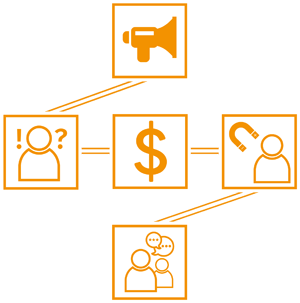
Customer Journey Mapping
Prossime Date
Descrizione del Corso
La “mappatura del percorso del cliente” è una parte fondamentale dello sviluppo e del miglioramento dell’esperienza cliente, che è fondamentale per relazioni commerciali sostenibili a lungo termine. Il processo di mappatura fornisce approfondimenti fruibili nei punti di punti di contatto con i clienti, che con i servizi digitali stanno diventando sempre più critici e complessi da gestire nel nostro mondo multicanale. Il processo si muove dietro l'approccio “ swimlaning“ razionale alla gestione dei processi, incluso gli aspetti emotivi.
Il cliente / utente è al centro del processo, fornendo l'opportunità di capire in che modo i servizi di supporto aiutano (o meno) il cliente a raggiungere i risultati che sono importanti per loro.
La mappa di viaggio del cliente ti consente di vedere il mondo come il tuo cliente lo vive. Pianificheremo un viaggio del cliente che inizia e finisce fuori dai normali confini del fornitore. Scoprirai cosa interessa i tuoi clienti e imparerai perché li entusiasma. Troverai aree che non aggiungono alcun valore - solo costo - e dovrebbero essere rimosse; imparerai il valore del ripristino del servizio e come trasformare un'esperienza negativa in una buona che soddisfi il tuo cliente;
troverai aree in cui il tuo staff ha bisogno di maggiore empowerment per offrire esperienze migliori ai clienti.
Risultati di Apprendimento
• Essere in grado di comprendere e ricreare il viaggio end-to-end del cliente.
• Per trovare attività che non aggiungono alcun valore ai tuoi clienti o alle tue attività.
• Comprendere come integrare i contatti multi-canale / multi-punto in un percorso coerente con il cliente.
• Essere in grado di imparare come l'empowerment del tuo staff può migliorare l’esperienza dei clienti.
Partecipanti
Manager e leader responsabili della fornitura del servizio, della progettazione del servizio e dell'assistenza post-vendita.
Prezzi del Corso
Standard: 800 CHF
Durata
1 giorno
Istruttore
Shaun West

COTS Based Systems Engineering (CBSE)
Prossime Date
Descrizione del Corso
Il System Engineering basato sui COTS (CBSE) apporta cambiamenti fondamentali nel modo di lavorare degli ingegneri di sistema. COTS - Commercial Off-The-Shelf item, può essere definito come un elemento da non sviluppare (NDI) di fornitura commerciale e venduto in quantità significative nel mercato commerciale. Esempi di articoli COTS sono: sistemi hardware e software, apparecchiature e sottosistemi. Gli acquisti di COTS sono un'alternativa agli sviluppi interni sia nel settore militare che commerciale.
L'uso di articoli COTS è stato affidato a diversi programmi governativi e commerciali; in quanto tali questi prodotti possono offrire risparmi significativi nell'approvvigionamento, nello sviluppo e nella manutenzione. Ma in realtà, gli articoli COTS non rispettano gli stessi standard di qualità dei sistemi sviluppati dal governo. La sfida COTS presentata all'ingegnere dei sistemi consiste nell'utilizzare processi di ingegneria dei sistemi in un ambiente in cui lo spazio dimensionale delle soluzioni è limitato dagli aspetti funzionali e fisici esistenti dei componenti COTS. Questo è valido sia nel processo di progettazione che nel processo di integrazione. L'aspetto significativo introdotto da COTS è che il processo di progettazione è ora limitato da una serie di componenti preesistenti, che introducono funzionalità che possono o non possono essere richieste da una soluzione di progettazione specifica.
Risultati di Apprendimento
I partecipanti al corso apprenderanno come progettare nuovi sistemi basati su COTS e le necessarie modifiche ai principi fondamentali di Systems Engineering (SE) quando si gestiscono i sistemi basati su COTS. In particolare impareranno:
• Le principali caratteristiche e concetti di CBSE
• Lesson learnt, vantaggi e sfide con l'uso di CBSE
• Processi e cicli di vita di CBSE
• Ingegneria dei requisiti per CBSE
• Test e valutazione per CBSE
• Architettura, design e selezione per CBSE
• Come identificare e gestire i rischi dei sistemi basati su COTS
• Come gestire il CBSE
Partecipanti
Chiunque sia coinvolto nel CBSE con una certa esperienza nell'applicazione del Systems Engineering o della metodologia di progettazione ingegneristica può beneficiare di questo corso.
Per esempio:
• Ingegneri di sistema che utilizzano i componenti COTS per i loro progetti.
• Fornitori che producono e forniscono componenti COTS (hardware e software).
• Program e project manager che utilizzano o considerano l'utilizzo di componenti COTS.
• Professionisti governativi / militari / commerciali che lavorano o pensano di lavorare con sistemi basati su COTS.
Tuttavia, questo corso è un corso di "Advanced Systems Engineering Design". Un corso di base o esperienza in metodologia di progettazione tradizionale o ingegneria è un prerequisito per frequentare questo corso.
Prezzi del Corso
Prenotazione Anticipata: 1,620 CHF. Standard: 1,800 CHF
Durata
3 giorni
Istruttore
Amihud Hari

Creativity and Project Management
Prossime Date
Descrizione del Corso
Project management is a well-proven method to deliver a specific outcome to a customer. The outcome can be a tangible product or something much less tangible (such as a change management program). The customer can be internal or external.
What projects have in common is that they are multidisciplinary and team members have to learn to work together, they need to be both creative and disciplined, and to work to a common aim. The project manager has to steer the team to deliver what is needed.
Approaches are needed that supplement the science of project management with the art of project management. This will improve project effectiveness, efficiency and success rate. Helping the team to deliver the right outcomes in the right way.
Interviews of scores of experienced major project managers and leaders of project companies revealed that PM literature and training focus on the science or process of PM. While the actual result is insured by the “art” of PM.
Our experience is strongly in agreement with the need for “art” and the “science” of PM.
Company Results in like industries or divisions within Companies are 20% - 33% higher when the right organizational climate is present. “Healthy” companies increased their earnings by 18%.
Leadership style is part of the “art” of project execution.
This course is available in three different programmes:
• A One Day Introduction Programme that introduces participants to the art of project management.
• A Two Day Immersion programme that explores the art of project management in more depth.
• A Five Day Block Week, which fully explores the depth and breadth of the art and science of project management.
The 5-Day Block Week will run on consecutive days. The first day of the block week constitutes the Introduction Progamme, and participants may choose to only attend this first day.
The first two days of the block week constitutes the Immersion Programme, and participants may choose to only attend the first two days.
Participants may also choose to complete the full 5 days.
For more information, please download our full course prospectus at the top of the 'Courses' section.
Risultati di Apprendimento
• Understanding of the importance of both the art and science of project management
• Ability to identify when art is more important than science
• Ability to identify when science is more important than art
• To understand that ‘it is not just about process’; it is also about people. Ability to balance process with human factors.
• Ability to effectively reflect on both colleagues and one’s own experiences.
Partecipanti
• Anyone who leads projects.
• Anyone who is part of a project team
• Experienced Project Managers and team members who want to improve their effectiveness
• New hires who need to understand Project Management
Prezzi del Corso
Early Bird: 2,700 CHF. Regular Rates: 3,000 CHF
Durata
5 giorni
Istruttore
Shaun West 

Jim Siler 

Systems and Systemic Requirements Engineering and Management
Prossime Date
Descrizione del Corso
This course equips participants with the appropriate understanding of the difficulty of writing good requirements, the use of requirement management as an approach for controlling change and measuring the degree of completion of a project over the development, build, test and deliver, portion of the system and software life cycle.
The course uses a mixture of active and passive teaching styles to maximize the effectiveness of the learning opportunity. Participants will be provided with a software tool (Tiger Pro) specially developed as an educational tool with which to write and test requirements.
Risultati di Apprendimento
• Understand the importance of well-written requirements
• Understand why requirements errors cost more to correct than other types of errors in the system development process.
• Deal with poorly written requirements.
• Recognize poorly written requirements and be able to repair them. Create clear and concise well-written requirements.
• Mitigate the effect on cost and schedule due to poorly written requirements.
Partecipanti
• Personnel who specify the development of technology-based systems.
• Engineers and programmers elucidating requirements from customers.
• Designers who work with poorly written requirements.
• Software and hardware testers who need to figureout how to test requirements.
• Acquisition managers, contract specialists.
• Other personnel performing similar roles.
Prezzi del Corso
Early Bird Rates: 1,350 CHF. Regular Rates: 1,500 CHF.
Durata
9 giorni
Istruttore
Joe Kasser

Systems Engineering for Specialist Vehicles
Prossime Date
Descrizione del Corso
This course is designed to provide an understanding of a full lifecycle systems approach to the development of specialist vehicles and integration of their systems, particularly in the military context.
This course is delivered in partnership between SE-Training and OptimaSC Independent Systems Consultancy Engineers:
http://www.optimasc.co.uk/training.html
It uses structured training and exercises to explain how to tailor and apply Systems Engineering practices to the specific challenges encountered in this environment. The course is delivered by OptimaSC Independent Systems Consultancy Engineers and is designed as a 4.5 day course.
It will cover:
• The development of vehicles, understanding of requirements, architecture and the integration of sensors, communications, automotive and other systems.
• Integration methods and evaluation strategies.
• The assessment of electrical and electronic sub-systems for platform and information management systems.
• Vulnerabilities, trends and best practice for human-machine interface, computing and software issues.
• Human factors integration and user workload issues.
• Management of Systems Engineering processes across disparate disciplines.
Risultati di Apprendimento
For the individual this course will:
• Teach the application of Systems Engineering processes in a practical and pragmatic way that can be readily applied to real world problems.
• Provide tools to help manage the complexities of modern vehicle systems development.
For an organisation this course will:
• Allow organisations to implement Systems Engineering processes that are appropriate to their business needs.
• Reduce the technical risks of an organisation facing complex vehicle development.
The course will develop the principles of Systems Engineering in the context of developing and integrating complex vehicles. It focuses on the practicalities of applying Systems Engineering by using realistic case studies and real world practical examples.
On successful completion, delegates should be able to:
• Contribute to the planning of the development lifecycle, including phased test and acceptance activities.
• Understand interoperability issues for complex land platforms and understand the supportability of military systems through life in different contexts.
• Participate in stakeholder engagement and requirements engineering in support of assessing the needs for sub-systems and their integration with vehicles.
• Evaluate equipment fits in terms of technological risk, military capability, cost and crew utility.
• Critically evaluate the budget requirement for Size, Weight, Power, communication bandwidth, etc. of armoured fighting vehicles.
• Understand the integration of humans as a system and their influence on the systems performance.
• Identify suitable sensors, sensor interfaces and sensor fusion and communication techniques to improve situational awareness.
• Appreciate the need for electrical and electronic sub-systems.
Partecipanti
The course is suitable for anyone looking to pursue a career or advance in Systems Engineering in relation to specialist vehicles.
Prezzi del Corso
Early Bird Rates: 2,700 CHF. Regular Rates: 3,000 CHF
Durata
5 giorni
Istruttore
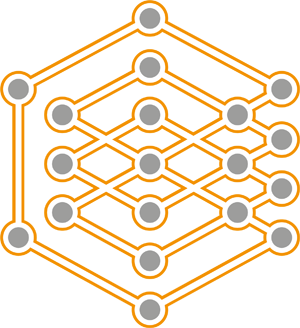
Virtual Product and Solution Development
Prossime Date
Descrizione del Corso
This 1 day class is a combination of lectures and workshops. During the workshops we will work on your implementation and roll-out plan. The intention is to provide the audience with an overall understanding of the topic rather than deep-dive into its complexity. This course is well suited as well for small and medium-sized businesses.
Risultati di Apprendimento
• Understand the capabilities, application fields and limitations of numerical modelling and simulations.
• Know the different tools and methods for standard industry purposes such as System- Modelling, simple Physical Models, Multi-Body-, Multi-Physics, Finite-Element (Structure FEM and Fluid CFD) Simulation .
• Understand how these different tools and methods should be combined and integrated into the development process.
• Be able to create a holistic and strategic implementation plan into your organisation.
• Be able to balance investments with expected improvements.
Partecipanti
• Managers and engineers who are responsible to reduce product development time, cost and risks.
• Managers and engineers who want to include modelling and simulation into their development process.
• Simulation engineers who are interested in the bigger picture.
• Everybody in research and development who already thought that simulation might be a good idea but did not know where to start.
Prezzi del Corso
Rate: 800 CHF
Durata
1 giorno
Istruttore
Thomas Meenken

Future Proofing You - Staying Relevant in the Age of Innovation
Prossime Date
Descrizione del Corso
Today’s industry has taken us from simple digitalisation of products and services to an overwhelming demand for innovation. Whether you work in Design, Product Development, Project / Organisational Management or business support, or and even in an Education function, the demands on time as well as skills have grown enormously over the past years.
Over the 2-day residential programme, we will be working with the principles and process of ‘Slowing Down to Speed Up’ (Schramer 2007). Through the deeper listening that the process provides, you will be able to identify where you are right now and help you to envision where you want to be – personally and professionally.
You will begin to reveal your current mindset, habits and behaviours that have led you to where you are. You will be able to distinguish those that continue to support you to materialise your vision and those that do not. In so doing, you will be able to make personal and professional choices that will be most fulfilling for you as an individual, and beneficial for your organisation.
Establishing work-life balance and fulfilment is essential for the individual, and beneficial for companies and organisations. (Nanette Fondas 2014).
The tools and techniques you will learn in this programme will support you in both meeting the demands of industry and maintaining a work-life balance that works for you.
Upon completing the programme, there will be a follow-up structure with the facilitators which will provide the opportunity to:
• Share your progress on your individual journey following the programme
• Agree on any further actions to support your intentions
• Identify the need for further support (e.g. coaching), if beneficial.
Risultati di Apprendimento
You will develop:
- Clarity about your professional identity and your core values
• A clear set of commitments to fulfill your personal and professional vision
• An enhanced capacity for sense-making of complex systems
• A tool kit for being more present and effective in groups and teams
• A marked increase in self-awareness of one’s talents and strengths and the confidence to leverage them
• The ability to communicate more deeply through storytelling
• The ability to initiate and engage in courageous conversations.
Partecipanti
Systems Thinkers, Change Managers and Engineering Professionals who
• are in question about how they want to take their career forward
• wish to move laterally within the industry
• who wish to illicit radical and systemic change through meaningful leadership
Prezzi del Corso
Early Bird Rates: 1,350 CHF. Regular Rates: 1,500 CHF
Durata
2 giorni
Istruttore
Andrew Hall 
Rudy Villarreal 
.png)
CPRE Foundation
Prossime Date
Descrizione del Corso
Course Overview: The programme provides a comprehensive introduction to the fundamentals of Requirements Engineering, focusing on the foundational understanding of Requirements Engineering techniques, methods and application and the basic theoretical frameworks available.
Risultati di Apprendimento
Be optimally prepared to take the CPRE Foundational level examination
Acquire familiarity with common terminology around Requirements Engineering, Requirements Management and Business Analysis
Understand the basic techniques and methods for Requirements Engineering and their applications
Acquire familiarity with the most established notations for Requirements Engineering
Partecipanti
Systems Engineers
Requirements Engineers
Project Managers
Business Analysts
Product Designers and Developers
Integration, Verification & Validation Engineers
Prezzi del Corso
Early Bird: 1,620 CHF; Regular: 1,800 CHF
Durata
3 giorni
Istruttore
Marco Di Maio 


Oliver Fels 

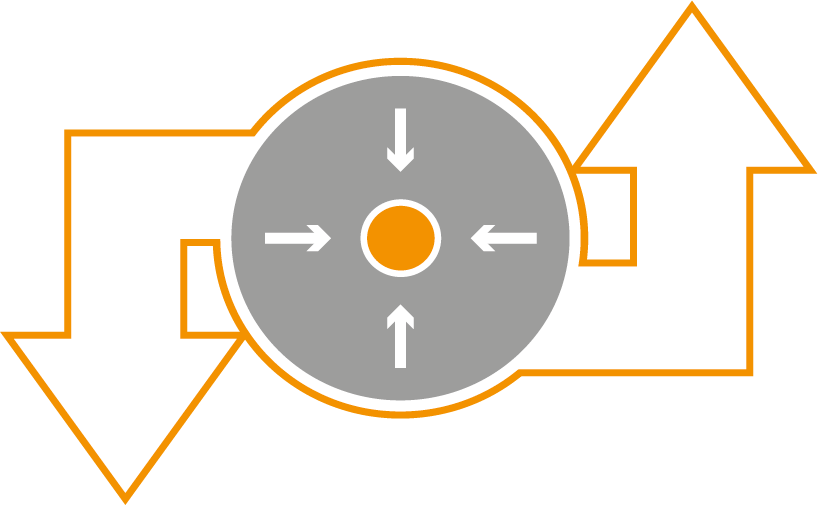
CPRE Agile Requirements Engineering Workshop
Prossime Date
Descrizione del Corso
Requirements Engineering principles are comprehensively discussed and are contextualised to be valid for any system: embedded systsm, safety-critical systems and traditional information systems. At the same time, there will also be scope to look at individual cases brought forth by the participants and apply the learned principles to those particularities.
This workshop is not based on any specific software development approach or process, and is intended to be applicable across domains.
Risultati di Apprendimento
Know the definition of Agile Requirements Engineering
Understand the goals of Agile Requirements Engineering
Know who is responsible for good requirements within SCRUM
Be able to ensure a clean project start
Be able to handle functional requirements, quality requirements and constraints
Prioritise requirements based on business value, risk, dependencies and relative effort
Partecipanti
Requirements Engineers
Business Analysts
Business Engineers
Organisation Designers
Prezzi del Corso
Early Bird: 1,350 CHF; Regular: 1,500 CHF
Durata
2 giorni
Istruttore
Marco Di Maio 


Oliver Fels 

.png)
CPRE Elicitation
Prossime Date
Descrizione del Corso
Requirements Engineering principles in direct reference to elicitation and consolidation are comprehensively discussed and are contextualised to be valid for any system: embedded systsm, safety-critical systems and traditional information systems. At the same time, there will also be scope to look at individual cases brought forth by the participants and apply the learned principles to those particularities.
This workshop is not based on any specific software development approach or process, and is intended to be applicable across domains.
Risultati di Apprendimento
Understand and apply the skills of a Requirements Engineer.
Apply a framework for structuring and manageing requirements elicitation and conflict resolution.
Apply techniques to identify, classify and manage documents, requirements and stakeholders.
Apply elicitation techniques.
Apply techniques for identifying and resolving conflicting requirements.
Partecipanti
Requirements Engineers
Business Analysts
Business Engineers
Organisation Designers
Prezzi del Corso
Early Bird: 1,620 CHF; Regular: 1,800 CHF
Durata
3 giorni
Istruttore
Marco Di Maio 


Oliver Fels 

.png)
CPRE Advanced Modelling
Prossime Date
Descrizione del Corso
The aim of the workshop is to convey knowledge about effective and useful modelling of requirements. You will gain a deeper understanding of how to apply modelling techniques to facilitate better communication, manage system complexity and enable a greater degree of automation in system development activities.
Risultati di Apprendimento
Understand basic principles of Requirements Modelling
Gain ability to use context modelling, to include the use of system boundaries, context boundaries and context diagrams.
Apply the information structure view in requirements modelling, including UML class diagrams, class attributes, data types, binary association, aggregation, composition, generalisation and specialisation.
Apply dynamic views and scenario modelling in requirements modelling inlcuding use case, use case diagram, use case model, data flow, control flow, object flow, data flow diagram, use case specification, activity diagram, function activity, action, state, state machine, event, hierarchisation, and concurrency.
Partecipanti
Systems Engineers
Requirements Engineers
Project Managers
Business Analysts
Product Designers and Developers
Integration, Verification & Validation Engineers
Prezzi del Corso
Early Bird: 1,620 CHF; Regular: 1,800 CHF
Durata
3 giorni
Istruttore
Marco Di Maio 


Oliver Fels 


Basics of Power Grid Operation and Control
Prossime Date
Descrizione del Corso
Perhaps more than other industries, engineering for energy has become an increasingly complex process with demands for digitalisation and interconnected services and products in increasing. Thus, a fundamental understanding of utitilies applications and energy digitalisation is essential for all systems engineers working in this domain.
The course provides the basics of energy systems, power grid and energy market operation principles, processes, models and trends, hence allowing participants to understand the development of the energy sector in the past years and in the near future. It also allows to understand the reasons and impacts of energy systems architectural changes.
Risultati di Apprendimento
• Know the basics of power systems organisation, roles and their relationships.
• Gain a holistic view of processes in power grids.
• To understand the development scenarios and their impact on the energy system.
Partecipanti
• Managers
• Project Managers
• System Operators
• Software Engineers
• Software Architects
• Product Owners
Attendees must have basic training in Systems Engineering (e.g. SE Foundations).
Prezzi del Corso
Regular: 800 CHF
Durata
1 giorno
Istruttore
Dmitri Tchoubraev

Substations Automation Systems
Prossime Date
Descrizione del Corso
Perhaps more than other industries, engineering for energy has become an increasingly complex process with demands for digitalisation and interconnected services and products in increasing. Thus, a fundamental understanding of utitilies applications and energy digitalisation is essential for all systems engineers working in this domain.
The course provides the basics of substations’ and substation automation systems architecture and components, their role in power grid operation. It also shows the basics of data acquisition, communication and control for SAS systems, and gives an overview of the main telecommunication and modelling standards. Providing the main information about Digital Substations, it allows to understand the impacts, chances and risks digitalisation brings to the SAS.
Risultati di Apprendimento
• Know the role of substations in a power system.
• Understand the essential components of substations.
• Reflect on the architecture of the system communications.
• Outline the architecture of information exchange and data collection from consumer installations.
• Gain an overview of emerging technologies and key challenges.
• Understand the basics of digital substations, interfaces and connectivity risks.
• Understand the role of cyber-security for substation automation.
Partecipanti
• Project Managers
• System Operators
• Software Engineers
• Software Architects
• Product Owners
Attendees must have basic training in Systems Engineering (e.g. SE Foundations).
Prezzi del Corso
Regular: 800 CHF
Durata
1 giorno
Istruttore
Dmitri Tchoubraev
.png)
Power System Operations IT Systems (DSO and TSO)
Prossime Date
Descrizione del Corso
Perhaps more than other industries, engineering for energy has become an increasingly complex process with demands for digitalisation and interconnected services and products in increasing. Thus, a fundamental understanding of utitilies applications and energy digitalisation is essential for all systems engineers working in this domain.
The course provides the overview of the applications, used by power utilities (both transmission system operators – TSO, and distribution system operators – DSO). It also shows the basics of data acquisition, communication and control for electrical grids SCADA systems, and gives an overview of the main telecommunication and modelling standards.
Risultati di Apprendimento
• Know common architectures.
• Understand the application environment of a power grid operator (TSO and DSO).
• Know the tasks and interaction of individual applications of grid and market operations.
• Know the tasks of network operation SCADA/EMS/DMS systems and corresponding solution approaches.
• Know the tasks of frequency and load control systems.
• Understand the most important solution-based approaches and challenges for individual application categories.
• Understand the role of service-based architecture and enterprise integration for the IT systems of the future.
• Understand the role of cybersecurity for the IT/OT applications.
Partecipanti
• Project Managers
• System Operators
• Software Engineers
• Product Owners
Attendees must have basic training in Systems Engineering (e.g. SE Foundations).
Prezzi del Corso
Regular: 800 CHF
Durata
1 giorno
Istruttore
Dmitri Tchoubraev
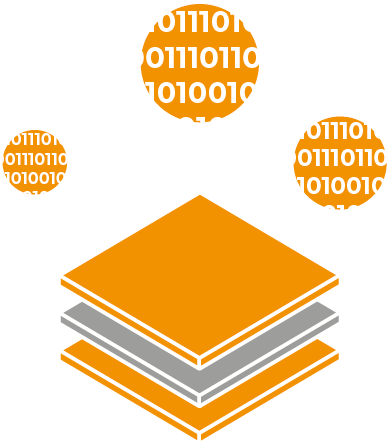
Digitalisation, Automation and End-to-End Data and Process Integration
Prossime Date
Descrizione del Corso
Perhaps more than other industries, engineering for energy has become an increasingly complex process with demands for digitalisation and interconnected services and products in increasing. Thus, a fundamental understanding of utitilies applications and energy digitalisation is essential for all systems engineers working in this domain.
The course provides the basics of digitalisation, automation and integration in the environment of power utilities and comparable industries (different types of network operators – transport, gas, railway, etc.). It shows the approaches, that can be taken for internal enterprise data integration and the ways, the utilities in Europe shall be integrated. It also shares some best practice approaches and discusses their chances and risks.
Risultati di Apprendimento
• Understand the challenges of application integration for power grid operators (TSO, DSO) and similar industries
• Know the main integration approaches, tools and solutions
• Distinguish between different kinds of customers and corresponding process automation solutions
• Know the requirements towards TSO-centric integration (standards, media, processes)
• Understand the role of cyber-security in the IT / OT integration
Partecipanti
• Project Managers
• System Operators
• Software Engineers
• Software Architects
• Product Owners
Attendees must have basic training in Systems Engineering (e.g. SE Foundations).
Prezzi del Corso
Regular: 800 CHF
Durata
1 giorno
Istruttore
Dmitri Tchoubraev

Basics of Enterprise and Software Architectures
Prossime Date
Descrizione del Corso
Perhaps more than other industries, engineering for energy has become an increasingly complex process with demands for digitalisation and interconnected services and products in increasing. Thus, a fundamental understanding of utitilies applications and energy digitalisation is essential for all systems engineers working in this domain.
The course provides the basics of energy systems, power grid and energy market operation principles, processes, models and trends, hence allowing participants to understand the development of the energy sector in the past years and in the near future. It also allows to understand the reasons and impacts energy systems architectural changes.
Risultati di Apprendimento
• Gain a brief and practice-oriented overview of the basics of the Enterprise Architecture and related topics.
• Gain new insights to generate your own ideas.
• Understand and apply best practices that allow productive discussion of problems with other suppliers (including non-electrical utilities).
• Understand how to structure one’s business in an effective yet standard compliant way.
• Define the business and IT-applications landscape so that you, your management and your suppliers (also new ones) can understand it.
• Apply the “out-of-TSO/DSO-box-thinking”
Partecipanti
• Project Managers
• System Operators
• Software Engineers
• Product Owners
Attendees must have basic training in Systems Engineering (e.g. SE Foundations).
Prezzi del Corso
Regular: 800 CHF
Durata
1 giorno
Istruttore
Dmitri Tchoubraev
New Drivers for Energy Utilities
Prossime Date
Descrizione del Corso
While Energy Utilities ought to guarantee the stability of the power system, they are subject to severe and accelerated change, driven by global trends such as the:
- transformation of the energy system to carbon-free
• coordination and harmonization of system and grid operation
• convergence towards international electricity markets
• emerging sector-coupled, multiphysics operated system
• impact of digitalization
Digital trends, both in the form of utility-internal enablers and challenging external factors, are playing a significant role in mastering this change.
The energy companies’ ability to utilize the potential of new digital technologies is restricted due to the mission-critical nature of their business, a highly complicated systems mix and a shortage of technological courage by the main system suppliers.
What are the possible outcome scenarios, and what does that mean for the utilities’ digital strategy?
Risultati di Apprendimento
In this presentation, we will discuss the main trends and challenges the Energy Utilities are facing and their possible impact on the digital and data strategies and architectures.
These include:
- The main trends influencing the energy sector
• The role of digitalization for Energy Utilities
• Possible routes moving forward
Partecipanti
This webinar is for anyone who is…
- Responsible for decision making
• In a lead role within Data, Digital and IT/OT teams
• In a role within Business, Enterprise or IT Architect
• Interested in the future of digitalization and application landscape
Limited spaces available. Save your seat and register now for FREE.
Prezzi del Corso
FREE
Istruttore
Dmitri Tchoubraev
Reducing the Cost of Requirements
Prossime Date
Prezzi del Corso
Istruttore
Marco Di Maio 


Colin Hood 

Software Craftsmanship
Prossime Date
Prezzi del Corso
Istruttore
MBSE Adoption: Empowering the Human Factors of MBSE Adoption Using ADKAR
Prossime Date
Prezzi del Corso
Istruttore
Mohammad Chami
WEBINAR: Customer Journey Mapping - Moving Beyond the User
Prossime Date
Prezzi del Corso
Istruttore
Shaun West
The Self and Social Competence course provides theoretical background and hands-on practical exercises across various “soft skills” topics that are pertinent to working in teams, especially tailored to the context…
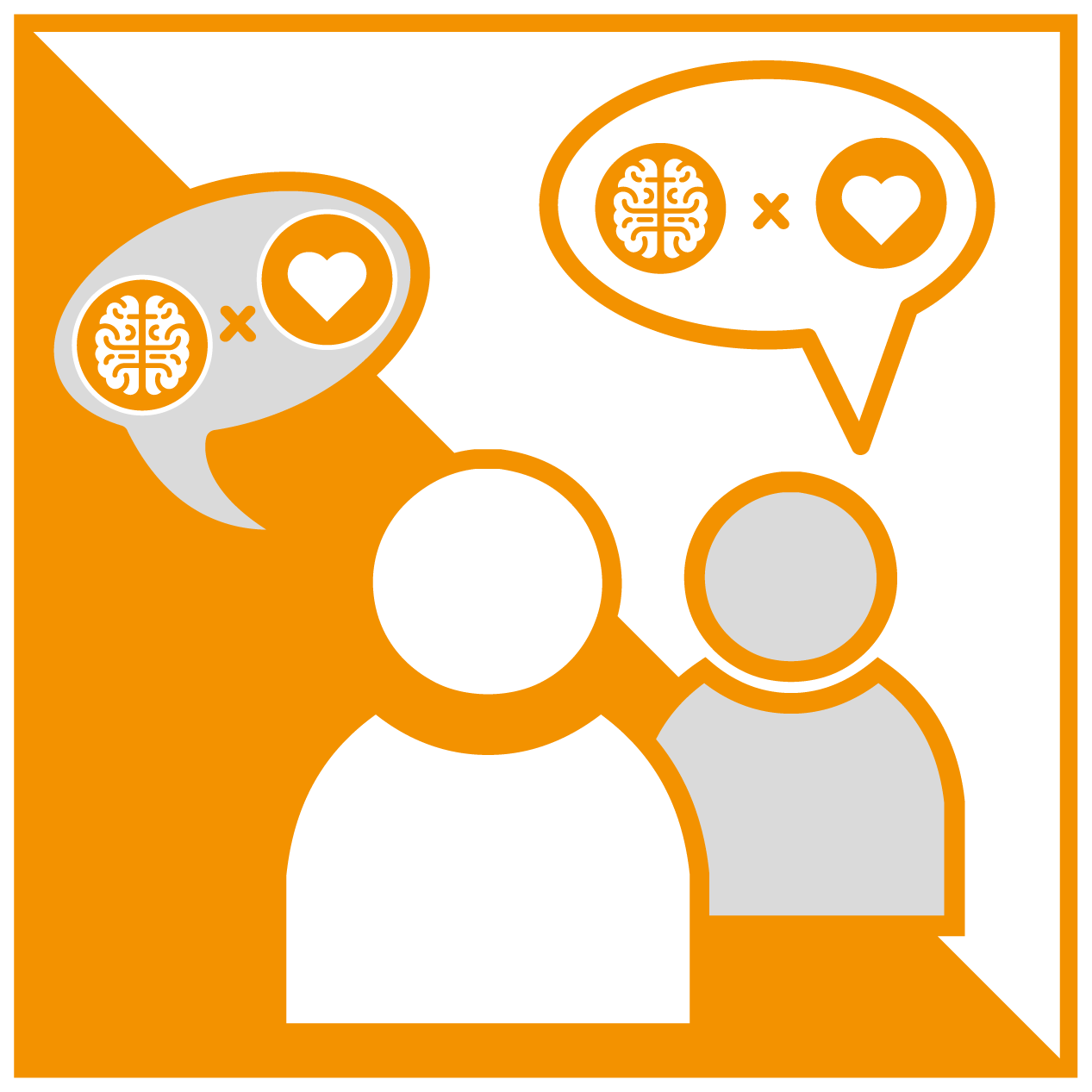
Self and Social Competence for Engineers
Prossime Date
Descrizione del Corso
The Self and Social Competence course provides theoretical background and hands-on practical exercises across various “soft skills” topics that are pertinent to working in teams, especially tailored to the context of Engineers.
We all know technical ability is essential to every system engineer, but soft skills are just as valuable if you want to become an asset in the workplace. They are the characteristics imperative to building successful relationships and the attributes which empower you to make decisions and give you the confidence to manage yourself and inspire others.
Soft skills encompass a vast range of skills from communication, innovation, conflict resolution, adaptability, collaboration and motivation - all of which are vital in negotiating the dynamic engineering landscape. Yet, these are often overlooked in favour of technical learning, leaving many with a void of skills, and the opportunity to boost work practices.
Teams are complex systems, and so they must be managed as such.
Over two full days, we will cover the following areas:
- Self-management, self-competence and social competence.
- Understanding how our mental models and cognitive biases affect our actions.
• Refining and improving your communication style.
- How to have more successful interactions at work (and at home).
- Addressing conflicts and assessing ways to best resolve them.
- Identifying our individual stress coping techniques and discovering concrete ways to improve our energy balance in the long-term.
Risultati di Apprendimento
Upon completion of the programme, participants will:
- gain awareness of their own mental models and cognitive biases
- be able to identify certain communication patterns in themselves and others, and thus be empowered to respond constructively.
- be confident in managing conflicts and in a productive manner.
- have developed conscious awareness of their own stress coping strategies, and the tools and techniques to navigate them for improved communication and overall wellbeing.
Partecipanti
Research and Development Engineers, Project Managers, Team Leaders and Individuals who:
- are interested in more constructive social interactions
- are looking to improve their stakeholder management skills
- are looking to enhance their team's spirit and engagement
Prezzi del Corso
Early Bird: 1,350 CHF | Regular: 1,500 CHF
Durata
2 giorni
Istruttore
Sandra Roth
This intensive 5-day course is delivered by four experts, each with a distinct range of knowledge, skills, and experience, meaning you will gain a diverse and comprehensive view of advanced…
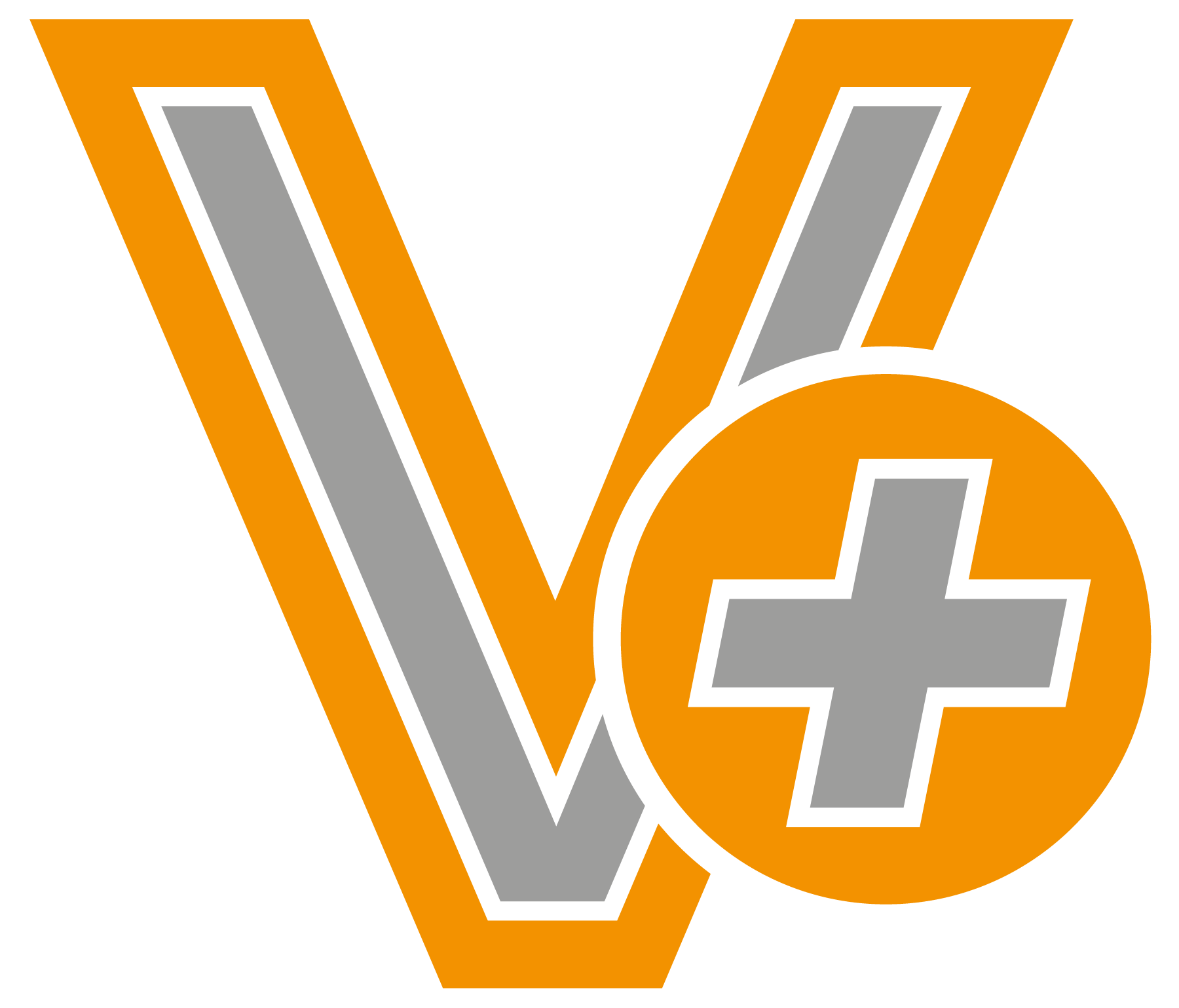
SE Advanced
Prossime Date
Descrizione del Corso
This intensive 5-day course is delivered by four experts, each with a distinct range of knowledge, skills, and experience, meaning you will gain a diverse and comprehensive view of advanced SE, and an unparalleled, interactive learning experience.
This course has been devised to compliment your work within complex product development as you take on more responsibility and mature into more senior roles.
Risultati di Apprendimento
• Identify common attributes and causes of complexity.
- Master the application of Systems Engineering methodologies to complex system developments.
- Master key technical management competences required for matrix/project leaders.
- Apply soft skills applicable for technical matrix/project leaders.
- In a moderated workshop develop sustainable solutions in the System of Systems context.
Partecipanti
Intended for those who have completed an SE Foundations course or those looking to progress to/or currently in technical matrix leadership positions.
Prezzi del Corso
Early Bird: 3375 CHF | Regular: 3750 CHF
Durata
5 giorni
Istruttore
Seb Klabes 

Mike Johnson 
Marco Di Maio 


Sandra Roth 

This three-day intermediate level course covers the WHY, WHAT and HOW of Systems Architecting by teaching the following:
Understanding the WHY: The need for employing architectures to help cope with…

Systems Architecting Intermediate level
Prossime Date
23.10.2024 - 25.10.2024, Zurich
Descrizione del Corso
This three-day intermediate level course covers the WHY, WHAT and HOW of Systems Architecting by teaching the following:
Understanding the WHY: The need for employing architectures to help cope with the overwhelming nature of complexity.
Explaining the WHAT: Architectures provide different system perspectives and are ideal entry points to effectively structure your information.
Introducing HOW: Modelling System Architectures using the COFLP Framework: Contextual/Operational/Functional/Physical/Logical.
- Top-Down modelling of Operations (Missions/Scenarios/Use Cases) yields clarity and allows for re-use of Functions;
- The Functional Architecture elicits Requirements: Functions = Functional RQ; Object Flows = Performance
- The Logical Architecture makes high-level technology and responsibility choices providing the means for identifying Operational & Functional IF
- The Physical Architecture is different in nature, as its elements have to match the Functional Specs which typically happens at the lowest level (bottom-up). They then have to be integrated taking into account all physical constraints concentrating on the optimum (co-)location.
Risultati di Apprendimento
• What is systems architecture and how does it differ from the system design?
• How does it relate to Systems and Holistic Thinking?
• What makes a good architecture: how many architectures do we need?
• What makes up a good architecture so important in the context of complex systems?
• Why are Interfaces such a fundamental concept in Systems Architectures?
• What is the relationship between the Operational Architecture and systems control?
• Can/should we develop the architectures for a system and its Digital Twin together?
• How does it help with decision making for an uncertain development environment?
• Why is it important to develop variants and provide variation points and how do they relate to the interfaces?
• What is a logical and repeatable methodology to develop architectures?
• How can we model the architectures? Do we need MBSE? Do we need tools?
• How can we ensure that the models are consistent and connected?
• Where can one customise the architectures?
• When is an agile approach permissible, when should you take extreme caution?
• How do architectures help developing the system for safety, reliability, availability, maintainability, and inspectability?
• Why is it important to separate the system’s (sometimes called “logical”) from the physical architectures?
• How do all architecture map to the others? Why is mapping a powerful mechanism in developing for complexity?
• What is the timing relationship between the various system (logical) architectures and the physical design?
• What are the main skills of a senior Systems Architect?
Partecipanti
Systems Engineers, Lead/Senior Engineers, Systems Analysts and Systems Architects.
Prezzi del Corso
Early Bird: 2025 CHF | Regular: 2250 CHF
Durata
3 giorni
Istruttore
Marco Di Maio

FREE WEBINAR
Prossime Date
Prezzi del Corso
Durata
0.1 giorno
Istruttore
Patrick Link
EU law requires that controllers put in place measures to effectively implement data protection principles and to integrate the necessary safeguards to meet the requirements of the regulation and protect…

Design for Privacy
Prossime Date
Descrizione del Corso
EU law requires that controllers put in place measures to effectively implement data protection principles and to integrate the necessary safeguards to meet the requirements of the regulation and protect the rights of data subjects.
These measures should be implemented both at the time of processing and when determining the means for processing. In implementing these measures, the controller needs to take into account the state of the art, the costs of implementation, the nature, scope and purposes of personal data processing and the risks and severity for the rights and freedoms of the data subject.
In addition, controllers and processors are obliged to design the data processing in such a way as to prevent or minimise the risk of interference with those rights and freedoms and implement technical and organisational measures which take into account the implications of the right to the protection of personal data at all stages of the data processing.
We will focus on the following principles:
- Lawfulness of processing & Fairness of Processing & Transparency of Processing
- The principle of purpose limitation
- The data minimisation principle
- The Data accuracy principle
- The Storage limitation Principle
- The Data security principle
- The Accountability principle
Risultati di Apprendimento
At the completion of training, the trainee will be able to achieve the following outcomes:
- GDPR principals and rules related with Data Privacy by Design
- How to approach to each process within System engineering of a new or existing platform.
- How to make Risk Analysis of each process which contains vital data such as Personal Data.
- How to mitigate the process with high risk to low risk within any platform existing and or new.
- How to define / create Technical and organizational Measures to protect the vital data which is both Company confidential Data and Personal Data according to GDPR.
- How to make decision of putting the processes under right legal basis according to GDPR.
- How to make the platforms secured especially in case of Cyber-attacks and attacks from Internal organization.
Partecipanti
• Engineers
• Product developers
• Programme, software or website designers
• Other managers responsible the development of products and services where data privacy is critical.
Prezzi del Corso
Early Bird: 1350 CHF | Regular: 1500 CHF
Durata
2 giorni
Istruttore
Hakan Hasserbetci
This course will provide attendees with a solid foundation in the design of secure systems and products. We will define what cyber security means in a product development context and…

Design for Security
Prossime Date
Descrizione del Corso
This course will provide attendees with a solid foundation in the design of secure systems and products. We will define what cyber security means in a product development context and how it contributes to safe and reliable operation. To this end, we will need to clarify how security engineering differs from traditional safety and reliability engineering and how it is embedded into the overall systems engineering context. Although the entire product life cycle will be covered, emphasis will be put on the design and development phases, as these are the most important ones from the cyber security perspective. We will look into how to define a product security context and how to derive basic security architecture principles from it. We will then proceed with developing security risk assessment techniques and apply them to the system under design, i.e. we will elaborate on how risk assessment outcomes will result in security requirements that will need to be implemented in the system. Finally, we will discuss how security properties of a system can be validated and verified, both during the development and after entry into service. The course will focus on dependable systems in order to emphasize the intimate relation between safety and security.
Risultati di Apprendimento
• Gain a good understanding of dependable systems and the role of security in their design and development
• Gain an understanding about the security implications of a system design
• Assess the business and project risks associated with specific design decisions
• Estimate the cost of security incidents
• For all stages of the product life-cycle, be able to outline the key elements
associated with “designing for security”
• Have an overview of the tools and techniques employed by cyber security
specialists when adopting a risk-based approach to security
• Have an appreciation of the security issues associated with software, human/system interactions, novel technologies, complex system of systems and autonomy
Partecipanti
• Design engineers needing to improve or refresh their product security knowledge to enhance their integration within a Systems Engineering team
• Safety engineers who need work together with security engineers on a
common system design and have not yet been exposed to the topic
• Project and program managers wishing to understand how poor security
engineering can lead to prohibitive business and project risks
• Engineering managers wishing to improve their specialist knowledge order to gain the most from their security team
• Business leaders wishing to understand their legal and moral responsibilities
to ensure that products and systems are designed, commissioned and operated safely and securely
Prezzi del Corso
Early Bird: 1350 CHF | Regular: 1500 CHF
Durata
2 giorni
Istruttore
Stephan Marwedel
Learn the basics of the Polarion® ALM™ platform. Understand the philosophy of Polarion® ALM™ and what potential the systematic use of the tool offers for your requirements management.
…

Polarion Basics
Prossime Date
Descrizione del Corso
Learn the basics of the Polarion® ALM™ platform. Understand the philosophy of Polarion® ALM™ and what potential the systematic use of the tool offers for your requirements management.
Risultati di Apprendimento
Learn to create Polarion® work items, filtering and searching, linking and team collaboration.
• What are the benefits of Polarion®?
• General introduction to Polarion®
• Working with work items
• Working with documents
Partecipanti
• Requirements Engineers
• System Engineers
• Project managers and other users of Polarion® ALM™.
In addition, the offer is directed at all ALM tool interested parties who would like to get to know the handling of an ALM system and try it out for themselves.
Prezzi del Corso
Regular: 800 CHF
Durata
1 giorno
Istruttore
SE-Training Partner Company
The Practical MBSE and SysML course provides a combination of the fundamentals of MBSE and the practical aspects of the adoption of MBSE with its concepts and key enablers for…

Practical MBSE & SysML
Prossime Date
Descrizione del Corso
The Practical MBSE and SysML course provides a combination of the fundamentals of MBSE and the practical aspects of the adoption of MBSE with its concepts and key enablers for successful MBSE adoption.
The course first deals with explaining the why of MBSE based on the participants challenges with actual practices. Next, the elements of the MBSE adoption, i.e., process, method, language, and tool are explained and demonstrated with several practical exercises. Particularly, the how, i.e., the method element and its development is trained based on the participants objectives without promoting any specific modelling tool.
Finally, the course wraps up with a discussion of the human-factors of MBSE adoption and the business factors for defining, developing and deploying MBSE in real-world applications. Including what comes after MBSE is deployed to ensure a long-term strategical MBSE adoption.
The course includes individual exercises, as well as group exercises with a daily interactive workshop covering detailed MBSE use cases.
The course can be attended exclusively at a Customer's site or in one of our regular external course venues, where there's a healthy mixture of engineers from different backgrounds.
No prior training is required.
Risultati di Apprendimento
• What is MBSE, modelling language, modelling method and modelling tool?
• SysML basic concepts, elements, relations, and diagrams
• Why should we use MBSE and how it manages system engineering challenges
• How to start with MBSE, what to do and what not to do
• How to develop or customize the aimed MBSE method
• The human-factor aspects related to MBSE adoption
• How to ensure the delivery of valuable and usable system models
Partecipanti
All engineers, particularly systems and software engineers/architects or those who work with requirements, concept description, traceability and aim at improving how they analyse, design, and manage their systems.
All managers, particularly those who aim at deploying MBSE to reduce design time, improve product quality, manage complex products, save cost and ensure reusability.
Prezzi del Corso
Early Bird Rates: 1,890 CHF. Regular Rates: 2,100 CHF
Durata
3 giorni
Istruttore
Mohammad Chami

Workshop for Complex Problem Solving
Prossime Date
Descrizione del Corso
Solving complex problems is one of the most urgently required skills in our current time. As technologies become more advanced, the possible solutions created by them become more and more complex to understand, design for and successfully implement. This can be seen across multiple industries and is causing significant front line issues to reliability, maintenance, project cost, product performance and overall schedules.
In this one-day course a systematic methodological process for applying to technical complex problem solving shall be taught through an interactive workshop. Each stage of the process shall be expanded to include real-world examples in addition to various approaches for tailoring and applying the process.
OUR SYSTEMS ENGINEERING BASIS
1. Stakeholder analysis is a deep ongoing discipline. It is far in advance of simpler user/customer considerations, and a key to dealing with complex systems.
2. System and Project stakeholder improvement Objectives all can, and must be, specified quantitatively, and in enough detail to handle the complexity of the stakeholders. These quantified objectives form the logical and clear basis for judging all strategies and architectures.
3. Multiple costs, both short and long term, are resource constraints, that need articulation and must be used to judge and prioritize all potential strategies and architecture.
4. Multidimensional Analysis of multiple design strategies, against multiple stakeholder objectives and costs using a Value Impact Estimation table is a powerful way to keep track of very complex systems at multiple related levels of concern.
5. Decomposition of complex systems: we will show number of advanced methods for decomposing complex problems and projects, so that we can create a value prioritised stream of cumulative value delivery, for early results, for intelligibility of complex system. This is advanced agile engineering
OUR WORKSHOP BASIS:
We will choose a sample classroom problem to work on, possibly one which participants think is interesting or useful
We will divide into 2 person teams, who will work on part of the problem, and we will pool the results of all teams in one coherent dynamic model of specification.
We will use ValPlan as an app (but everything can be done in any word processor or spreadsheet) and use Planguage as a well defined free way to articulate ideas.
We will do the best we can to teach as much as we can in the classroom day. But we will probably only manage to sample 20-40 of the well over 100 specific tools in the books.
We hope that is enough to light your fire, and enable you to bring these ideas into your personal work and to share with your personal environment.
The technologies are all free forever, and can be spread or used as much as you like. Everthing is based open literature.
The methods have been used, researched, and documented, on small and very large scale at well known multinational companies such as Intel, HP, Boeing, Ericsson, Philips, Medtronic and many
others. Including several Swiss Banks! The methods are proven scale free, and they can be gradually adopted to improve your current systems engineering culture, as they prove themselves useful.
ALL PARTICIPANTS RECEIVE THE FOLLOWING:
1. Stakeholder Engineering (digital book)
2. Value Requirements. (Digital book)
3. System Engineering Architecture (digital book)
4. Competitive Engineering (digital book)
Risultati di Apprendimento
• Understanding and application of many Systematic methodological processes for applying to technical complex problem solving
• Ability and motivation to continue learning more based on the included written books.
Partecipanti
ALL roles dealing with Complex technical problems. Notably:
- Systems Engineers
• Technical Leaders
• Project Managers
• Requirements Engineers
• System Architects
• Product Owners
• Project Managers
• Development Engineers
• Verification and Validation Engineers
• Quality Engineers
Prezzi del Corso
Regular: 800 CHF
Durata
1 giorno
Istruttore
Tom Gilb
Organisations need to establish requirements, regardless of their business methods or tool selections. Requirements have to capture the essence of what it is expected from the product or service to…

REQUIREMENTS – The GOOD, the BAD and the UGLY
Prossime Date
Descrizione del Corso
Organisations need to establish requirements, regardless of their business methods or tool selections. Requirements have to capture the essence of what it is expected from the product or service to be supplied. To have any enduring value, requirements need to be managed and maintained throughout the project lifecycle to ensure that what is achieved at every stage can be demonstrated expressly to meet the Customer’s needs. The techniques used to elicit the requirements at the start of the project lifecycle and the quality of their initial definition have a proven influence on the success, or failure, of the developed product or service.
The objective of the workshop is to understand the key steps in engineering requirements throughout the project lifecycle and to enhance the capability of individual engineers to recognise and create effective requirements.
Risultati di Apprendimento
• Understand the key steps in determining and managing requirements
- Apply effective techniques that help at each step of the process
- Know how to write good requirements and how to avoid writing poor requirements
- Understand a case study as a practical example to demonstrate effective techniques
Partecipanti
• Project Engineering Managers and Project Engineers who are responsible for creating and analysing requirements
- Personnel from all functional areas who are involved in defining and agreeing the requirements
- Functional personnel who are responsible for reviewing requirements and participating in design reviews
- Personnel involved in acceptance activities
- Personnel from all functional areas who use the defined requirements set to guide their activities throughout the project lifecycle
Prezzi del Corso
Early Bird: 2025 CHF | Regular: 2250 CHF
Durata
3 giorni
Istruttore
Gordon Woods
The effective Management of Requirements sits alongside the effective management of Customer Acceptance as the two key process areas that define our interfaces with the Customer and user community. They…
.png)
REQUIREMENTS – Where Customer and Business Needs Meet
Prossime Date
Descrizione del Corso
The effective Management of Requirements sits alongside the effective management of Customer Acceptance as the two key process areas that define our interfaces with the Customer and user community. They also determine the context for all the engineering activities on your projects. Requirements and Acceptance can never be separated as independent activities and they also have strong links to most other process areas. There is no universal solution to the problem of how to manage requirements effectively, however, there are techniques and methodologies that will help if used appropriately. The only effective Requirements Management process is one that is tailored to the style of your business and to your Customer.
The objective of the workshop is to enhance your capability to define, review, improve and implement effective processes for the management of requirements. The workshop will cover the principles of effective Requirements Management but will not address specific toolsets that may be used to implement the process for an individual project or business.
Included within the workshop are the following:
- Why requirements need to be managed
- The scope of requirements
- Where requirements come from
- What drives the need to tailor Requirements Management processes
- The classic problems of managing requirements
Risultati di Apprendimento
• Understand the benefits of an effective Requirements Management process
- Apply many effective approaches to the classic Requirements Management problems
- Understand the aspects of a Requirements Management process that need to be tailored to the Business or project
Partecipanti
• Project Engineering Managers and Project Managers who are responsible for defining the Requirements Management Processes
- Functional personnel who are responsible for engineering governance, assurance or process compliance
- Personnel from all functional areas who are involved in the business winning phases of the project lifecycle when the requirements are evolving
- Personnel from all functional areas who are involved in managing the relationship with the Customer and end user community throughout the project lifecycle
- Project personnel who are implementing the Requirements Management process and participating in design reviews
Prezzi del Corso
Early Bird: 2025 CHF | Regular: 2250 CHF
Durata
3 giorni
Istruttore
Gordon Woods
Systems Engineering Overview
Prossime Date
Prezzi del Corso
Durata
0.5 giorno
Istruttore
Mike Johnson
Are you curious about the role of a Systems Engineer? How are they different to other engineers and what benefits do they bring to teams and organisations? Are you considering…

Systems Engineering: In a nutshell
Prossime Date
Descrizione del Corso
Are you curious about the role of a Systems Engineer? How are they different to other engineers and what benefits do they bring to teams and organisations? Are you considering employing a systems engineer but would like to have more clarity about the role first?
Or perhaps you would like to understand the discipline of Systems Engineering a little more? What is it and why does your company need it? How can it enhance complex product design, development and realisation? How does Systems Engineering relate to your department?
If these are the questions that you would like the answers to then let Systems Engineering expert Mike Johnson help. He will explain the who’s, what’s and why’s of Systems Engineering in a straightforward way. By giving you real-life examples of how Systems Engineering can add value to your organisation and efficiency to your projects (think improved processes, revenue targets, quality & performance) you will have a clear understanding of both the role and the discipline.
Mike will also discuss pointers to include in your job advertisements for Systems Engineers' positions as well as highlight which qualifications, experience and skills make a well-rounded Systems Engineer.
You will also learn some handy tips for interview questions so you can feel confident in selecting a suitable candidate for your team/organisation.
This is an interactive course with opportunities to ask questions throughout.
Risultati di Apprendimento
• Understand the basic principles of the Systems Engineering discipline benefiting the adjacent departments such as, Human Resources, Quality, Procurement, Finance, Operations and Support.
• Understand the value of Systems Engineering.
• Understand the role and responsibilities of a Systems Engineer.
• Understand the value a Systems Engineer can add to a team or organisation.
• Understand how to attract a quality Systems Engineer to your company when advertising for a position.
• Know what to ask in an interview.
• Know what to look for when selecting a candidate.
Partecipanti
• Human Resources
• Quality engineering Department
• Finance and Procurement Departments
• Operations and Support Departments
Prezzi del Corso
Early Bird: 360 CHF | Regular: 400 CHF
Durata
1.0 giorno
Istruttore
Mike Johnson
Learn how to comply with the General Data Protection Regulation (GDPR) and the Federal Data Protection Act (FADP) in this two-day course with data protection expert Hakan Hasserbetci.
…

Compliance with the Swiss Data Privacy Act & GDPR
Prossime Date
Descrizione del Corso
Learn how to comply with the General Data Protection Regulation (GDPR) and the Federal Data Protection Act (FADP) in this two-day course with data protection expert Hakan Hasserbetci.
From September 1, 2023, all Swiss companies must implement the new Data Protection Act (nFADP). For companies that are not already compliant to the 2018 European General Data Protection Regulation (GDPR), compliance with the new Swiss law could be a lengthy and complex process requiring inputs from legal and technical experts within data protection and privacy.
Therefore, with less than a year to implement these new requirements, companies must act now.
To prepare for compliance with the nFADP, the processes data during the compliancy period must be identified based on the risks involved and analysed. The more data a company processes and/or the more sensitive it is (e.g. related to religion, health, lawsuits, etc.), the more requirements there will be.
This course will enable attendees to gain an overarching knowledge of the GDPR and the nFADP regulations as well as take you through a definitive checklist to ensure compliance.
This is an interactive course which combines discussions, case studies, quizzes, and a final exam.
All course attendees will receive a Data Privacy handbook based on GDPR and FADP.
Risultati di Apprendimento
• Good understanding and comparison of GDPR and FADP regulations.
- Able to check and modify data protection statements (website, contracts, advertising content, etc.).
- Establish a data processing register (except for companies with less than 250 employees and if there is no significant privacy risk).
- Establish procedures for responding promptly to data subjects' requests (e.g., for information or deletion of data).
- Implement a data breach reporting procedure.
- Establish a process for impact assessments that are required when data processing is high risk (e.g., in the case of systematic monitoring of the broader public domain).
- Analyse contracts with subcontractors, to check whether data security is provided and add clauses in this regard.
- Review the countries where data is transmitted, including for simple cloud backup (these countries must be on a Federal Council list. If not, more stringent requirements apply).
- Have an overview of the tools and techniques employed by cyber security specialists when adopting technical measures to security of personal data.
- For all stages of the personal data life cycle, be able to outline the key elements associated with “designing for privacy” & develop security risk assessment techniques and apply them to the compliancy project under data protection by design and by default.
Partecipanti
• Lawyers wishing to improve their GDPR knowledge to enhance their integration within a cyber security team.
- IT Platform engineers wishing to refresh their ‘privacy in developing a platform’ knowledge and enhance their knowhow within a GDPR Personal Data compliancy team.
- Project and program managers wishing to understand how poor security processing of personal data can lead to unexpected personal data breaches and compliancy project risks.
- Business leaders wishing to understand their legal responsibilities to ensure how to get purely compliant by GDPR project team under DPO directive.
- University students studying Law, Engineering, Design etc.
Prezzi del Corso
Early Bird: 1350 CHF | Regular: 1500 CHF
Durata
2 giorni
Istruttore
Hakan Hasserbetci
A 4-day course to gain Systems Engineering skills whilst also being effectively prepared to take the INCOSE ASEP and CSEP exam. The training course is focused on both understanding and…
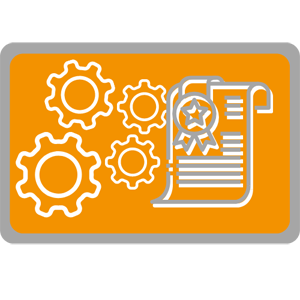
INCOSE SEP Exam Preparation
Prossime Date
27.05.2024 - 30.05.2024, Zurich
Descrizione del Corso
A 4-day course to gain Systems Engineering skills whilst also being effectively prepared to take the INCOSE ASEP and CSEP exam. The training course is focused on both understanding and applying key Systems Engineering principles consistent with the ISO 15288 standard and the INCOSE Systems Engineering Handbook, enabling course attendees to both apply Systems Engineering more effectively, and to pass the INCOSE SEP exam.
Risultati di Apprendimento
• Introduction to INCOSE, the handbook and the INCOSE certification model (SEP)
- Understand the key concepts of Systems Engineering
- Thorough review of the processes described in the INCOSE handbook
- Understand the structure and relationships of the ISO 15288 processes
- Extensive practice of realistic questions
- Prepared to take the INCOSE SEP Examination
Partecipanti
• Systems Engineers
• Requirements Engineers
• Integration, Verification and Validation Engineers
• Configuration Managers
• Quality and Process Engineers
• Project and Program Managers
• All Engineers seeking a holistic approach to Engineering
Prezzi del Corso
Early Bird: 2475 CHF | Regular: 2750 CHF
Durata
4 giorni
Istruttore
Seb Klabes 

Mike Johnson 
Piet Belgraver 
Marco Di Maio 


Marco Serra 

Did you ever come across a 42 problem? Probably yes. The 42 problem is an answer, for which we do not have the question. Like products, we have been developing…
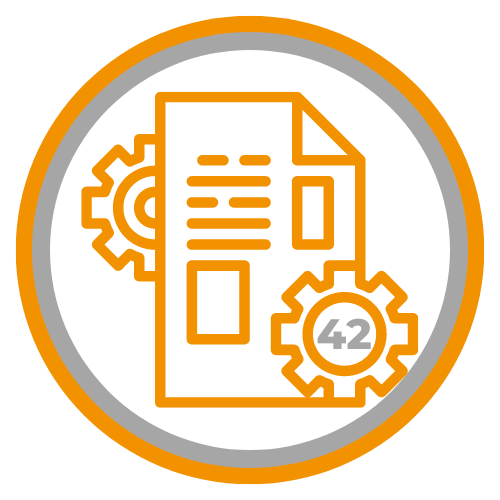
Requirements Engineering - The Hitchhikers Guide
Prossime Date
Descrizione del Corso
Did you ever come across a 42 problem? Probably yes. The 42 problem is an answer, for which we do not have the question. Like products, we have been developing over the years, omitting proper requirements documentation, which is the answers to needs, which have been forgotten long ago. Now, everybody is trying reverse engineering with great tools and struggles.
This course gives you the fundamentals of requirements engineering, stakeholder management, and requirements documentation. It builds the basis for a later CPRE certification and introduces you to the basics of RE and its purpose as well as tooling, organizing and communicating requirements in a collaborative and agile workflow. No more misunderstandings and no more 42 problems. Guaranteed.
Risultati di Apprendimento
• Deep understanding about the motivation for requirements & stakeholders
- Capability to differentiate between challenge & solution spaces
- Awareness for the role of the Requirements Engineer
- Application of different types of requirements
- The good and the bad - requirements and quality
- Awareness of the importance of requirements for risk management
- Sorting, structuring and managing requirements
- Requirements verification and validation
- Application of the feature-based approach to requirements
- Toolings and sorting
- Requirements reuse and their role for modularity
- How to apply requirements for regulatory issues
Partecipanti
• Requirements Engineers
• Product Leads
• Product Owners
• Product Managers
• Sales Engineers
• Integration, Verification and Validation Engineers
• Project Managers
Prezzi del Corso
Early Bird Rate: 1,350 CHF. Regular Rate: 1,500 CHF
Durata
2 giorni
Istruttore
Oliver Fels
Engineering is accomplished by engineers and engineers are experts. Often enough, leading experts can be special and conflict management and communication is a high priority topic on the list. Expectation…

Engineering Leadership
Prossime Date
03.06.2024 - 04.06.2024, Zurich
Descrizione del Corso
Engineering is accomplished by engineers and engineers are experts. Often enough, leading experts can be special and conflict management and communication is a high priority topic on the list. Expectation management requires full attention as misunderstandings happen quite often.
This course exposes classical leadership techniques enriched with a focus on communication and conflict management.
Risultati di Apprendimento
• Detailed understanding of personal strengths and weaknesses in leadership roles
• Know historic examples of good and bad leadership practices applied to today’s work
• Know effective methods for making difficult leadership decisions
• Understanding of characteristics of leaders
• Apply effective strategies for managing confrontations in senior leadership roles
• Apply practical conflict management
• Managing commercial and executive expectations
• Practicing leading by example
Partecipanti
• Team Leads
• Department Leads
• Product Managers
• Product Owners
• Project Managers
• Management
Prezzi del Corso
Early Bird Rate: 1,350 CHF. Regular Rate: 1,500 CHF
Durata
2 giorni
Istruttore
Oliver Fels
In the near future, providing transparency of an organisations sustainability strategy will become a competitve advantage to stand out from competitors.
Enterprises are becoming more obligated to take global responsibility…

Sustainability Engineering
Prossime Date
Descrizione del Corso
In the near future, providing transparency of an organisations sustainability strategy will become a competitve advantage to stand out from competitors.
Enterprises are becoming more obligated to take global responsibility for their actions, recognizing that sustainability is a future driver for a sustainable existence. Increasing pressure is coming from regulatory bodies, financial and investors and the public audience.
This course provides an introduction to the sustainability engineering methodology, which enables clear identification of goals, targets and action items, and provides the means to structure, organize, track, verify and publish sustainability journey using traditional and creative engineering techniques.
In addition, the course is good preparation for compliance with ESG (Environmental, Social, and Governance), SDG (Sustainable Development Goals) and the upcoming CSRD (Corporate Sustainability Reporting Directive) based on ESR (Environmental and social risk management).
Risultati di Apprendimento
• Introduction to extended sustainability issues and impact
• Fundamental knowledge about the regulatory issues and the business impacts
• Clear path how to define the sustainability story line
• Capability to set up, structure, track, validate, and publish sustainability requirements and action items inside and outside
• Vision to use Sustainability Engineering as a basis for CSR or any other sustainability report
Partecipanti
• Sustainability Managers
• Corporate leaders (CEO/CTO/CFO)
• Department Leads
• Sustainability Stakeholders
Prezzi del Corso
Early Bird Rates: 1,350 CHF. Regular Rates: 1,500 CHF
Durata
2 giorni
Istruttore
Oliver Fels
A 3-day interactive course to gain Practitioner’s level skills for Integration, Verification and Validation (IV&V) of complex technical systems.
The training course is focused on both understanding and…

Integration, Verification and Validation (IV&V) Practitioner
Prossime Date
23.09.2024 - 25.09.2024, Zurich
Descrizione del Corso
A 3-day interactive course to gain Practitioner’s level skills for Integration, Verification and Validation (IV&V) of complex technical systems.
The training course is focused on both understanding and applying key principles, methods and processes consistent with the ISO 15288 standard and the INCOSE Systems Engineering Handbook, enabling course attendees to be prepared for working within and / or leading the IV&V phase for technical complex systems.
The course learnings are delivered through classroom teaching, short discussions, short exercises, and a facilitated group workshop.
Risultati di Apprendimento
• Know the key concepts and terminology used in IV&V (Integration, Verification and Validation).
• Understand and apply key IV&V aspects from the ISO 15288 standard.
• Understand processes that contribute to IV&V in the design, development, acceptance, and operation of complex technical systems.
• Design and manage IV&V in time efficient interaction with programme logistics.
• Practice the preparation of the IV&V plan.
• Awareness of the main types of tests used in complex system verification.
• Know the use of analysis, inspection, and design review methods for verification and validation.
• Know the possibilities for re-using existing qualification within complex systems.
• Understand the IV&V Change Approval Board.
Partecipanti
• Integration, Verification & Validation (IV&V) Engineers
• Manufacturing, Assembly, Integration & Test (MAIT) Engineers
• Systems engineers
• Development Engineers needing a strong awareness of IV&V
Prezzi del Corso
Early Bird: 2025 CHF | Regular: 2250 CHF
Durata
3 giorni
Istruttore
Mike Johnson 
Marco Di Maio 


Kevin Howard 
Estimating is often a challenging competence within projects developing complex systems. Often this is caused by the application of inappropriate estimation methodologies, leading to severe consequences such as projects running…
.png)
Practical Estimations
Prossime Date
Descrizione del Corso
Estimating is often a challenging competence within projects developing complex systems. Often this is caused by the application of inappropriate estimation methodologies, leading to severe consequences such as projects running out of budget prior to their planned completion.
This course establishes a profound fundament through the various phases and why different viewpoints on the numbers are necessary. Learn the different techniques and how to apply each within the lifecycle phase. Learn who to involve and when, how risk management comes into play and the importance of documenting the right assets at the right point of time.
In addition, the various psychological aspects involved with estimating are covered during the course.
Risultati di Apprendimento
• Fundamental understanding about estimations. Purpose, Motivation, error sources
• Understand the psychological challenges of Estimation
• Fundamental understanding of stakeholders involved
• Know what to expect from different estimators
• Understand different estimation phases
• Know major estimation techniques and their application
• Understand the Estimation recipe - what belongs into an estimation and what to document
• Apply Risk and Assumptions Management to Estimations
Partecipanti
• Engineers
• Team Leads
• Project Managers
• Engineering Leaders
• Integration, Verification & Validation Engineers
• Product Owners
Prezzi del Corso
Early Bird Rates: 1,350 CHF. Regular Rates: 1,500 CHF
Durata
2 giorni
Istruttore
Oliver Fels
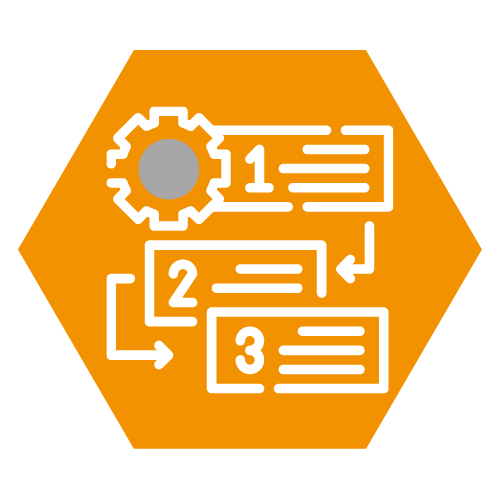
Planning Technical Projects
Prossime Date
Prezzi del Corso
Istruttore
Piet Belgraver

Technical Risk Management
Prossime Date
Prezzi del Corso
Istruttore
Mike Johnson 
Piet Belgraver 
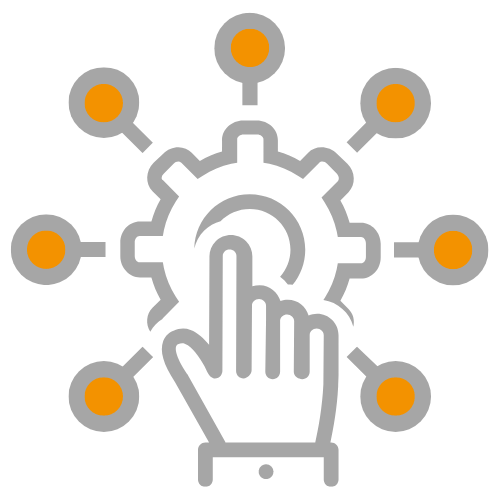
System Dynamics
Prossime Date
Prezzi del Corso
Istruttore
Marco Serra
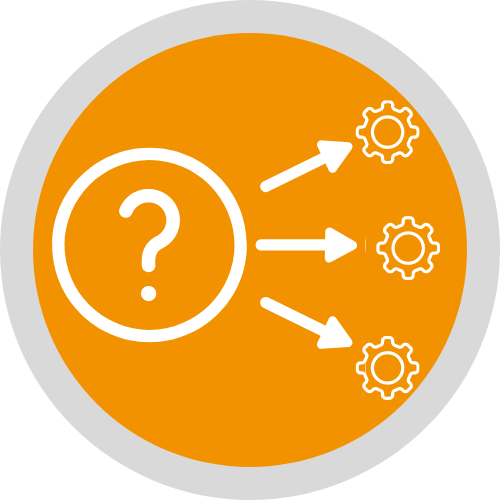
Root Cause Analysis (RCA) of Complex Systems
Prossime Date
Prezzi del Corso
Early Bird: 2025 CHF | Regular: 2250 CHF
Durata
3 giorni
Istruttore
Marco Serra
You have already had initial experience with Scrum and may have already achieved Scrum Master or Product Owner certification. Now it is a matter of taking the acquired knowledge and…
.png)
Using Scrum successfully – The next step
Prossime Date
Descrizione del Corso
You have already had initial experience with Scrum and may have already achieved Scrum Master or Product Owner certification. Now it is a matter of taking the acquired knowledge and the first experiences made one step further and working successfully with Scrum.
The event is designed as a workshop in which we work together on real challenges in everyday Scrum life and find pragmatic solutions that will help you in your specific area of application.
In the course of the course, in addition to knowledge transfer, exchange and group work, we will carry out an extensive agile simulation for one day using the Lego® Serous Play® method.
In order for us to be able to work together optimally within the framework of the Lego Serious Play Simulation, we only offer this course as a face-to-face event. If you would like online training on similar topics, please contact us.
Risultati di Apprendimento
• In-depth understanding of Scrum's success factors.
• Learn and try out tools that will make you and your Scrum Team more successful.
• Answers to specific, personal experiences and challenges in your implementation of Scrum.
• Introduction and experience of the Lego® Serous Play® method
Partecipanti
The participants of this course should have previous experience in the implementation of Scrum and ideally be working in one of the roles below:
- Scrum Master
• Product Owner
• Scrum Developers
• Agile Coaches with Scrum Experiences
• Leaders with Scrum Experiences
We are happy to offer separate training courses for beginners on request.
Prezzi del Corso
Early Bird: 2025 CHF | Regular: 2250 CHF
Durata
3 giorni
Istruttore
Christoph Bisel
Many teams experience the challenge of successfully planning sprints and successfully completing all planned tasks at the end of the sprint. The combination of Scrum and Kanban can offer a…
.png)
Combining Scrum and Kanban successfully
Prossime Date
Descrizione del Corso
Many teams experience the challenge of successfully planning sprints and successfully completing all planned tasks at the end of the sprint. The combination of Scrum and Kanban can offer a decisive advantage here.
In this course you will learn how to successfully combine Scrum and Kanban. To do this, we will provide you with the necessary knowledge of Kanban and work together to develop the combination of both frameworks. Scrum knowledge as part of a Scrum basic training is required for this course.
Risultati di Apprendimento
• You know how to successfully use Kanban in knowledge-based environments (IT, marketing, etc.).
• You understand the metrics of Kanban and can use them as a basis for continuous improvement.
• You know how to use Kanban to optimize your Scrum implementation.
• You know the success factors and framework conditions.
Partecipanti
The participants of this course should have previous experience in the implementation of Scrum. We are happy to offer separate training courses for beginners on request.
- Scrum Master
• Product Owner
• Scrum Developers
• Agile Coaches with Scrum Experiences
• Leaders with Scrum Experiences
Prezzi del Corso
Early Bird Rates: 1,350 CHF. Regular Rates: 1,500 CHF
Durata
2 giorni
Istruttore
Christoph Bisel
Scrum supports teams in successfully developing products. But Scrum is not a complete project management method. As a result, many companies use Scrum (or other agile frameworks) but also want…
.png)
Hybrid project management
Prossime Date
Descrizione del Corso
Scrum supports teams in successfully developing products. But Scrum is not a complete project management method. As a result, many companies use Scrum (or other agile frameworks) but also want to use elements from classic project management. A hybrid project management is sought.
In fact, "hybrid project management" doesn't exist. It is always a combination of several frameworks.
In this course, we work together to develop the basic questions and elements for the introduction of hybrid project management. In this way we create a basis for you and your team/s to successfully build up your hybrid project management.
Risultati di Apprendimento
• Understand the challenges in the combination of agile frameworks and classic project management.
• Understand the success factors for a hybrid approach.
• Capable of developing a procedure for the development of a hybrid project management plan.
Partecipanti
This course has a high practical relevance. In order to get the most out of it, you should have practical experience with agile frameworks such as Scrum, Kanban, etc. and be familiar with the challenges of your organization in terms of project management.
- Project Manager with some agile Experiences
• Scrum Team Members
• Agile Coaches
• Leaders and Managers
Prezzi del Corso
Early Bird: 2025 CHF | Regular: 2250 CHF
Durata
3 giorni
Istruttore
Christoph Bisel
Systems engineering is focused on managing the development of a product or system rigorously to ensure failure-free operation, ideally for its whole life. Try as we might though, for many…

Root Cause Analysis (RCA) for complex Systems
Prossime Date
Descrizione del Corso
Systems engineering is focused on managing the development of a product or system rigorously to ensure failure-free operation, ideally for its whole life. Try as we might though, for many reasons things do fail. The complexity of many of the systems we design, combined with a complex and sometimes unpredictable environment, is such that emergent behaviour can have unforeseen consequences that have to be rectified. To address these problems we have to understand the root causes of such failures and in order to do this successfully, and avoid wasting precious time and resources, we have to approach this complex task in a structured way. We have to understand not only the technical aspects of the problem, but the political aspects associated with the involved stakeholders. The basic systems engineering approach and systems thinking methodologies can help us do that.
This course is presented primarily as an interactive workshop where participants get to solve a practical problem based on the failure of a real system. By working on an unfamiliar problem, the focus on the method is strengthened and its advantages are highlighted. An initial review of systems engineering principles that apply and an in-depth analysis of the problem solving techniques employed in these situations equips the participants with the tools necessary to address the challenge presented in the workshop. The workshop provides the participants with the opportunity to work through a real failure case and present their findings. The outcome of the actual investigation is presented and discussed in a final review that enables the participants to evaluate their own performance.
Risultati di Apprendimento
• Participants understand systems engineering principles that are applicable in complex problem solving.
• Participants understand the importance of considering stakeholder perspective and motivation.
• Participants develop an awareness of analysis methods and tools that can be applied in solving complex technical problems.
• Participants understand how to approach complex technical problems holistically.
• Participants are able to put the knowledge into practice and successfully identify the root cause of the actual system failure resented in the workshop.
Partecipanti
• Systems engineers
• System architects
• Project managers
• Development engineers
• Reliability engineers
• Quality engineers
• Integration, Verification and Validation Engineers
• Product owner
Prezzi del Corso
Early Bird: 2025 CHF | Regular: 2250 CHF
Durata
3 giorni
Istruttore
Marco Serra
Making the right decision in a complex context is difficult. We are able to understand and resolve simple cause and effect relationships, or causal loops, without too much trouble. However,…

System dynamics
Prossime Date
Descrizione del Corso
Making the right decision in a complex context is difficult. We are able to understand and resolve simple cause and effect relationships, or causal loops, without too much trouble. However, in the real world these simple causal loops have themselves relationships with other causal loops and once more than a few combine, the emergent behaviour is very often complex and non-intuitive. The world is full of examples of seemingly simple solutions to apparently clear problems that then turn out to be more complex than initially thought, resulting in unintended and sometimes disastrous consequences.
In this course, participants learn to apply systems thinking principles to interpret cause and effect relationships in different systems in order to model them. A short introduction to system dynamics modelling software enables participants to initially build and simulate simple systems in order to gain practical confidence in the use of these types tools. Following this, participants collaborate in teams, with the guidance of the instructor, in an interactive workshop in which they get to build a generic project model that is used to evaluate the effect of a number of technical project management policies on schedule and cost. The gained insights are used to make a number of key decisions and recommendations to senior management (represented by the instructor) in a public presentation.
Risultati di Apprendimento
• Participants understand the concept of systems thinking and can apply it.
• Participants understand the concept of causal loops and know how to represent them for simple relationships.
• Participants understand that different causal loops can relate to each other and know how to represent those relations.
• Participants understand the issues associated with non-intuitive emergent behaviour due to increasing complexity.
• Participants are able to assemble basic causal loops into larger system dynamic models.
• Participants are able to simulate and interrogate a system dynamics model to gain insight into non-intuitive emergent dynamics
Partecipanti
• Systems engineers
• System architects
• Project managers
• Product owners
• Engineering Team leaders
• Anyone with an interest in system dynamics
Prezzi del Corso
Early Bird: 2700 CHF | Regular: 3000 CHF
Durata
4 giorni
Istruttore
Marco Serra
The SE-PDP addresses a fundamental need of many Organisations. With a shortage of senior Systems Engineers and Lead Systems Engineers, how can their teams rapidly increase their SE maturity and…
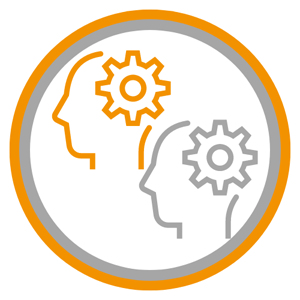
Systems Engineering - Professional Development Programme (SE-PDP)
Prossime Date
Descrizione del Corso
The SE-PDP addresses a fundamental need of many Organisations. With a shortage of senior Systems Engineers and Lead Systems Engineers, how can their teams rapidly increase their SE maturity and capabilities in a low risk, cost effective and fully customised professional development programme.
The SE-PDP is structured to be delivered over four on-site training sessions, covering three main areas of Systems Engineering:
1. End-to-end complex systems development (6-days)
2. Integrating specialities / quality attributes applicable to the Customer (3-days)
3. SE Matrix Management & Leadership (3-days)
The SE-PDP is only offered in-house and is highly customisable to project teams and their organisations.
Risultati di Apprendimento
• Identify common attributes and causes of complexity.
• Master the application of Systems Engineering methodologies to complex system developments.
• Master key technical management competences required for Senior Systems Engineers, technical matrix leaders.
• In a moderated workshop develop sustainable solutions in the System of Systems context.
Partecipanti
• Systems engineers
• System architects
• System analysts
• Project managers
• Product owners
• Engineering teams
Prezzi del Corso
Please contact us for a customised offer.
Durata
12 giorni
Istruttore
Seb Klabes 

Mike Johnson 
Mohammad Chami 

Marco Di Maio 


Sandra Roth 

Marco Serra 

Gordon Woods 
Kevin Howard 
This course is will provide the structure, guidance and best practice to allow “Customer” teams to create detailed and executable Concept of Operations (CONOPS), allowing better interactions with their suppliers…
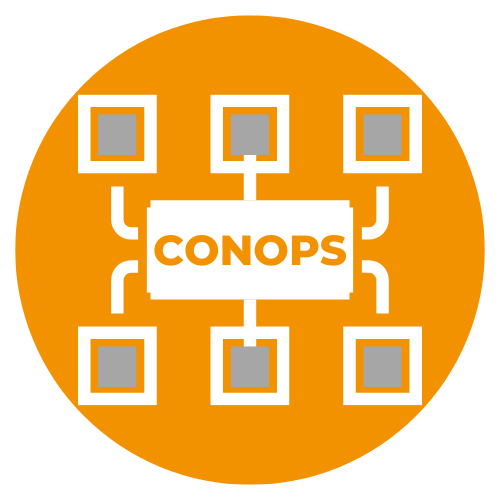
Concept of Operations (CONOPS) - What your suppliers need to know and how to deliver it
Prossime Date
Descrizione del Corso
This course is will provide the structure, guidance and best practice to allow “Customer” teams to create detailed and executable Concept of Operations (CONOPS), allowing better interactions with their suppliers and more accurately representing the needs of their users. This will save the customer time and rework, whilst creating the building blocks for system design and integration. The course can be used by candidates from across all sectors of industry that are procuring complex systems and system of systems.
Risultati di Apprendimento
• To be able to define the types of information that shape a problem space
• To understand how to capture user needs
• To understand why CONOPS are required by industry and suppliers
• To understand the the design process which is initiated by the development of a CONOPS
• To be able to describe users and their roles consistently
• To understand environmental constraints and impacts
• To enable the students create their own CONOPS when they return to work
Partecipanti
• Requirements Engineers & Managers
• User representatives
• Systems and Project Engineers
• Project and Programme Managers
Prezzi del Corso
Early Bird Rates: 1,350 CHF. Regular Rates: 1,500 CHF
Durata
2 giorni
Istruttore
Pete Burgess

Security, Cyber and Resilience Engineering
Prossime Date
Descrizione del Corso
The focus of this course is on introducing principles and practices for analysing, designing and implementing secure and resilient systems, including cyber systems. Trainees will learn about threat analysis, risk assessment, risk mitigation, business continuity and the security accreditation process. The course aims to equip trainees with the knowledge and skills necessary to understand security management.
Risultati di Apprendimento
• Understand the principles of Security, Cyber and Resilience Engineering.
• Analyse and identify potential threats and vulnerabilities in systems.
• Perform risk assessments and develop risk mitigation strategies.
• Implement security measures and practices to protect systems from cyber threats.
• Learn about business continuity and disaster recovery planning.
• Familiarise trainees with the security accreditation process for systems.
• Acquire skills in security management to ensure robust and resilient systems.
Partecipanti
• Security Analysts
• Cybersecurity Professionals
• Systems Architects
• Systems Engineers
• IT Managers
• Risk Managers
Prezzi del Corso
Early Bird: 2025 CHF | Regular: 2250 CHF
Durata
3 giorni
Istruttore
Vincent Arnould
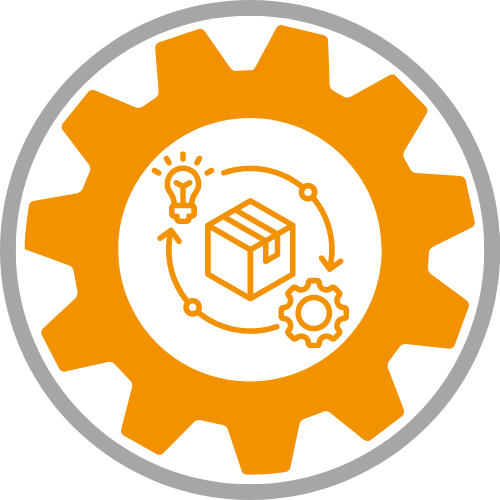
Product-line Engineering and Variant Management
Prossime Date
24.04.2024 - 26.04.2024, Zurich
Descrizione del Corso
This course is an introduction to techniques for developing a package of related products using a common set of assets and reusable components. Trainees will learn about feature modeling, configuration management, variability management, product-line architecture, product derivation and software product-line development processes. The course aims to enhance the trainees' ability to manage product variants effectively and optimise their product-line development practices.
Risultati di Apprendimento
• Understand the concept of product-line engineering and its benefits.
• Learn about feature modeling and configuration management.
• Acquire knowledge of variability management and its application in product-line development.
• Familiarise trainees with product-line architecture and product derivation techniques.
• Develop skills in software product-line development processes.
• Optimise product variant management practices for improved productivity.
Partecipanti
• Systems Architects
• Systems Engineers
• Software Engineers
• Product Managers
• Product Development Managers
• Configuration Managers
Prezzi del Corso
Early Bird: 2025 CHF | Regular: 2250 CHF
Durata
3 giorni
Istruttore
Vincent Arnould
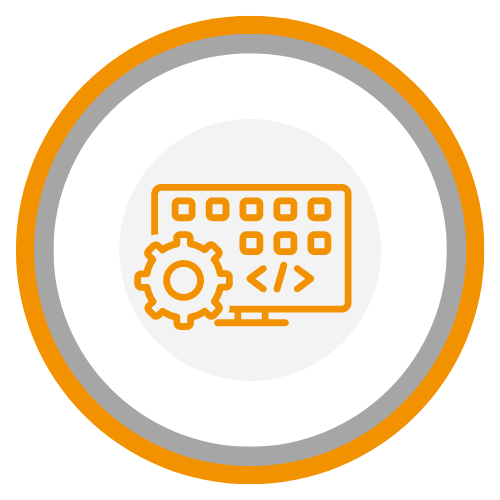
Software Requirements Engineering
Prossime Date
26.06.2024 - 28.06.2024, Zurich
Descrizione del Corso
This course covers the process of eliciting, documenting, analysing and managing software requirements requiring the use of techniques for capturing and validating requirements, including interviews, surveys, prototyping and case modeling. The course also covers requirements prioritisation, traceability and management throughout the system and software development lifecycle. The aim is to empower trainees with the skills to bridge the gap between stakeholders and development teams by translating user needs into well-defined system requirements.
Risultati di Apprendimento
• Understand the requirement engineering process and its importance in software development.
• Learn various techniques for eliciting and documenting software requirements.
• Acquire skills in requirements analysis, validation, and prioritisation.
• Explore methods for traceability and requirement management throughout the development lifecycle.
• Bridge the gap between stakeholders and development teams effectively.
Partecipanti
• Business Analysts
• Systems Analysts
• Requirements Engineers
• Software Developers
• Project Managers
Prezzi del Corso
Early Bird: 2025 CHF | Regular: 2250 CHF
Durata
3 giorni
Istruttore
Vincent Arnould
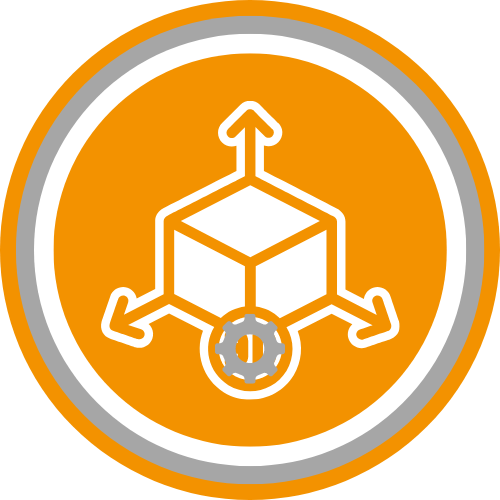
Model Driven Engineering, Architecture, and Development
Prossime Date
Descrizione del Corso
This course targets professionals interested in model-driven engineering (MDE) in system and software development. It covers principles and techniques for creating and manipulating models at different abstraction levels. Trainees will learn about domain-specific modeling languages, metamodeling, model transformations and code generation. The course emphasises the benefits of MDE in improving productivity, maintainability, and reusability of systems. The aim is to equip trainees with practical skills in applying MDE approaches in their professional software development projects.
Risultati di Apprendimento
• Understand the principles and benefits of model-driven engineering (MDE).
• Learn how to create and manipulate models at different abstraction levels.
• Acquire knowledge of domain-specific modeling languages and metamodeling.
• Develop skills in model transformations and code generation.
• Apply MDE approaches in software development projects for increased productivity and maintainability.
Partecipanti
• Systems Architects
• Systems Engineers
• Software Architects
• Software Developers
• Modelers
Prezzi del Corso
Early Bird: 2025 CHF | Regular: 2250 CHF
Durata
3 giorni
Istruttore
Vincent Arnould
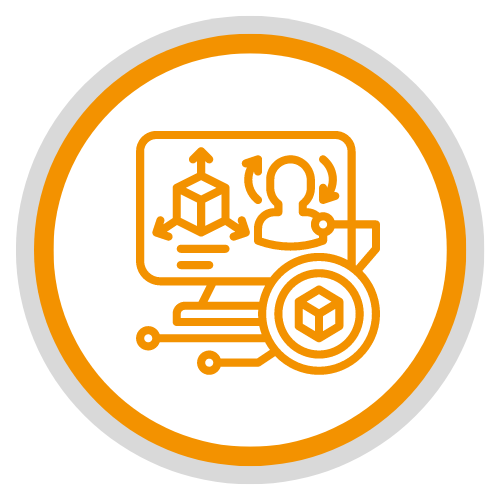
Modeling and Simulation
Prossime Date
19.06.2024 - 21.06.2024, Zurich
Descrizione del Corso
This course is designed for professionals seeking to enhance their understanding and analysis of complex systems through modeling and simulation. Trainees will learn various modeling approaches, including discrete event simulation, agent-based modeling, system dynamics and Monte Carlo methods. The course covers topics such as model formulation, experimentation, verification, validation, training and exercises. Trainees will gain practical skills in developing simulation models and analyzing system behavior to support decision-making in their respective professional domains.
Risultati di Apprendimento
• Understand the role of modeling and simulation in analysing complex systems.
• Learn various modeling approaches, including discrete event simulation and agent-based modeling.
• Acquire skills in model formulation, experimentation, verification, validation.
• Analyse system behavior through simulation to support decision-making.
Partecipanti
• Systems Analysts
• Decision-makers
• Researchers
• Engineers in various domains requiring simulation skills
Prezzi del Corso
Early Bird: 2025 CHF | Regular: 2250 CHF
Durata
3 giorni
Istruttore
Vincent Arnould
Product Lifecycle processes are a key pillar for each organization, ensuring consistency, efficiency, quality, and effective management of tasks and activities, ultimately leading to successful and predictable outcomes.
The Process Management…
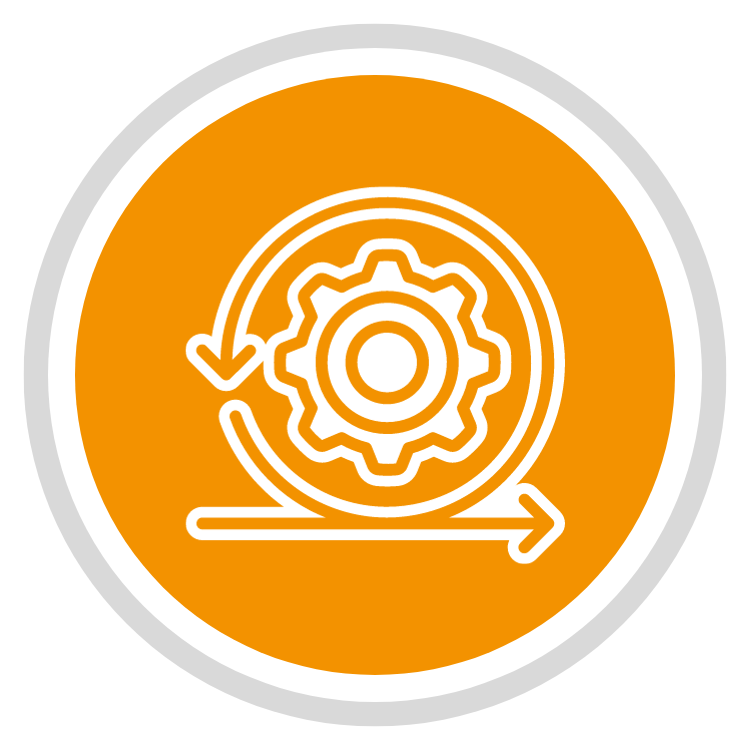
Process Management
Prossime Date
Descrizione del Corso
Product Lifecycle processes are a key pillar for each organization, ensuring consistency, efficiency, quality, and effective management of tasks and activities, ultimately leading to successful and predictable outcomes.
The Process Management course is designed to equip professionals with a comprehensive understanding of process design based on product lifecycle models of ISO 24748 integrating 15288 (Systems Engineering) and its alignment with ISO 9001 (Quality Management).
Participants will acquire practical insights into applying the learned concepts within real organizations. In this context, involving the right stakeholders and establishing the appropriate measures for process quality assurance are equally crucial.
This course encompasses a blend of interactive workshops, individual and group exercises to enhance participants' knowledge and skills in process management. The course emphasizes real-world applications, enabling attendees to apply the principles learned to their specific roles and industries.
Risultati di Apprendimento
● Recognize the pivotal role of product lifecycle processes in organizational success, ensuring consistency, efficiency, and quality.
● Understand how ISO 24748 integrates with ISO 15288 and ISO 9001 for comprehensive process management. I
● Apply product lifecycle concepts effectively in real organizations, addressing unique challenges.
● Identify and involve the right stakeholders crucial for successful process management.
● Design and implement robust measures for process quality assurance throughout the product life cycle.
● Apply process management principles in real-world scenarios, addressing specific industry challenges.Interactive Case Study according to ISO 13485
● Customize process management strategies to align with your professional role and responsibilities.
● Foster a culture of quality and continuous improvement within your organization for long-term success.
Partecipanti
● Quality Managers / Engineers
● Quality Assurance Managers / Engineers
● Process Managers / Engineers
● Process Owners
● Engineering Managers
● Systems Engineers
● Project Managers
Prezzi del Corso
Early Bird Rates: 1,350 CHF. Regular Rates: 1,500 CHF
Durata
2 giorni
Istruttore
Martin Oswald
Servizi
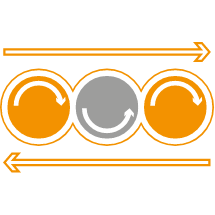 Processes
ProcessesStreamline and optimise your technical and organisational processes.
Process Development
Optimising your technical and organisational processes.
In our work, encountering complexity is inevitable and can become all consuming. By optimising and streamlining processes we are more able to focus on innovating products.
The importance of Processes
Processes are the veins of any Organisation, to function successfully we must ensure they flow smoothly and coherently, working in harmony - not contradiction. Processes are also the pathways that lead us to our goal; they allow us to overcome obstacles, adapt to changes and take different directions. Therefore, it is imperative to have a strong, strategic network of processes which support and enable efficient and effective working practices.
Process Development for Working more Effectively
Processes should help you, not hinder you. Yet, too often, the opposite is true. Organisations can find themselves operating with ineffective processes due to:
- Outgrowing traditional ways of doing things.
- Overly designed processes that do not account for operational day-to-day reality.
- ‘Processes’ that have become cultural habits, formed because there were no alternatives in place.
Assessment
We make an initial assessment of the current status of your Organisation’s Engineering processes to identify processes that can be optimised, replaced and/ or retired.
Workshops
We devise a training workshop (circa. 5 days) to address pain points and train your team on SE Methodologies and processes with specific references to current tools and systems used. We will explore how the process changes will impact on current work practices and build your foundational knowledge of SE principles to support all other areas.
Development
Together we will monitor the system changes and ongoing deployment of process development, adjusting until work practices are optimised and established.
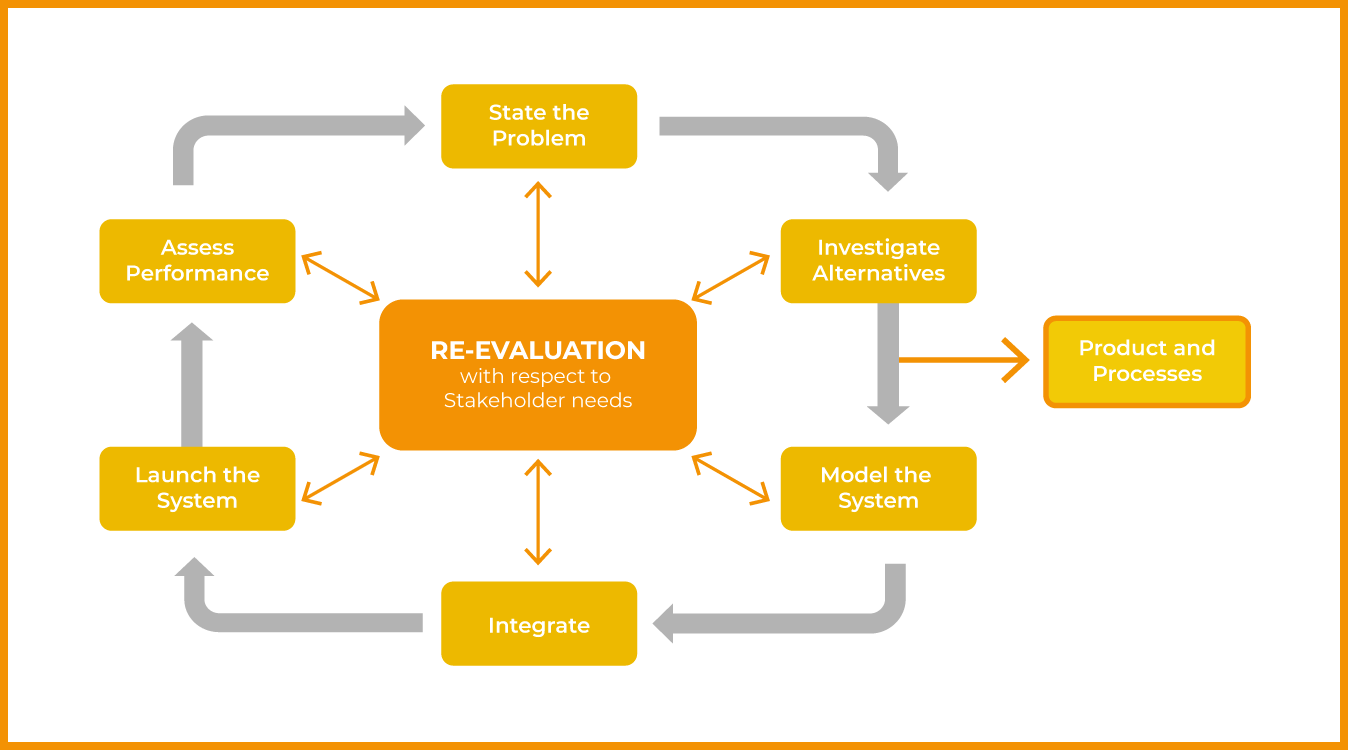
Who’s it for?
Any small, medium, or large Enterprise looking to improve and structure their processes more efficiently and effectively.
 Coaching
CoachingIntegrate positive changes into teams and organisations with our targeted and tailored coaching packages.
Project Coaching
Expert support that is tailored, targeted and timely.
Our coaching will provide you, your project and your team with a supportive, incremental, and multi-phase structure to effectively aid the implementation, development, and continuous improvement of your Enterprise’s capabilities.
We meet you where you are.
Irrespective of your Enterprise’s Engineering maturity, our coaching approach enables us to adapt and enhance your capabilities to your required goals.
Areas of Coaching
We provide coaching across many areas of Engineering, for example:
- Technical Leadership
- Requirements Engineering and Management
- Model Based Systems Engineering
- Systems Engineering Management
- Systems Architecting
- Configuration Management
- Design for Reliability Service Outcomes
- Extensive Design Trade-Offs
- Lifecycle Management
- Risk Management
- Integration, Verification & Validation Strategy
- Project Tracking
Time Blocks and Lean Working Models
Our coaching structure provides intense, effective, and focused blocks of time (days, weeks, or months) for phased activities, tailored to your specific needs.
- We allocate you the expert coach(es) best suited to support you and your unique needs.
- Your coach(es) will be available to you for an agreed period, with time dedicated for documenting, reviewing, and planning.
- Your coach(es) will work alongside your team in their normal working environments.
- You and your coach(es) will implement a flexible working style with minimal resource dependencies.
Service Outcomes
Optimal Teams
Ensure confident and motivated teams by promoting opportunities for them to grow, identifying their strengths and expertise, and leveraging them to effectively apply cross-functional Engineering disciplines on your project.
Tailored Processes
We work alongside or integrate within your project team to tailor and optimise your processes, tools, and organisational management - creating a streamlined and systematic development approach.
Reduced Complexity
We implement and optimise processes to help reduce and effectively manage the Systems complexity across the Lifecycle.
Who’s it for?
Teams and organisations working in complex product development and support. Organisations seeking to set up project team-specific work practices and Engineering processes.
 Training
TrainingIn-house training, developed to the specific needs of your Organisation.
Bespoke Training
In-house training, developed to the specific needs of your Organisation
Our Engineering courses and training programmes are the ideal solution for Enterprises needing to foster innovation, improve multi-functional collaborations and enable complex product development. Working with you, we establish your required outcomes to determine which training options would be most beneficial to your team/project/or Organisation e.g., attending one of our existing training courses or developing a specific training programme which is targeted to your unique needs. We will find the most suitable and complete training solution to ensure you address professional development universally and efficiently across your teams.
TRAINING BENEFITS WITH SE-T
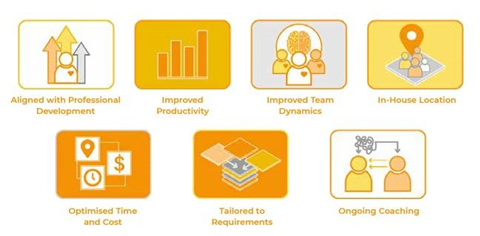
The Tailoring Process
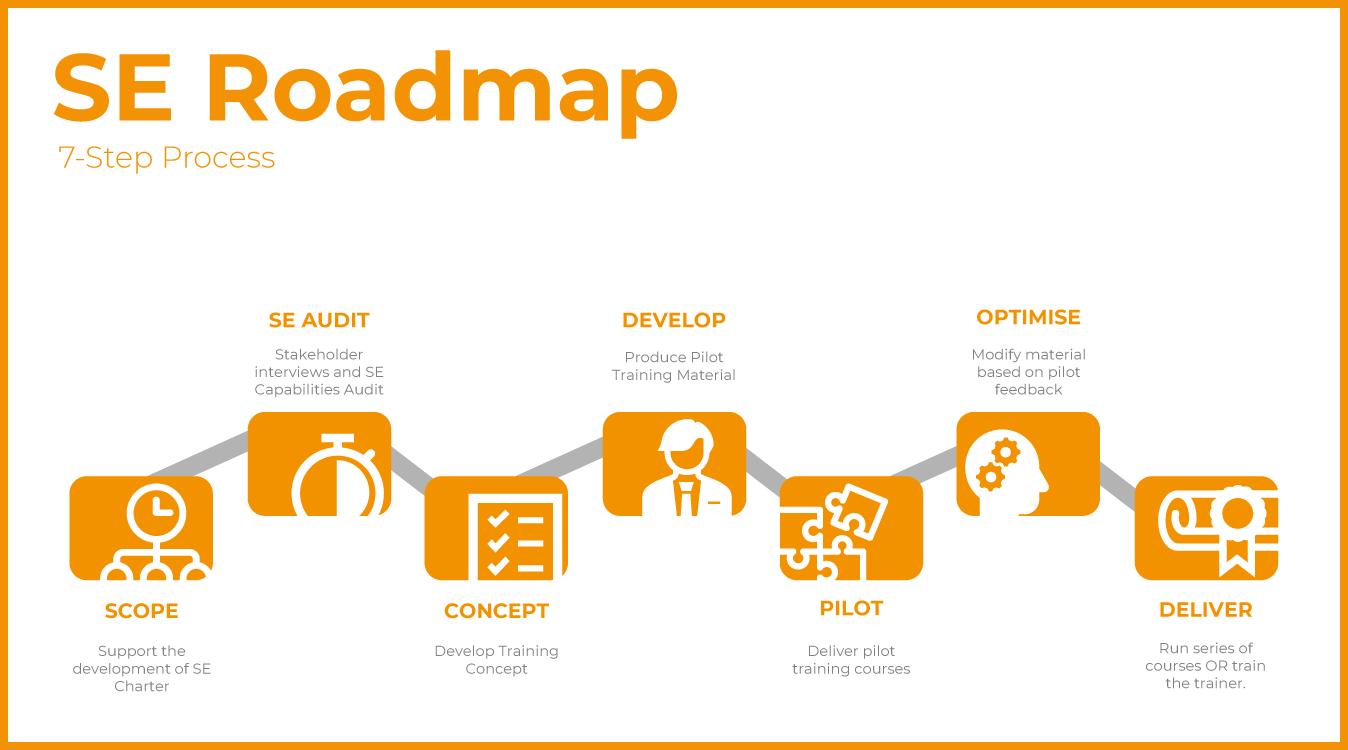 Interview and Audit
Interview and Audit
Creating a tailored training programme is initiated with interviews of the project sponsors, leading to a thorough assessment of your team’s training needs. Key factors considered are:
- Enterprise goals and constraints
- Industry needs
- Education, skills, and experience of employees
- Level of complexity of Systems under development
Proposal and Recommendations
Following our assessment, we propose a training programme, designed to meet your specific requirements. We may suggest:
- Technical training is delivered by several experts, so you receive the highest quality teaching in each identified area.
- Integrating or tailoring one/or more of our existing training courses into your overall training programme .
- Employing a project coach to further boost the implementation, development, and continuous improvement of your Enterprise’s capabilities. We can also tailor the content of any of our existing in-house courses by:
- Including activities in the modules specific to a given domain, such as MedTech, Aerospace etc.
- Tailoring the workshop to a domain specific example (our standard workshop is the Colonisation of Mars).
- Integrating modules from other SE-Training courses, for instance on Systems Reliability, MBSE or Configuration Management.
- Developing new modules on unique subjects, such as Acoustics Systems Engineering.
Develop and Review Materials
Based on the agreed proposal, we will develop and refine your training programme so it is comprehensively tailored and targeted to your project needs (processes, methods, skills etc.).
Pilot and Batch Delivery
Depending on the scope, content, and size of the training programme, we may propose developing *pilot courses as part of the overall series course development. How we deliver the pilot and series delivery is assessed on an individual case-by case-basis.
*These offer added value and assurance to our customers, by acting as highly effective risk mitigations. We advise they are attended by experienced employees to give early feedback on the quality of the content.
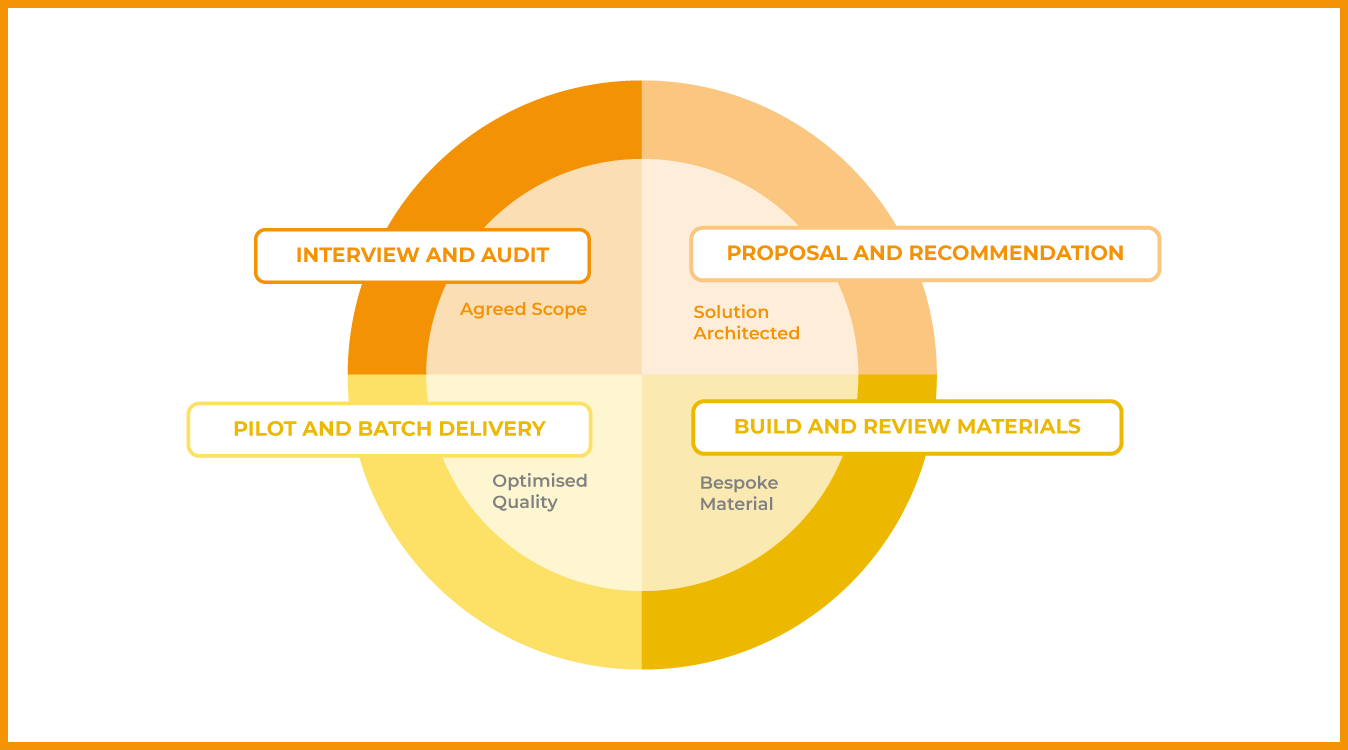
Who’s it for?
- Project teams working on complex product development or support.
- Organisational groups and departments working on improving cross-functional collaborations, especially within medium to large Enterprises.
- Project teams that have a mature Systems Engineering culture, but require targeted input on specific processes, methods and/or skills.
Not sure of the best option for you? Contact us and we can talk it through with you.
 SE Solutions
SE SolutionsFlexible solutions and expert advice to help deliver the results you need.
Off-the-Shelf Solutions
Flexible solutions to help deliver the results you need.
Why re-invent the wheel?
We provide a range of adaptable, downloadable, off-the-shelf, solutions to enhance productivity and business performance.
These include:
- Document templates
- SE Guides
- Recruitment resources
Complex documents made easy
We provide specific, structured, in-depth templates which give you the steppingstone to completing high quality, standard compliant documents. With pre-designed, comprehensive formats that are easily modified and ready to personalise you can avoid document disorder and begin streamlining work practices.
Let us guide you
Our downloadable guides and manuals are an essential resource for your Organisation and an effortless way to seamlessly maintain your records. You can be assured that they are up to date, relevant and reliable.
Ready-made recruitment resources
We offer a range of solutions to support your Systems Engineering recruitment process, including job descriptions and interview activities and questions. These are written to ensure you select the most suitable candidate for your Organisation.
In need of Inspiration?
Expert Support
Often, we are too close to our own projects and need a sounding board, or someone to impart their knowledge and perspective to give us a steer us in the right direction. We offer expert advice for your System Engineering issues. You can arrange an exclusive session with one of our SE-Experts who will offer you invaluable and objective advice to any of your questions. In addition, we offer:
- Expert Peer review of a document, Engineering process, design solution etc.
- Expert advice for recruitment of Systems Engineers.
- Expert moderation for project workshops e.g., for the development of a Functional Architecture.
 Tools
ToolsDefine, develop, and implement the optimal ‘tools suite’ solution for your technical and organisational needs.
Tools Selection
Tool Selection
Determine the optimal ‘tools suite’ for your technical and organisational needs. Identifying the optimal tool integration for your Organisation can be an intimidating and challenging process. There is no one-size-fits-all-systems modelling tool. An accurate and systematic analysis of needs is vital to the tool selection process. Our experts will lead you through a thorough exploration of your requisites and match you with the correct tools for your Organisation.
10 Check Points for Tool Selection
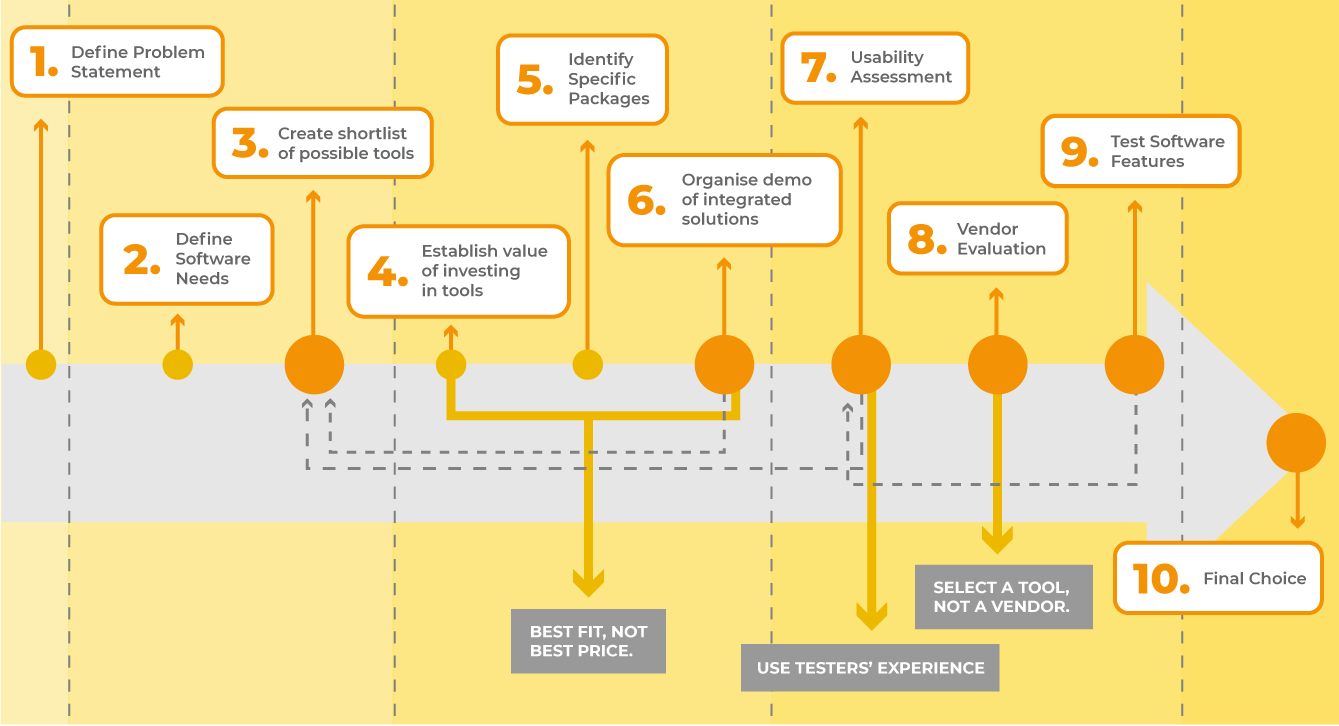
THE SELECTION PROCESS
Initial Assessment
- Identify the gaps and limitations of current Engineering tool environment.
- Understand the business case for tool integration.
- Capture the expectations of internal and external stakeholders.
- Document conclusions for ‘as is’ status and validate findings.
Definition
- Define the ‘to-be’ tool environment.
- Capture the expected features of the ‘to-be’ tool environment.
- Derive and define the detailed tool requirements and their attributes.
- Define and document the user roles, use cases and the ‘to-be’ Tool architecture.
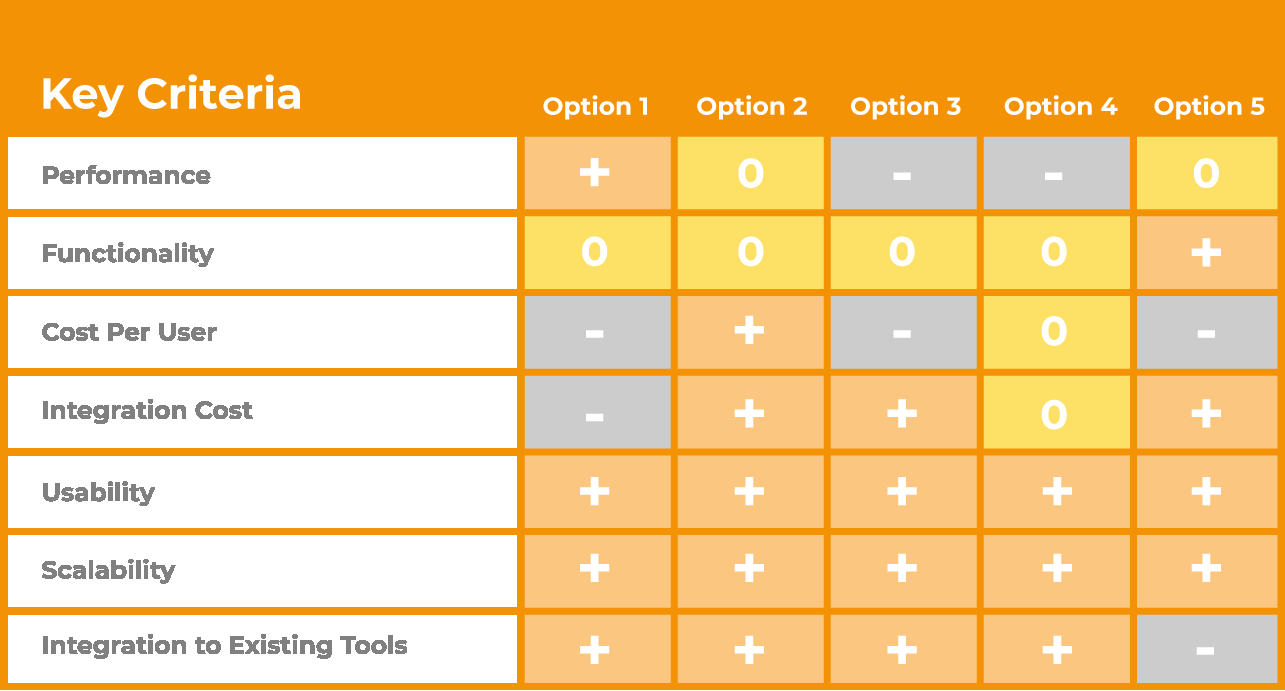
Procedure
- Document the traceability between the availability of tools and defined requirements.
- Develop a use case example to be used during tool vendors evaluation workshops.
- Manage tool vendor evaluation workshops to demonstrate tool capabilities and create usability assessment.
- Test software features before making a final decision on which tools to implement.
- Document findings in the ‘Request for Proposal’ with tool selection decision.
Implementation
- Working with trusted partners we can implement your specific ‘tools suite’ to ensure an optimal end-to-end solution for your Organisation.
Who’s it for?
- Teams and Organisations working in complex product development
- Highly regulated industries.
 Reviews
ReviewsIdentify ways to build organisational capabilities with our thorough and focused Engineering Reviews.
Engineering Reviews
The first step in maturing your Enterprise’s capabilities: Identify where you are.
We have a flexible approach when it comes to conducting our reviews. Adapted to your circumstances, we focus on multiple or single areas depending on your Engineering, Organisational and Project needs.
Engineering Reviews: FAQs
What do we do?
We provide unbiased assessments and reviews of your Organisation against its business strategy, focusing on specific areas such as: your organisational set-up, the skills of the employees, current business processes, company culture, and reward systems.
What’s the value of a review?
Having an objective and independent review will:
- Provide validation, assurance, and credibility in specific areas.
- Confirm if your processes are correctly implemented and meet organisational objectives and/or standards.
- Uncover areas where you need additional assistance e.g., product delivery.
- Provide innovative ideas for process improvements.
- Develop capabilities.
Who conducts the review?
One or more of our experts will carry out your review. This will be dependent on their areas of expertise to ensure you have the most suitable person(s) assigned.
How will it be conducted?
Depending on the scope of work we offer reviews in several means and durations e.g., as half-days focusing on a specific area, or in blocks of 1 to 2 weeks offering in depth reviews of the organisational set-up. In addition, we offer reviews against the ISO 15288 standard and other relevant Engineering standards to provide assurances of consistency within these guidelines.
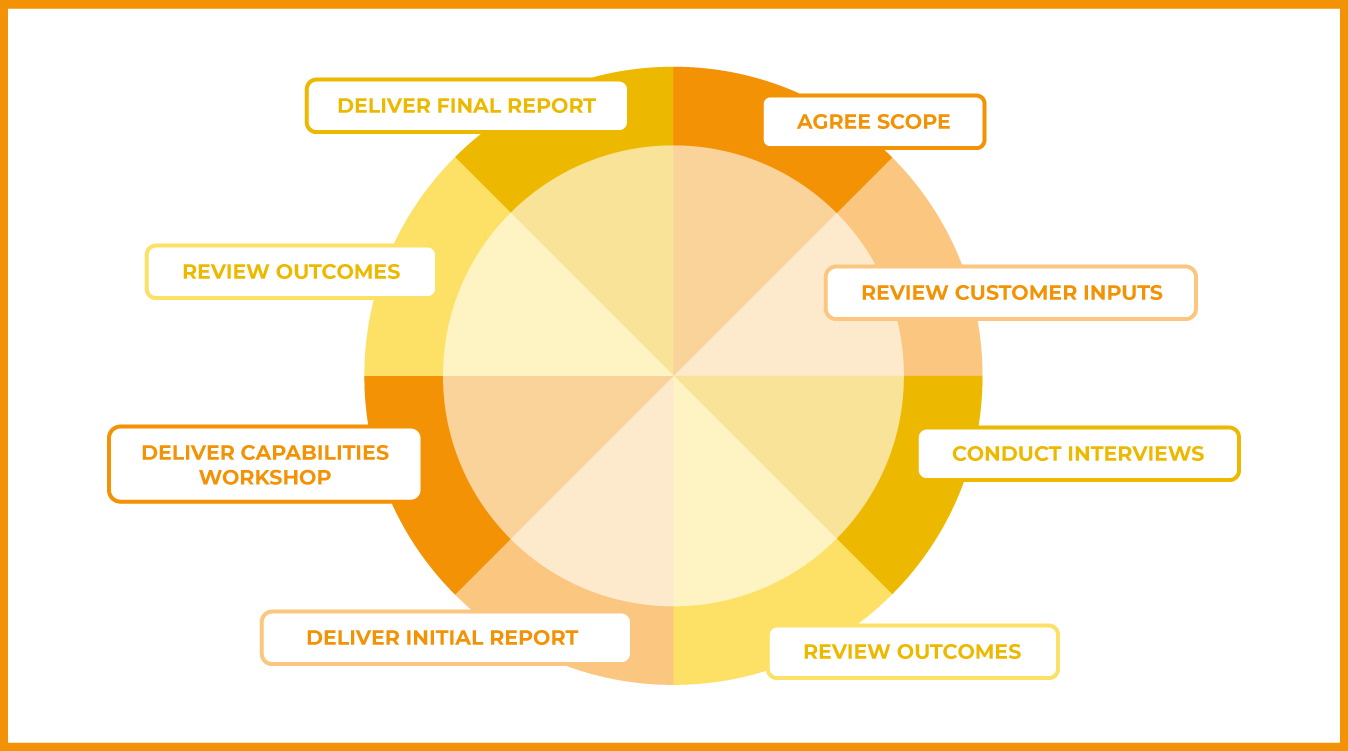
Capabilities to Competencies
Development of competencies is only meaningful once we have defined the capabilities you want to have as a team or Organisation, aligned with the desired project outcomes or organisational mission. Once these are identified we will then compile a comprehensive and realistic map of the resources available to you, so you are able to achieve your goals. We can guide you through the tricky process of defining capabilities, maximizing existing resources or acquiring new ones and ensuring you are complying with standards.
Capabilities
The essence of what an Enterprise needs to establish and mature, enabling itself to remain innovative and competitive. Difficult to define tangibly.
Competencies
These can be targeted to realise capabilities. These are measurable, extensively described and documented. They are tangible.
Resources
Development of competencies is achieved through many means, e.g., training, tailored processes, establishing effective tool-chains, and designing systems which are supportive of the competencies.
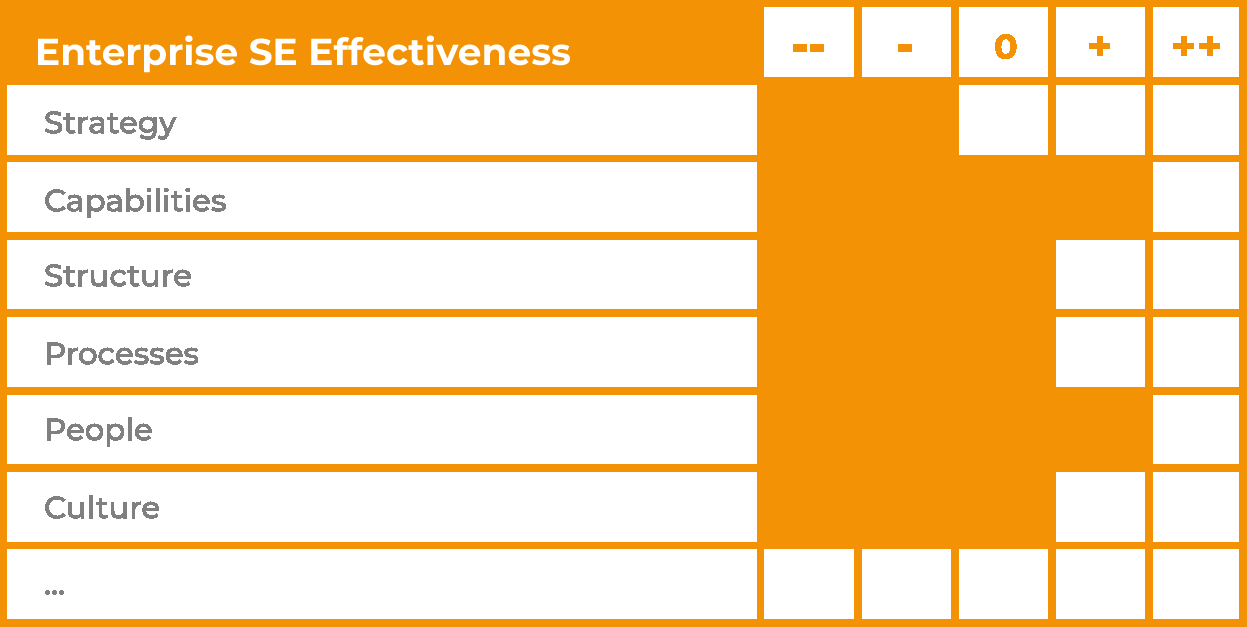
Who’s it for?
Organisations that are operating in an industry or servicing a clientele that requires evidence of compliance.
Eventi
Event Info
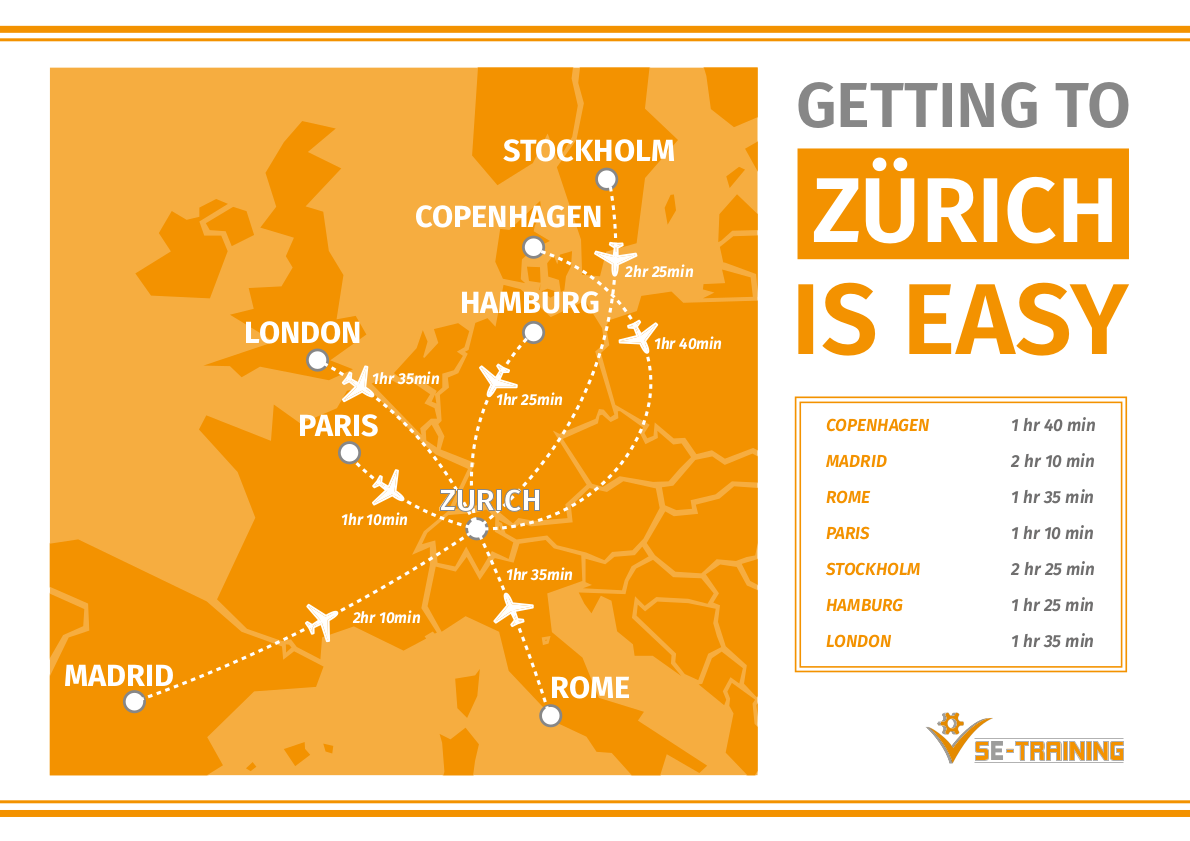
Il team
Siamo un team internazionale di esperti specializzati in Systems Engineering in diverse discipline. Portiamo così nei nostri corsi formativi la nostra esperienza da numerosi settori industriali.
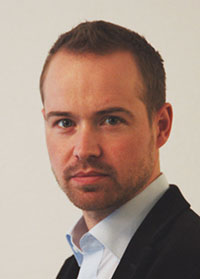 Seb Klabes
Seb KlabesSebastiano ha scritto e revisionato numerose pubblicazioni ed
applica volentieri i principi di Systems Engineering.
Dopo aver lavorato presso l'Istituto di Scienze dei Trasporti della RWTH…
Seb Klabes
Sebastiano ha scritto e revisionato numerose pubblicazioni ed
applica volentieri i principi di Systems Engineering.
Dopo aver lavorato presso l'Istituto di Scienze dei Trasporti della RWTH di
Aachen come ricercatore scientifico, ha lavorato presso il Centro Aerospaziale
Tedesco come Project Officer e come Systems Engineer di progetto presso
Bombardier.
Attualmente, Sebastian sta dirigendo il reparto RAMS della divisione mobilità
di Siemens. È attivamente coinvolto nel comitato organizzativo della Società
Svizzera di Systems Engineering (SSSE), è certificato Systems Engineering
Professional e sta tenendo corsi di formazione in Systems Engineering presso
Siemens.
Sebastian si approccia a sfide organizzative e tecniche con una solida
mentalità sistemista.


 Mike Johnson
Mike JohnsonMike ha lavorato in impegnativi ruoli di sviluppo di prodotto prevalentemente
nell’industria spaziale e della difesa dopo aver completato il suo Master in
fotonica e…
Mike Johnson
Mike ha lavorato in impegnativi ruoli di sviluppo di prodotto prevalentemente
nell’industria spaziale e della difesa dopo aver completato il suo Master in
fotonica e dispositivi optoelettronici presso l'Università di St. Andrews, Regno
Unito.
Mike ha sempre lavorato nel ruolo di Systems Engineer, gestendo sviluppi
tecnici che coinvolgono team interdisciplinari spesso costituiti da ingegneri
meccanici, elettrici, tecnologici, software e ottici. Ha lavorato presso RUAG Space di Zurigo per cinque anni. Durante questo periodo è passato al management, conducendo il gruppo di Systems Engineering nell’unità di optoelettronica e strumenti. Inoltre ha dato corsi di formazione di Systems Engineering ai dipendenti in tutta l'azienda.
Mike si è trasferito a Roche Diagnostics International per guidare il team di
Systems Engineering a Rotkreuz, in Svizzera. Ora sta applicando con passione
la sua esperienza e conoscenza in Systems Engineering al settore Healthcare.
Mike è appassionato di sviluppo di prodotto e soprattutto di applicazione di
Systems Engineering. È uno dei fondatori della Società Svizzera di Systems
Engineering (SSSE) e partecipa regolarmente a IET sede Svizzera e a lezioni/
seminari di INCOSE. È l'organizzatore di SWISSED, conferenza annuale Svizzera
sul Systems Engineering.
Mike presenta regolarmente a conferenze d’ingegneria, tra cui di recente a
SWISSED, UpFront Thinking ed al INCOSE International Symposium.
Mike ha ottenuto sia il CEng (IET 97325920) che il certificato CSEP.

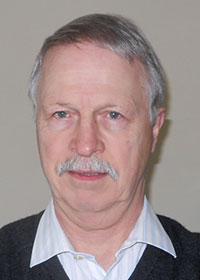 Niels Malotaux
Niels MalotauxNiels Malotaux è un coach indipendente per progetti ed è esperto di ottimizzazione delle prestazioni di progetto. Ha circa 40 anni di esperienza nella progettazione…
Niels Malotaux
Niels Malotaux è un coach indipendente per progetti ed è esperto di ottimizzazione delle prestazioni di progetto. Ha circa 40 anni di esperienza nella progettazione di sistemi elettronici e software, alla Delft University, nell'esercito olandese, a Philips Electronics e 20 anni di direzione di una società di progettazione di sistemi. Dal 1998 ha dedicato la sua esperienza all’aiuto di progetti ed organizzazioni nella realizzazione di qualità in tempo: fornire ciò che il cliente ha bisogno, quando ne hanno bisogno, consentire il successo dei clienti. A tal fine, Niels ha sviluppato un approccio per l'insegnamento efficace di Metodi Evolutionary Project Management (Evo), requisiti di progettazione, revisione e controllo tecnici, così come la progettazione di sistemi embedded affidabili e come raggiungere Zero Difetti per il cliente. Dal 2001, ha insegnato e coached ben più di 400 progetti in più di 40 organizzazioni in Olanda, Belgio, Cina, Germania, Irlanda, India, Israele, Giappone, Polonia, Romania, Serbia, Sud Africa, Regno Unito e Stati Uniti, ciò ha portato ad una grande esperienza in quali approcci siano più adatti e quali meno nella pratica.

 Richard Maguire
Richard MaguireRichard Maguire con titoli BEng, MSc, CEng, FIMechE, MSaRS, MBCS ha una vasta esperienza in Ingegneria della sicurezza in una vasta serie di tecnologie diverse,…
Richard Maguire
Richard Maguire con titoli BEng, MSc, CEng, FIMechE, MSaRS, MBCS ha una vasta esperienza in Ingegneria della sicurezza in una vasta serie di tecnologie diverse, tra cui, aviazione, armamenti, sistemi di comunicazione, veicoli, sistemi aerei senza equipaggio, piattaforme sottomarine e software. In particolare, Richard ha lavorato garantendo software di controllo volo per velivoli UAS, così come analisi post-incidente e stress e di modellazione fluidodinamica computazionale per petrolio, gas e tubazioni antincendio. Come noto specialista, svolge un ruolo chiave nello sviluppo di standard di sicurezza e software del Regno Unito e ha pubblicato una vasta gamma di papers. Inoltre, è l'autore del noto libro " Safety Cases and Safety Reports – Meaning, Motivation and Management ". In seguito alla sua posizione all'interno della comunità dedita alla sicurezza, Richard ha insegnato in un gran numero di istituzioni, tra cui: Università di York – Master di Safety Critical Systems; Empire Test Pilot School - Aviation Safety System; Ministero della Difesa britannico - Acquisition System Safety; e la tedesca Bundeswehr University Munich - Modelling Human Reliability.

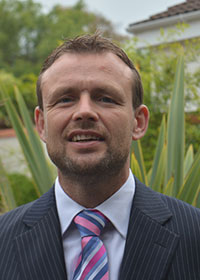 Jim Mateer
Jim MateerJIM Mateer con titoli BSc, MSc, MIET, MRAeS ha un background in ingegneria di jet veloci e armamenti. Negli ultimi dodici anni, tuttavia, si è…
Jim Mateer
JIM Mateer con titoli BSc, MSc, MIET, MRAeS ha un background in ingegneria di jet veloci e armamenti. Negli ultimi dodici anni, tuttavia, si è specializzato in ingegneria della sicurezza e gestione in un gran numero di campi diversi, tra cui aviazione, armamenti, comunicazioni, autonomia, indumenti protettivi, celle a combustibile all’idrogeno, veicoli blindati e software. Durante il suo impiego presso un grande produttore di elettronica Jim si è specializzato nella sicurezza di prodotto, conformità alla legislazione UE e marchio CE. Il suo studio all'Università di York nel corso di ingegneria della sicurezza di sistemi critici gli ha permesso di presentare una ricerca sulla valutazione della sicurezza relativa a sistemi informatici. Recentemente Jim ha fornito servizi di audit indipendenti per la sicurezza di futuri veicoli da combattimento corazzati al Ministero della Difesa britannico e ha sostenuto un produttore aeronautico globale nel migliorare la gestione del mantenimento della idoneità al volo dei suoi velivoli. Per QinetiQ Jim ha sviluppato due corsi di sicurezza di sistema che si occupano di identificazione e valutazione di rischi di sicurezza e di gestione della sicurezza.

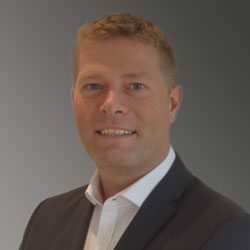 Piet Belgraver
Piet BelgraverPiet Belgraver ha iniziato la sua carriera come ingegnere elettronico di sviluppo per diverse società di ingegneria nei Paesi Bassi. Ha continuato ad estendere la…
Piet Belgraver
Piet Belgraver ha iniziato la sua carriera come ingegnere elettronico di sviluppo per diverse società di ingegneria nei Paesi Bassi. Ha continuato ad estendere la sua esperienza tecnica nel settore dell'elettronica di consumo ad alto volume come ingegnere senior quando si è trasferito in Danimarca. Durante questo periodo, ha assunto il ruolo di capo progetto hardware per diversi noti telefoni cellulari Nokia. Nel suo ruolo il suo obiettivo era quello di coordinare i team di progetti locali e globali per ottenere consegne puntuali nelle fabbriche di tutto il mondo.
Dopo sei anni di lavoro per Nokia, si è trasferito in Svizzera per lavorare nel settore aerospaziale presso RUAG Space. Nel 2016 si è trasferito in Thales Alenia Space quando parte di RUAG Space è stata venduta a Thales Alenia Space. Attualmente ha la posizione di senior project manager per diversi progetti spaziali presso Thales Alenia Space.
È project manager senior certificato (IPMA) con oltre 15 anni di esperienza nella gestione di progetti tecnici che vanno dall'elettronica di consumo ad alto volume all'industria aerospaziale di alta qualità.

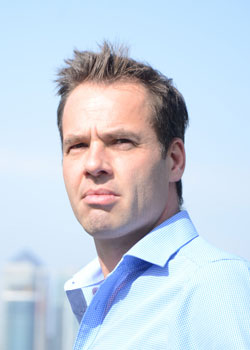 Marco Di Maio
Marco Di MaioMarco has had many roles in Systems Engineering: Professor at a technical university, and Consultant for and Employee in the development of complex systems. He…
Marco Di Maio
Marco has had many roles in Systems Engineering: Professor at a technical university, and Consultant for and Employee in the development of complex systems. He was the managing director of projectglobe - a boutique consultancy firm specialising in Model Based Systems Engineering (MBSE) and Information Management (IM) to support innovation driven engineering projects. Major customers are the fusion research community, the automotive industry, and 3D laser-welding and robotics companies.
Marco holds a PhD in nuclear engineering and a Masters in Operational Research. In his role as research fellow at Europe's largest fusion laboratory, JET near Oxford, he devised a novel diagnostic system, which earned him a world-wide patent. Marco then worked for the automotive industry managing product development and launch projects for the emerging markets of Eastern Europe and Russia before co-founding projectglobe with the purpose to devise novel methodologies, frameworks and tools that combine MBSE with IM to enable effective innovation and product development.
Together with partners from industry and academia, projectglobe have developed CLOSE - a Closed-Loop MBSE methodology based on robust semantic reference model. This model allows to automatically generate the required engineering artefacts in the correct format for SE teams and domain experts alike. The loop is closed by so-called "Experimentable" Digital Twins that provide in-the-loop feedback for all developers throughout the whole product life cycle. CLOSE runs on projectglobe's fractal data engine and thus allows for unlimited scalability in managing all project information.



 Sandra Roth
Sandra RothSandra is a leadership, team and change management coach with a decade of experience in R&D as a usability engineering expert, user experience leader and…
Sandra Roth
Sandra is a leadership, team and change management coach with a decade of experience in R&D as a usability engineering expert, user experience leader and SW development department head in a global medical device manufacturer.
Sandra has a M.Sc. in Psychology, a Ph.D. in Human Computer Interaction and holds several coaching degrees.


 Hakan Hasserbetci
Hakan HasserbetciHakan acts as a Data Protection Officer in Path Duesseldorf GmbH and manages international Data Privacy projects. He has been implementing Codes of Conduct of GDPR…
Hakan Hasserbetci
Hakan acts as a Data Protection Officer in Path Duesseldorf GmbH and manages international Data Privacy projects. He has been implementing Codes of Conduct of GDPR across diverse organizations. He is actively training Data controllers and data processors according to GDPR.
In Hakan's 20 year+ experience he has worked across ICT, Automotive, Packaging Corrugated and Textile industries and acted as:
- Director in Sales & Marketing, Business Development & Global Key Accounts &
Channel Alliances in Mobile Network Operators.
• Project manager in Data Protection/Privacy & Cyber Security in Automotive, Medical,
SW Houses, Distribution.
• Project manager in CRM & e-commerce & Sw. Development in SMEs.
• Trainer in GDPR and DPO Practices.
• DPO in Data Privacy and Compliancy Projects


 Stephan Marwedel
Stephan MarwedelStephan works as a product security engineer at Airbus commercial aircraft. In his work, he brings together diverse engineering disciplines, such as hardware and software…
Stephan Marwedel
Stephan works as a product security engineer at Airbus commercial aircraft. In his work, he brings together diverse engineering disciplines, such as hardware and software engineering, mechanical engineering, safety and reliability and cyber security aiming at creating safe and secure solutions.
Stephan has more than 30 years of experience at software and systems engineer in diverse areas, such as chip design, secure networking, health care, online banking and logistics. He spend ore than half of his professional life at Airbus commercial aircraft working as a systems engineer on aircraft communication systems and as an product security engineer on communication and recording systems as well as landing gear systems. He is actively involved in developing security standards by particiating in international working groups at EUROCAE, AEEC and SAE.





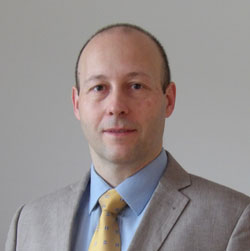 Marco Serra
Marco SerraMarco’s professional experience, built over almost 30 years of working with clients in North America, Europe and Southern Africa, spans diverse roles in the aerospace,…
Marco Serra
Marco’s professional experience, built over almost 30 years of working with clients in North America, Europe and Southern Africa, spans diverse roles in the aerospace, automotive, defence and energy industries. For example, as Systems Engineer Marco was involved in the initial conceptual development and technology transfer assessment of a sample handling and analysis system intended to receive and analyse material returned to Earth on Nasa’s Mars Sample Return Mission. Marco also spends significant time consulting in the Oil & Gas and Energy industries providing system and component design support, conducting failure investigations, providing technical expertise in legal disputes, validating system designs, and developing analysis methodologies for complex fluid-mechanical simulations. More recently, Marco has been working on the thermomechanical design of optical terminals for inter-satellite communications.
Marco holds a Masters Degree in mechanical engineering from the University of Pretoria, South Africa (1993). He also holds a Masters Degree in Engineering and Management from the Massachusetts Institute of Technology, USA (2002), with a focus on Systems Architecture, Systems Engineering, and System and Project Management.


 Gordon Woods
Gordon WoodsGordon has a wealth of experience in requirements management, driving innovations in the defence, aerospace and nuclear and rail industries. He has previously worked on…
Gordon Woods
Gordon has a wealth of experience in requirements management, driving innovations in the defence, aerospace and nuclear and rail industries. He has previously worked on fast jets, military drones, UK and US tank system and trainers, satellite systems and nuclear submarines. For the last eight years he has specialised in supporting requirements management in rail projects including HS2 and East West Rail in the UK; High Speed Rail, Mass Rapid Transit, Light Rail Transit projects in Malaysia; the Qatar metro and tram projects; the Riyadh metro and lately the NEOM Backbone railway projects in Saudi Arabia.
He has brought his own unique style to the elicitation and specification of requirements, the Verification and Validation of the design products and safety assurance, all within a progressive assurance environment.

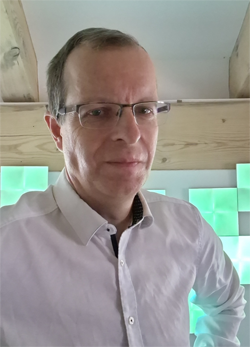 Oliver Fels
Oliver FelsOliver Fels has been the first independent European speaker at the 1997 JAVAOne conference and the first independent to speak three years in a row.
Since…
Oliver Fels
Oliver Fels has been the first independent European speaker at the 1997 JAVAOne conference and the first independent to speak three years in a row.
Since then, Oliver Fels has been working in major industries developing complex systems, filling various roles - as a project manager, department lead, systems engineer, architect, product owner, requirements and methodology engineer, and more.
As a leading systems engineer, he supported revolutionize the Zürich public transport system, being responsible for the new passenger information concept.
In a department lead role, he redesigned hands-on the first and business class sections for the 21st century of various international airlines.
With his high interest for sustainability and renewable energy, Oliver was also an active member of the Solar Impulse 2 project, the first solar flight around the world accomplished by Swiss entrepeneur and pioneer Bertrand Piccard.
Oliver is currently actively supporting sustainability and renewable energy projects using blockchain technology and is the inventor of the sustainability engineering methodology, which uses system engineering principles to aid enterprises structuring their sustainability strategies.
Oliver has held several speeches and international workshops in the area of systems engineering, IT security, and software development as well as coached engineers in leadership, requirements engineering, and other topics.
Having worked in various diversity environments, he highly emphasizes an intercultural and interoperational approach to working with people in which individualtiy and empathy are highly valued. As such, bringing his broad expertise to a wider audience is an important passion for him.
Oliver holds an egineering degree in computer science and electrical engineering.


 Kevin Howard
Kevin HowardDr Kevin Howard has more than 40 years’ experience in engineering. He initially worked in radar and radio frequency systems, and for the last 25…
Kevin Howard
Dr Kevin Howard has more than 40 years’ experience in engineering. He initially worked in radar and radio frequency systems, and for the last 25 years has focused on Systems Engineering and managing complexity. He has been Chief Engineer for a range of systems ranging from military vehicles to space-based sensor systems. He has been VP Systems Engineering for a Global organisation providing safe city and big data technology. He now provides Systems Engineering consultancy, and as Engineering Director helped establish Optima Systems Consultancy Ltd as one of the leading Systems Engineering specialists providing consultancy to the defence and energy sectors around the world.
Kevin has a PhD in Optimising Complex Systems, supported by Post Graduate qualifications in Psychology and Business Administration. He is a Chartered Engineer, an external examiner for Cranfield University.

 Christoph Bisel
Christoph BiselIn 1999, Christoph put his existing experience as a project manager on a solid footing with a degree in project management with a federal certificate.…
Christoph Bisel
In 1999, Christoph put his existing experience as a project manager on a solid footing with a degree in project management with a federal certificate. Since then he has managed projects of various sizes for various companies and was also responsible for the project management of various national branches of an american software manufacturer. He is an accredited trainer for the project management frameworks Prince2™, Prince2™ Agile and AgilePM® (DSDM Framework).
He first came into contact with Scrum in 2008 and since then has continuously expanded his knowledge and experience with this framework and other frameworks.
Christoph has coaching training as well as a degree and experience as a mediator and is therefore not only able to provide professional support, but also to provide support in personally challenging situations.
As a trainer, consultant and coach, he has been supporting companies in Europe in project management, Scrum, Kanban, Design Thinking, Lego® Serious Play®, OKR and various other methods and frameworks for 5 years.


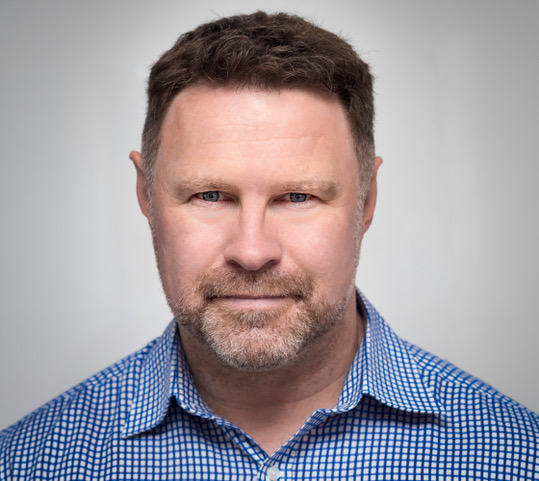 Pete Burgess
Pete BurgessPete has worked leading complex system development within the Defence, Security and Aerospace industries across the UK, US and Middle East.
He has worked from high…
Pete Burgess
Pete has worked leading complex system development within the Defence, Security and Aerospace industries across the UK, US and Middle East.
He has worked from high level concepts to delivery of integrated systems, from requirements capture to user acceptance, bringing together technical teams to deliver and exceed customer expectations.
Pete started his career as an Engineering Apprentice within the British Army, rapidly promoted to Corporal and deployed to Kosovo during the Balkans conflict as well as multiple peace-time training activities across the globe. Beginning his career this way has given him an excellent insight into the needs of the user within the Defence industry as well as the ability to adapt to many different environments. From here, he worked with way up through different Engineering roles, to a Team Lead and Engineering Manager within Boeing Defence UK. This role provided him with the opportunity to teach and mentor all technical and programme staff to have an understanding and appreciation of how Systems Engineering can enhance their own roles and projects, delivering training and mentoring across the entire UK business as well as their customers. Pete is now working as a Principal Consultant, continuing to deliver to customers and as well as develop his own skillset. Pete has been a member of the IET since 2011 as well as having a wide range of professional qualifications gained through his international experiences.

 Vincent Arnould
Vincent ArnouldVincent Arnould brings over two decades of experience as a versatile leader and expert in the field of System Engineering and Architecture. His career spans…
Vincent Arnould
Vincent Arnould brings over two decades of experience as a versatile leader and expert in the field of System Engineering and Architecture. His career spans in the defense domain, on avionics and maritime warfare systems. His expertise lies in Software Intensive Systems and Systems-of-Systems Architecture and System Engineering, supported by a robust skill set that includes transversal management, communication, and international collaboration. He has excelled in leadership roles at companies like Naval Group and Hensoldt Sensors GmbH, contributing to prestigious projects such as the Gowind-class Frigate, the Future Combat Air System (FCAS) and Maritime Airborne Warfare System (MAWS). Vincent's expertise lies in operational analysis, architectural design, and Model-Based System Engineering (MBSE), driving successful outcomes in the defense and avionics sectors. His transnational collaboration and commitment to rigorous quality standards like SysML further underscore his influence in the industry.


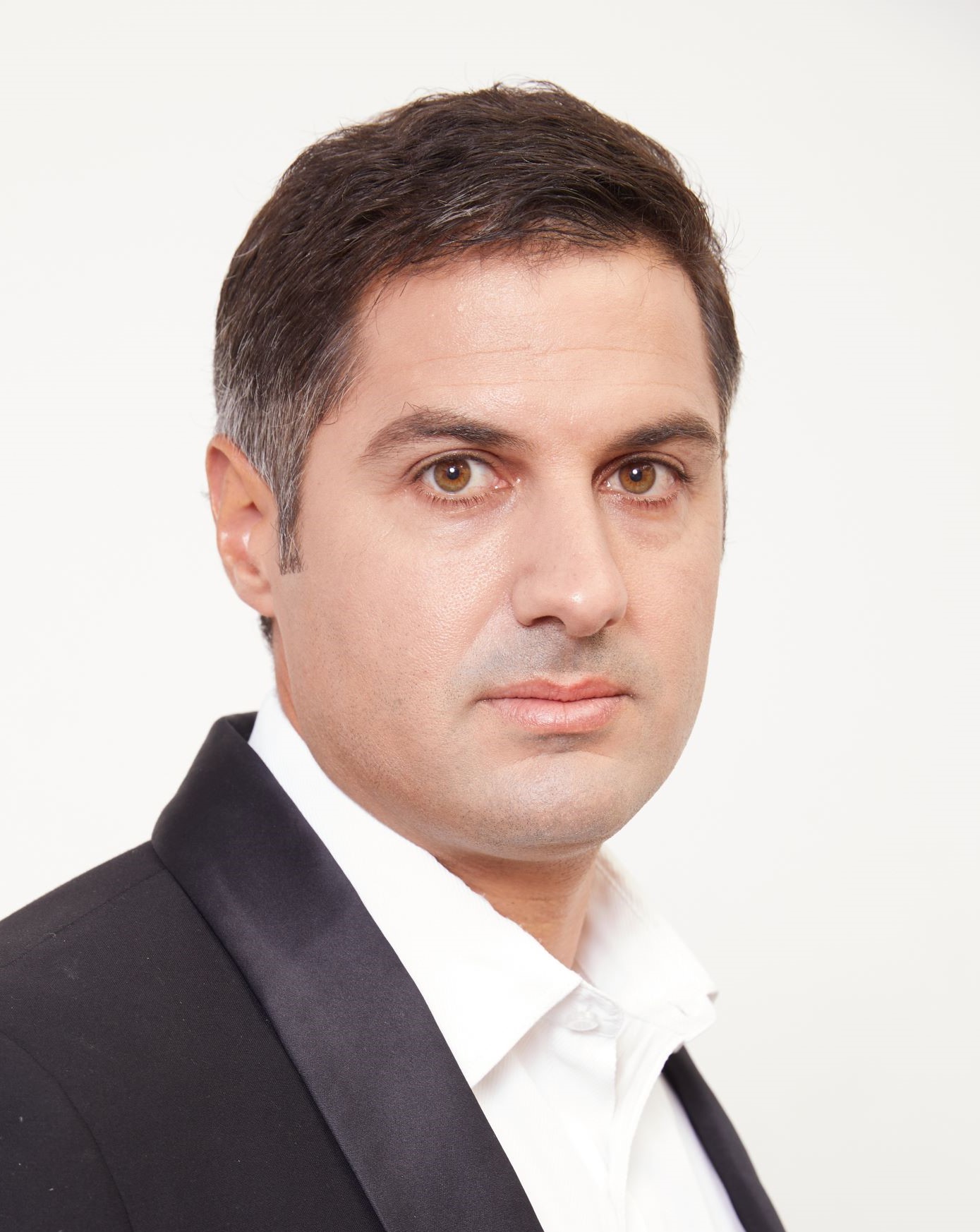 Martin Oswald
Martin OswaldMartin Oswald is a seasoned professional with a strong background in process management and product development. He holds certifications as a Systems Engineering Professional (C-SEP)…
Martin Oswald
Martin Oswald is a seasoned professional with a strong background in process management and product development. He holds certifications as a Systems Engineering Professional (C-SEP) and a Lean Trainer, and he actively serves as a committee member for the Swiss Chapter of INCOSE (SSSE). With a Master's degree in Mechanical Engineering and a vast career spanning various industries worldwide, including leadership roles at Belimo and Johnson & Johnson, Martin has a proven track record of excellence. He played a crucial role in establishing an Innovation Center in China for Johnson & Johnson and successfully built and currently leads a team for Process, Quality, and Compliance at Belimo.
Martin has a proven track record of delivering innovation and excellence in product development, project management, and quality control. Martin Oswald is a results-driven professional with a diverse skill set and a passion for process management and optimization. With a strong foundation in engineering and a commitment to excellence, he continues to make valuable contributions to organizations and process improvements.


Dicono di noi
registrare
Email: info@se-training.net Copia
Indirizzo
SE-Training GmbH
Bauelenzelgstrasse 20,
8193 Eglisau
EMAIL: info@se-training.net
Book Teams meeting
Profilo
SE-Training offers high-quality, specifically tailored solutions to support the unique needs of Engineering organisations across Europe. Through industrial and academic experts, SE-Training delivers value added customized engineering services, including accredited* training, to add and enhance complex product development and post-launch capabilities.
Founded in 2016 by two friends and fellow Systems Engineering Managers Sebastian Klabes and Mike Johnson, SE-Training has grown into a team of handpicked experts providing a wide range of in house, classroom and bespoke training packages and unique services such as coaching, audits and tools selection to enhance cross-functional skills and professional development.
* EduQua accredited
* Endorsed training provider for INCOSE UK.
* An approved educational provider for Temptraining.
Blog | Newsletters
 ON:SET
ON:SET ON:SET for March 2024: https://www.se-training.net/pdf/Newsletter_March%202024%20(1).pdf…
.jpg) SE-Training to Exhibit and Attend Swiss Medtech 2024
SE-Training to Exhibit and Attend Swiss Medtech 2024SE-Training to Exhibit and Attend Swiss Medtech 2024: Mastering Complexity in Technology Medical Swiss Medtech 2024, organised by the Swiss Medical Technology Association, stands as a…
 ON:SET
ON:SETDecember 2023 newsletter (PDF)…
